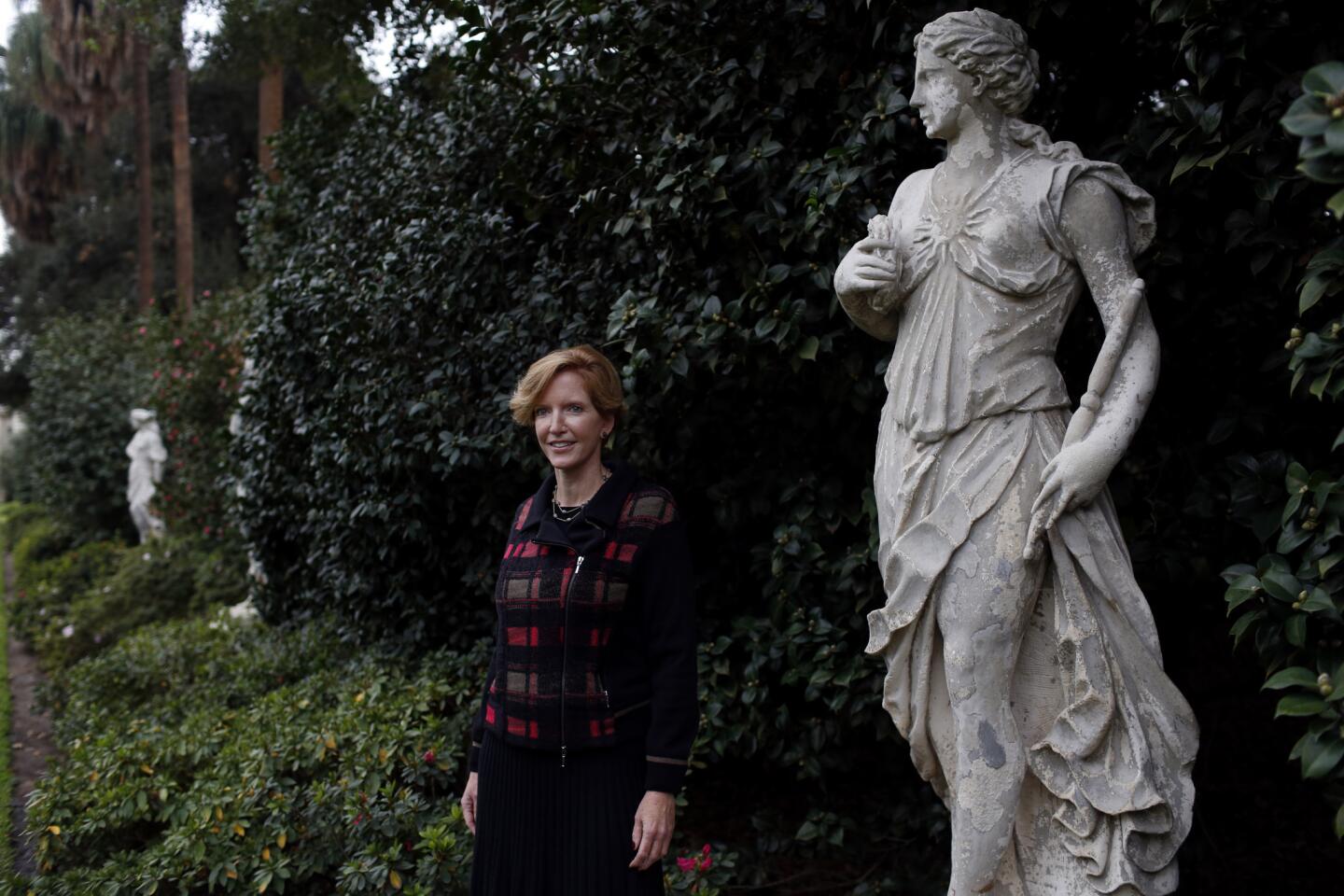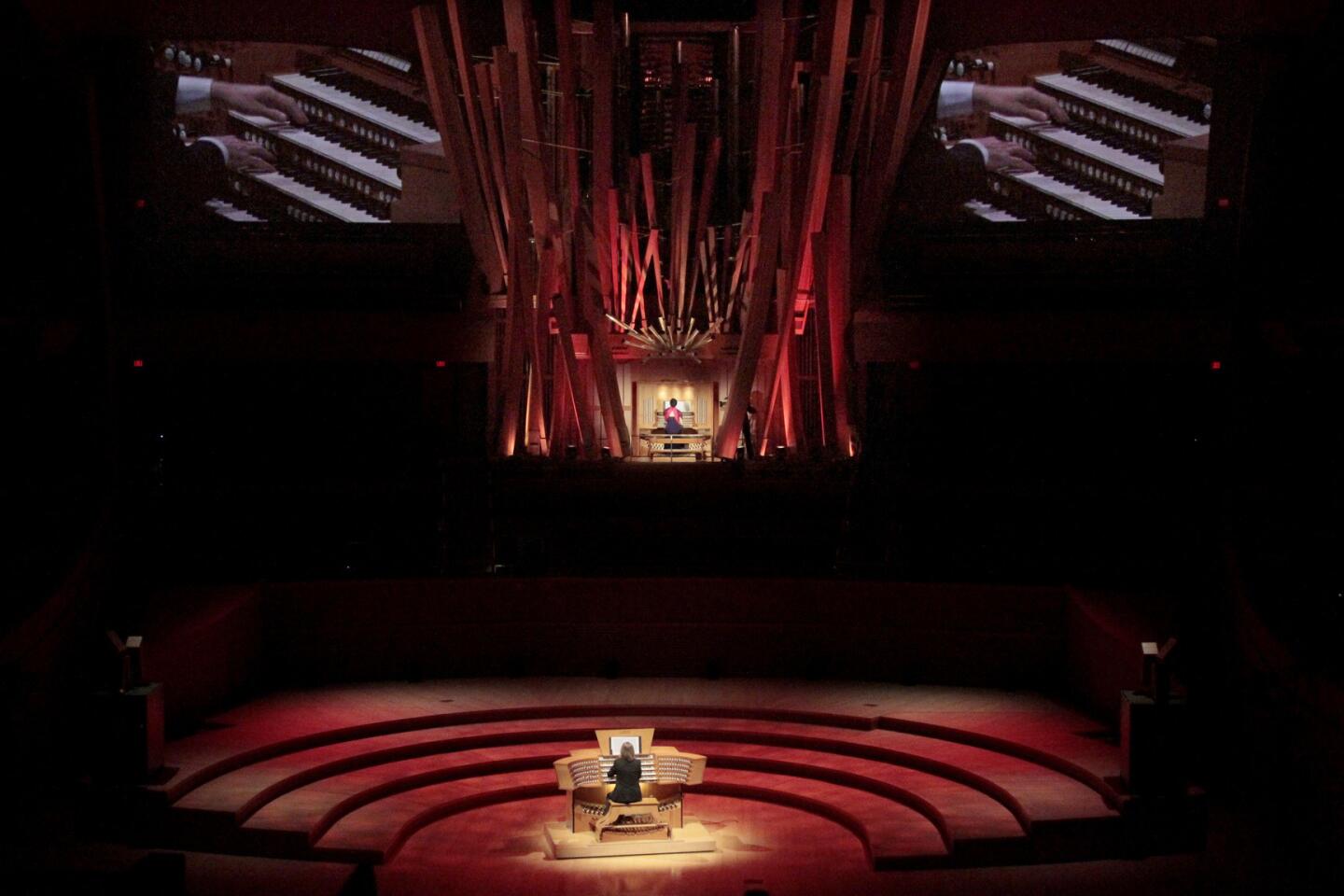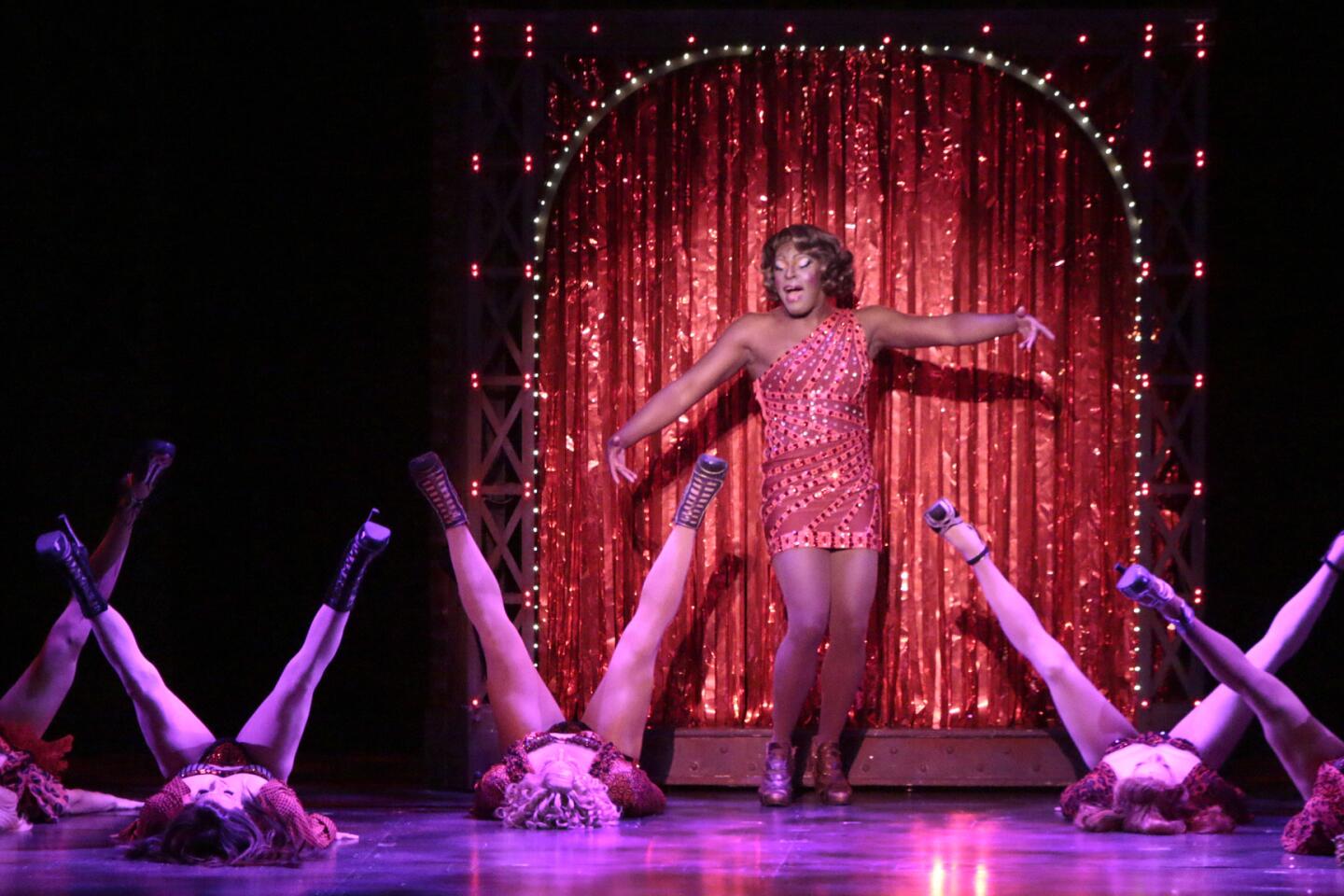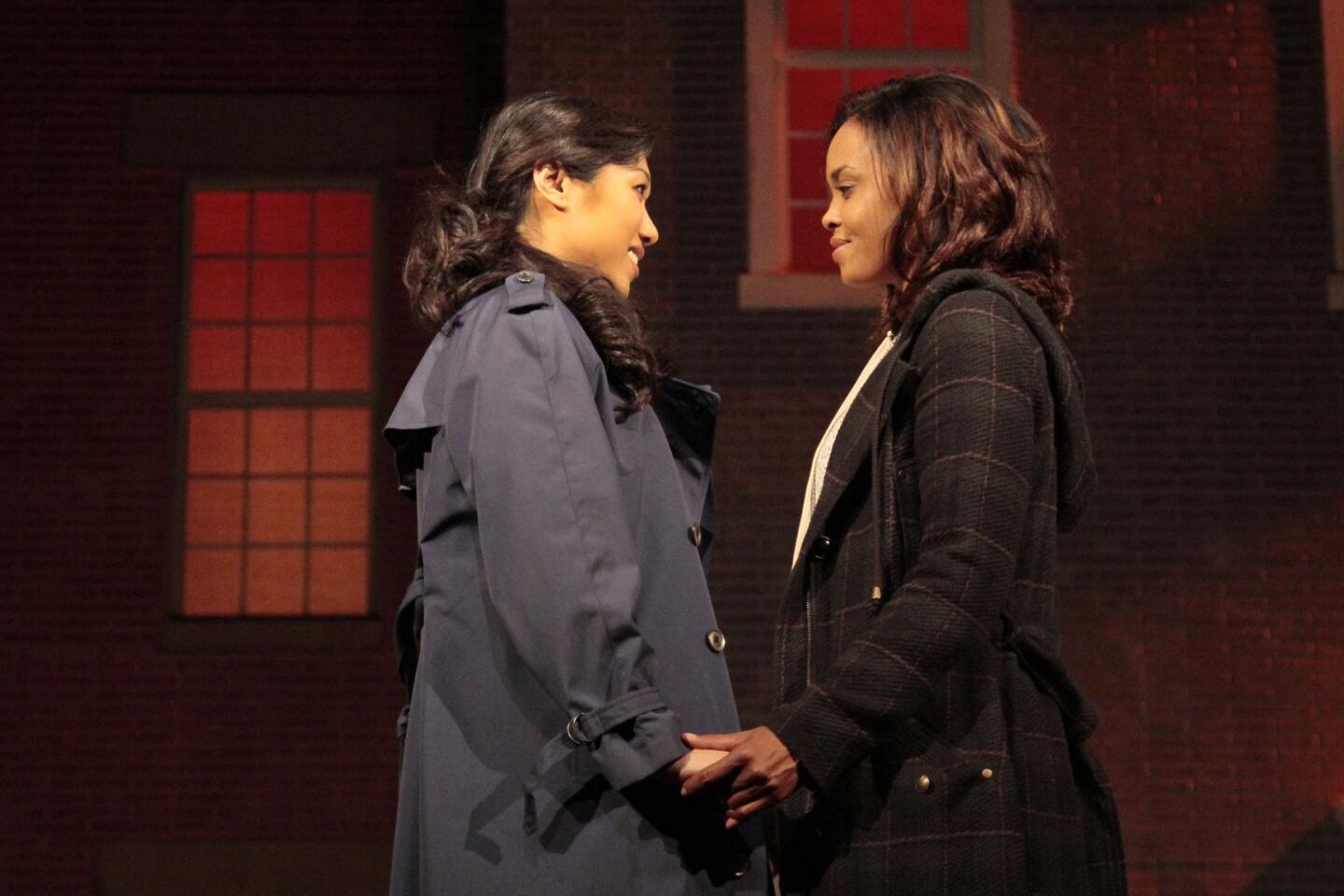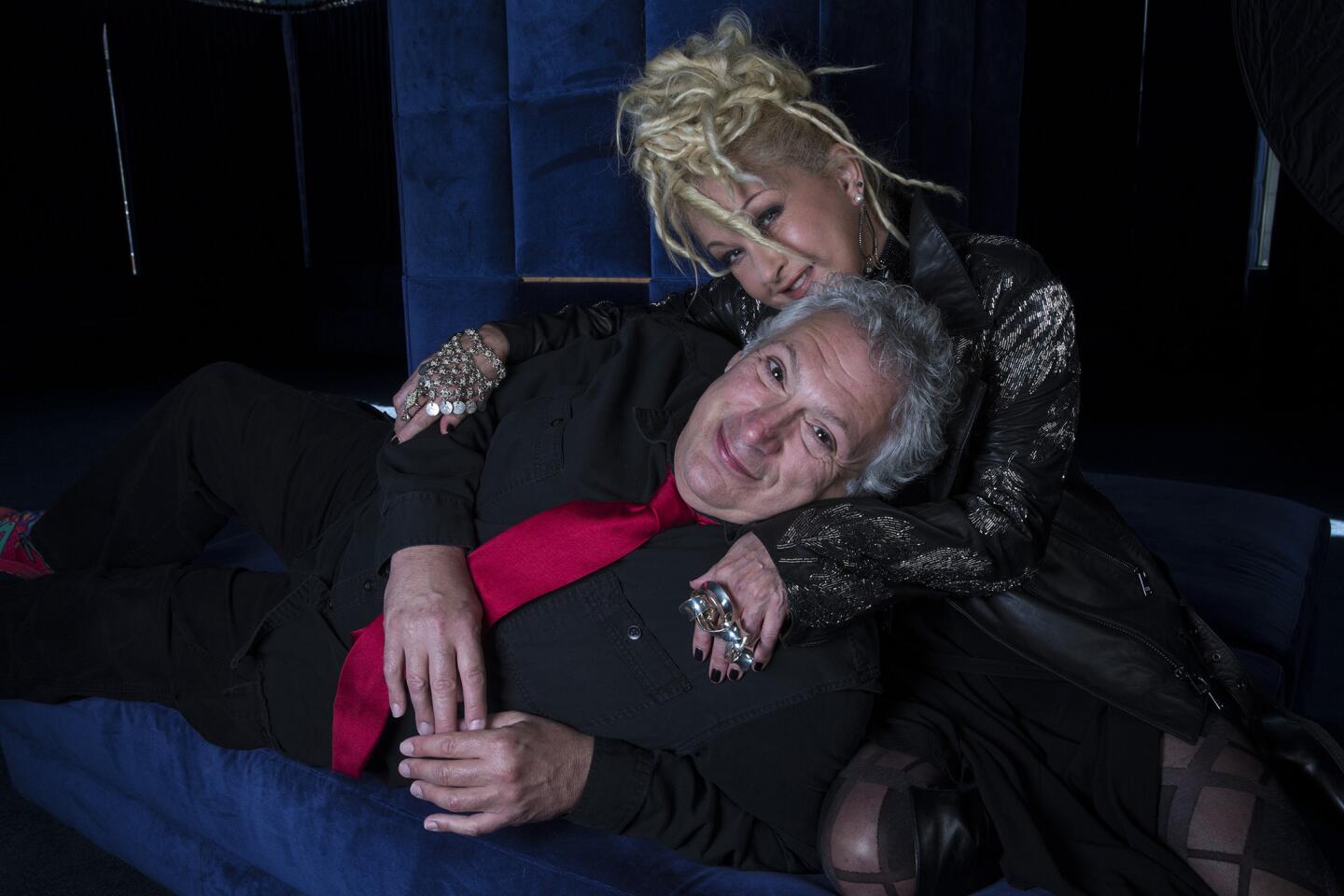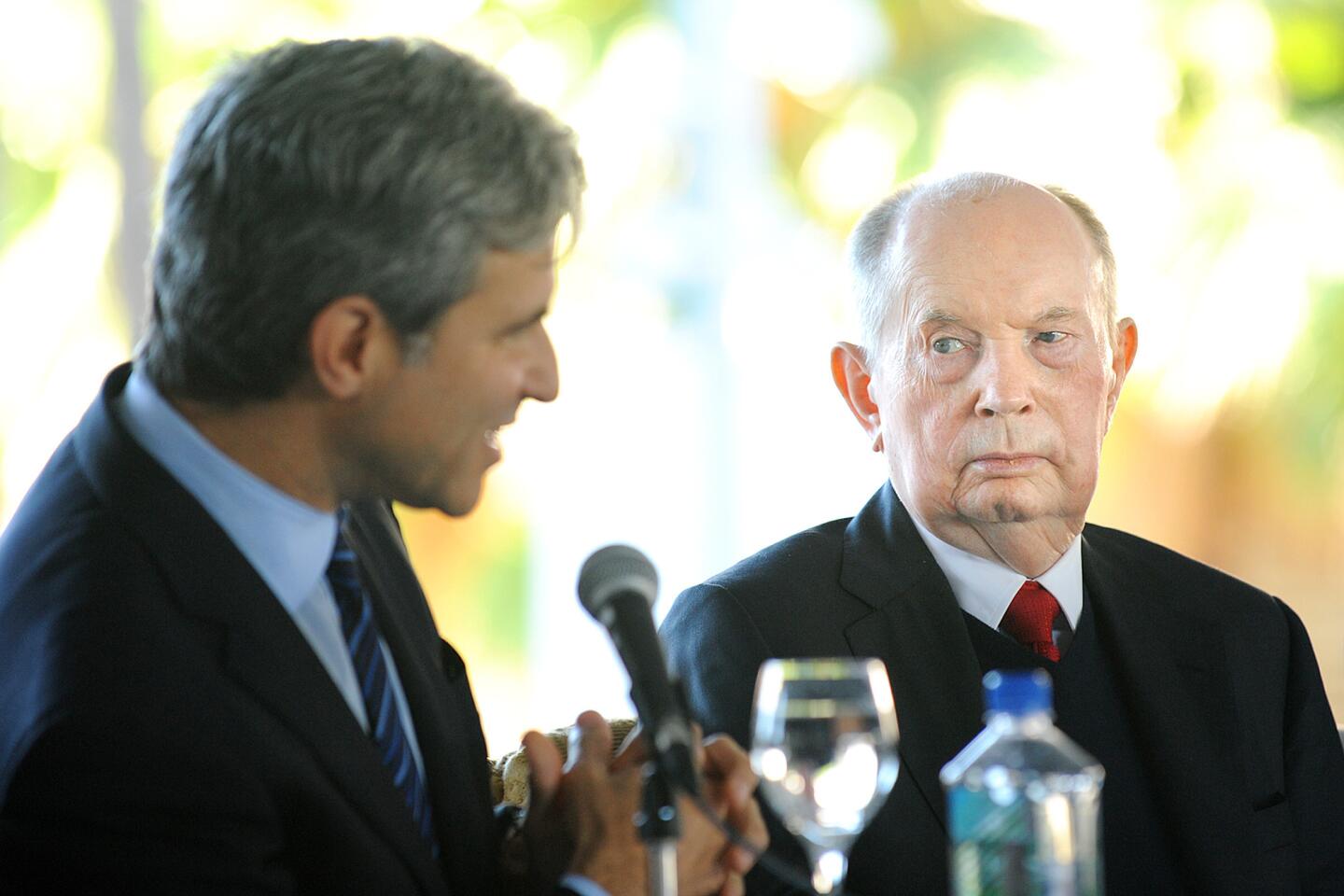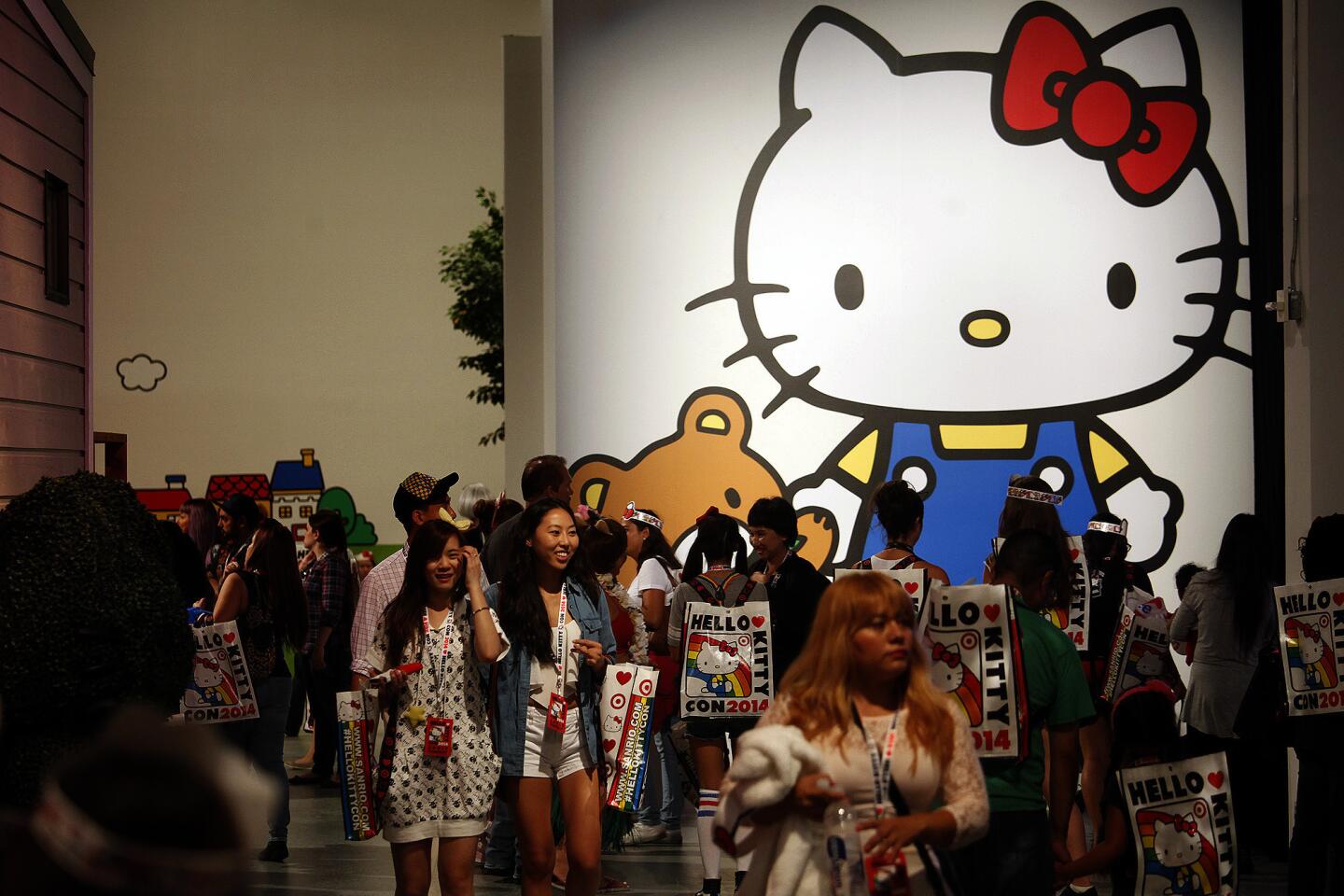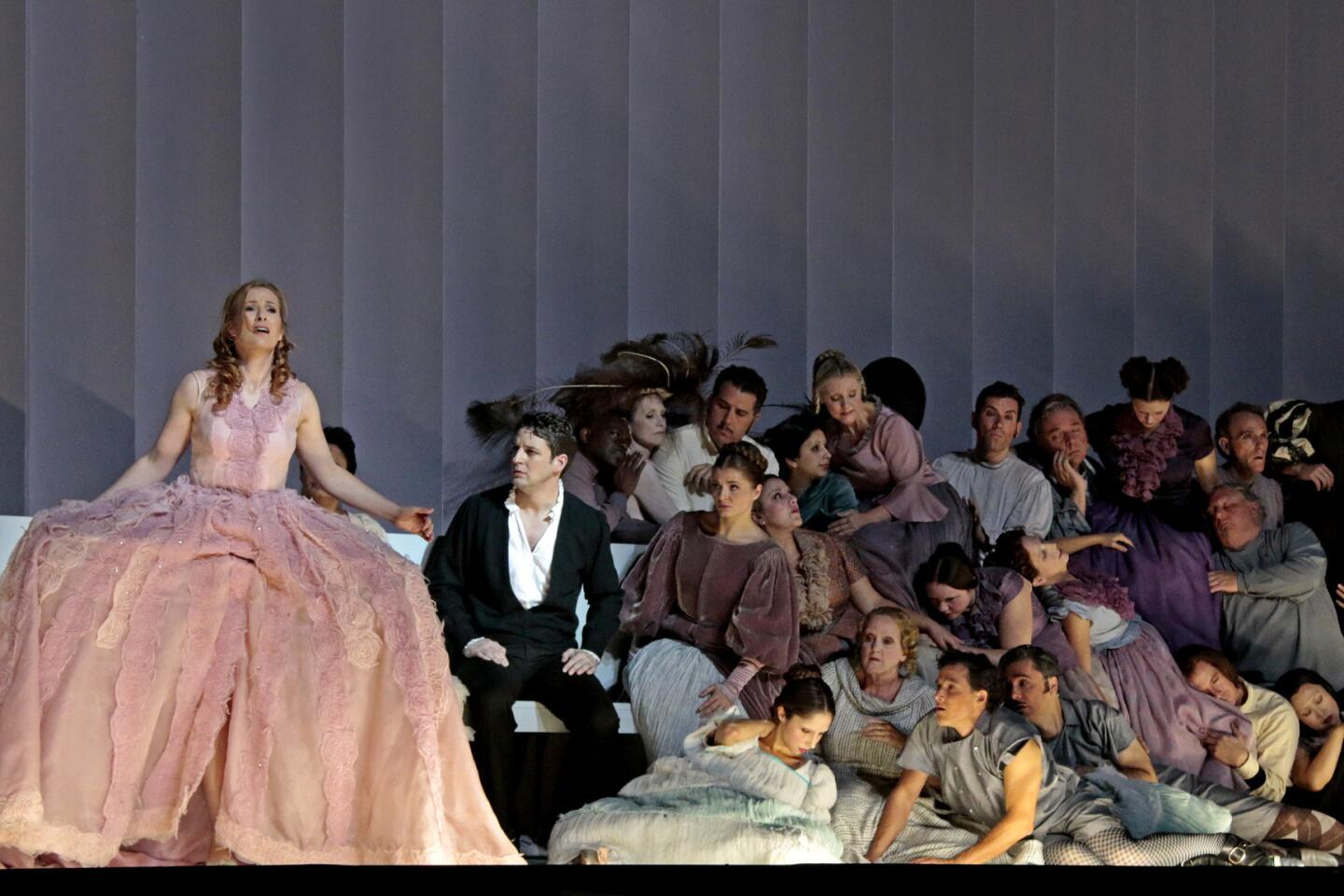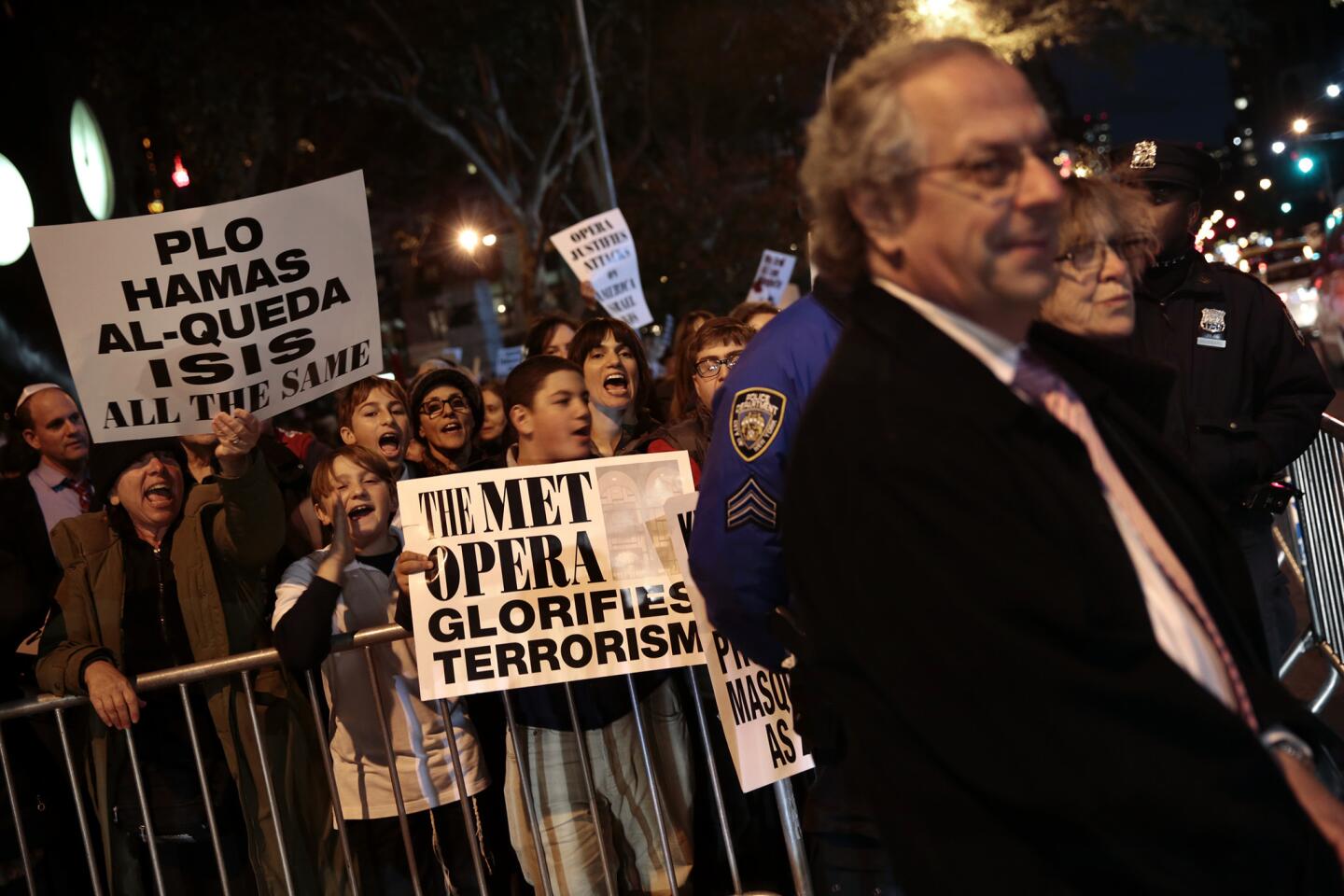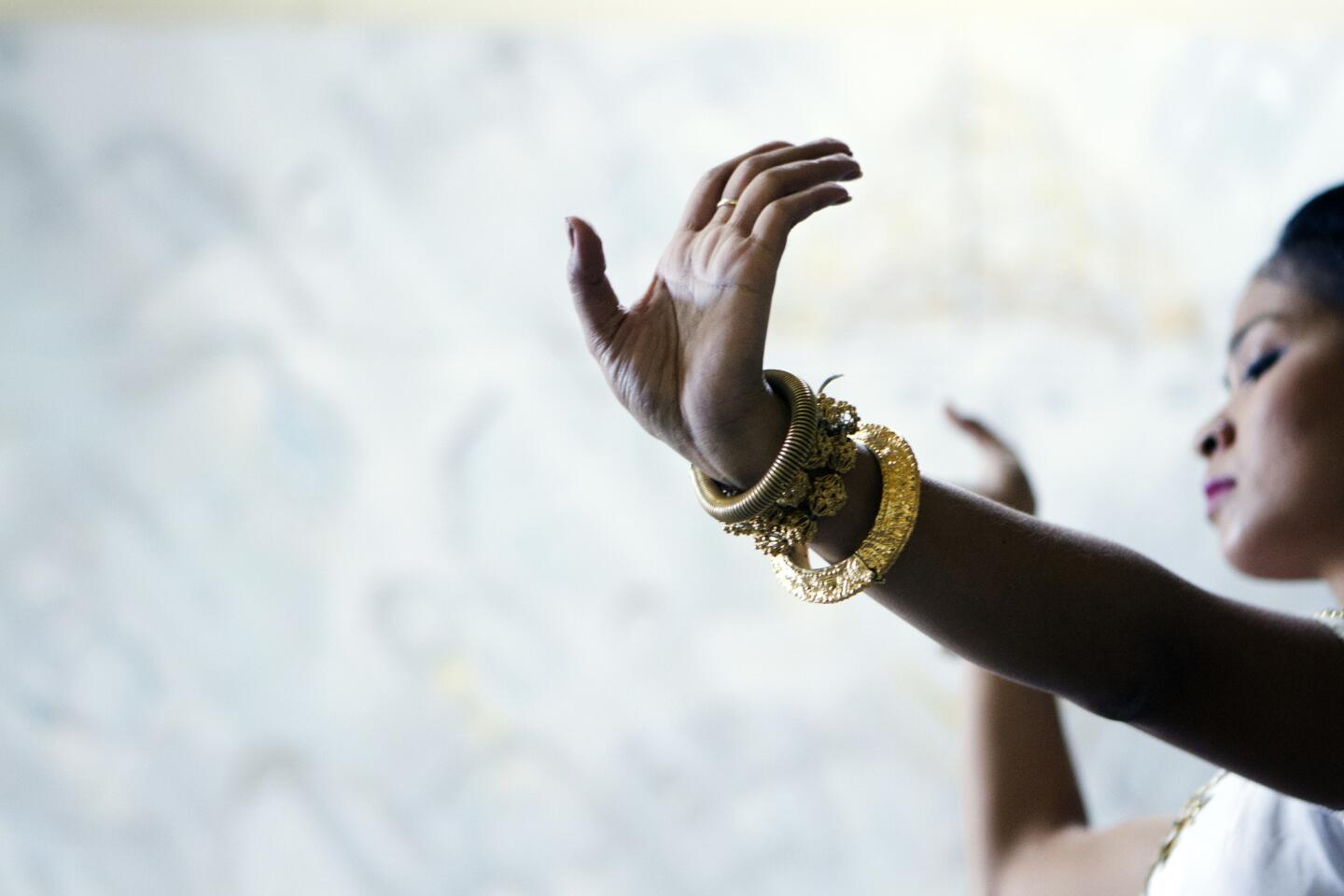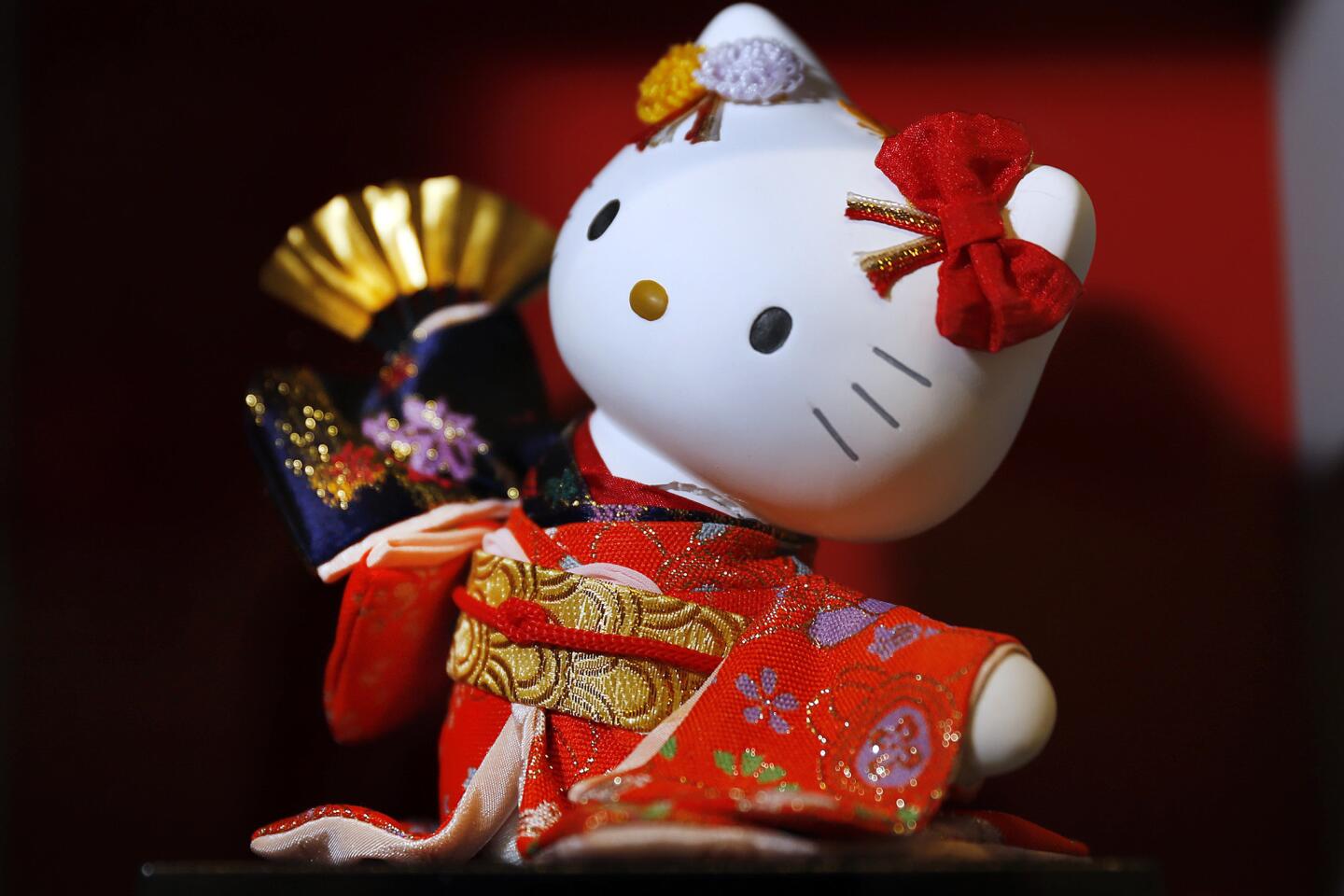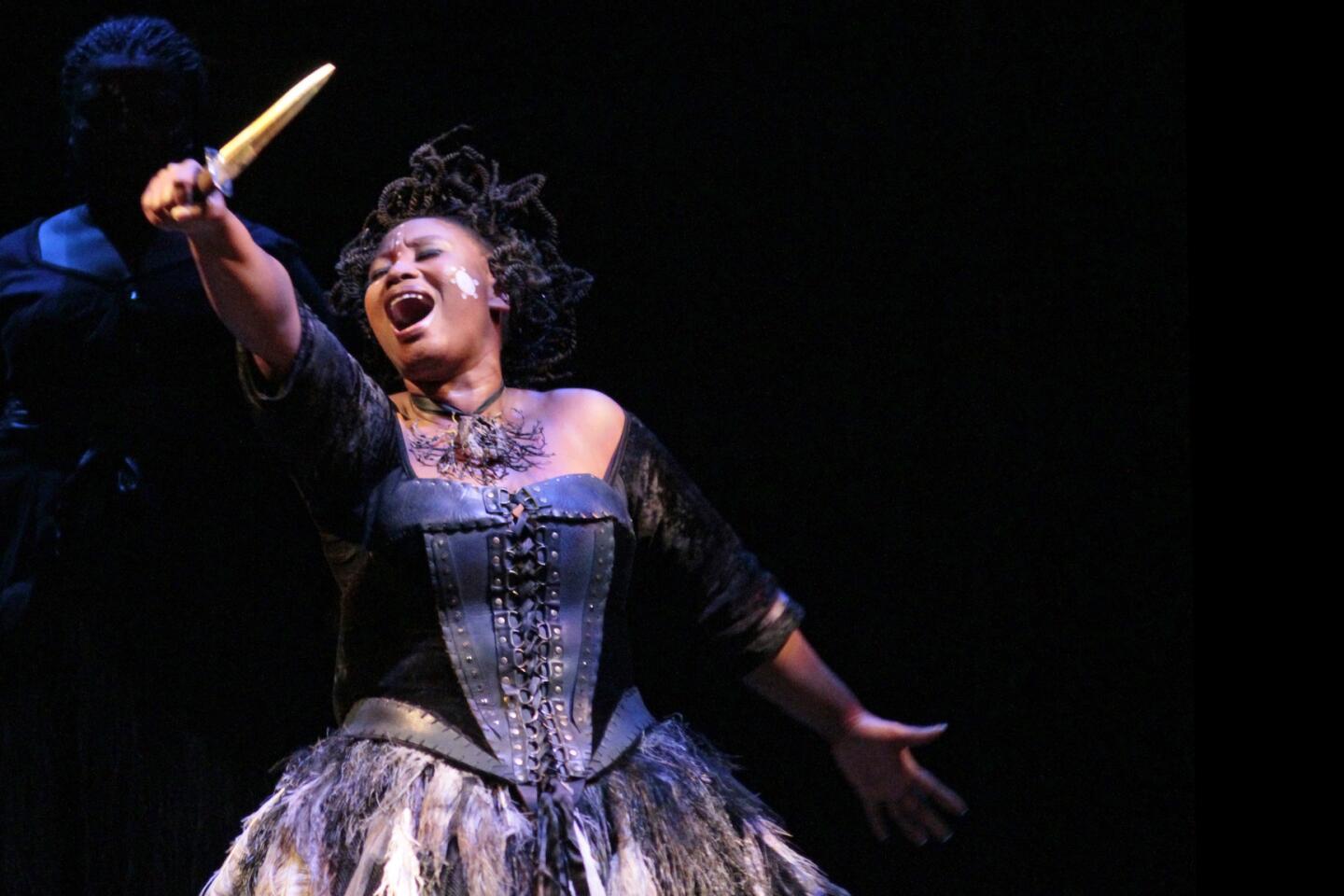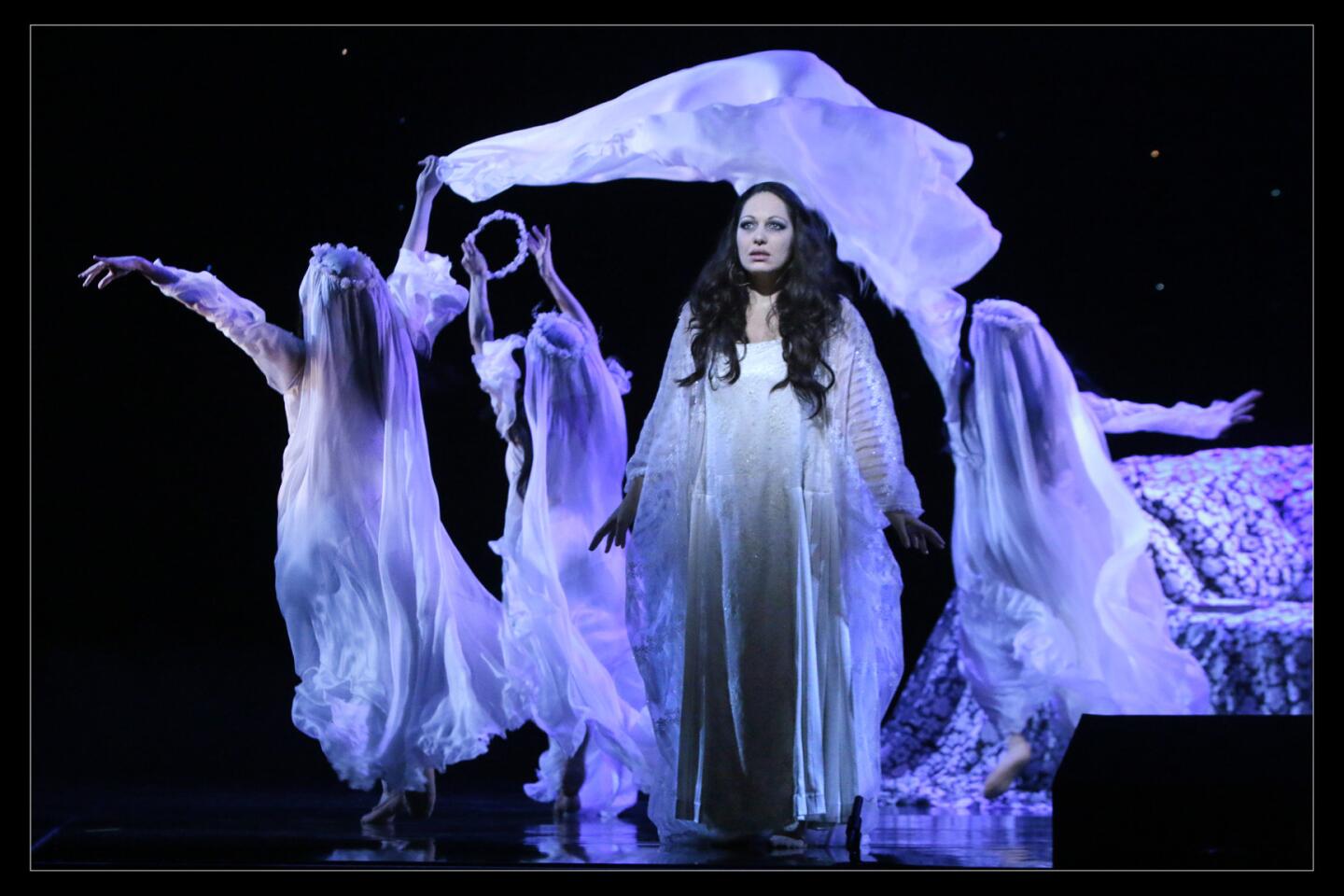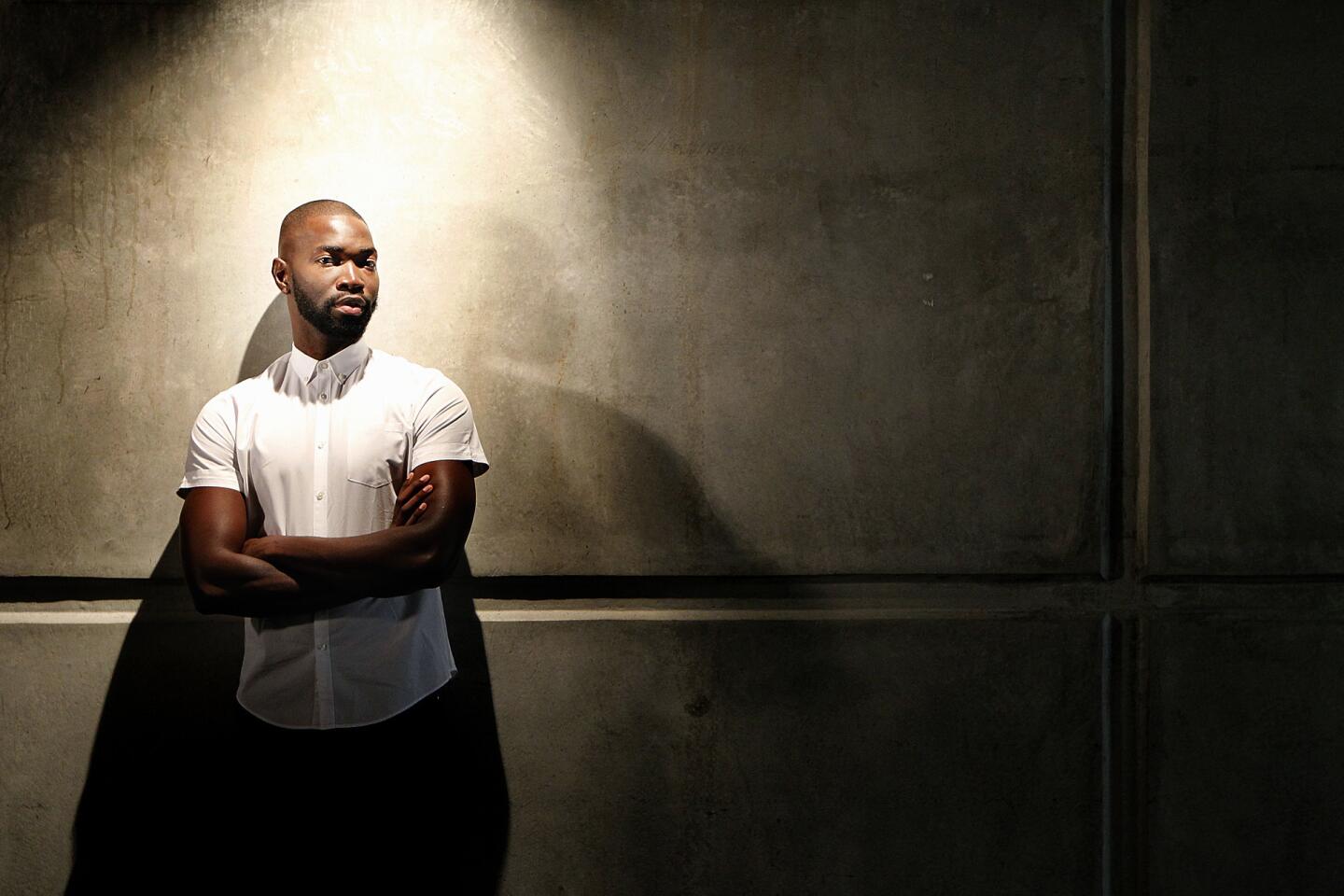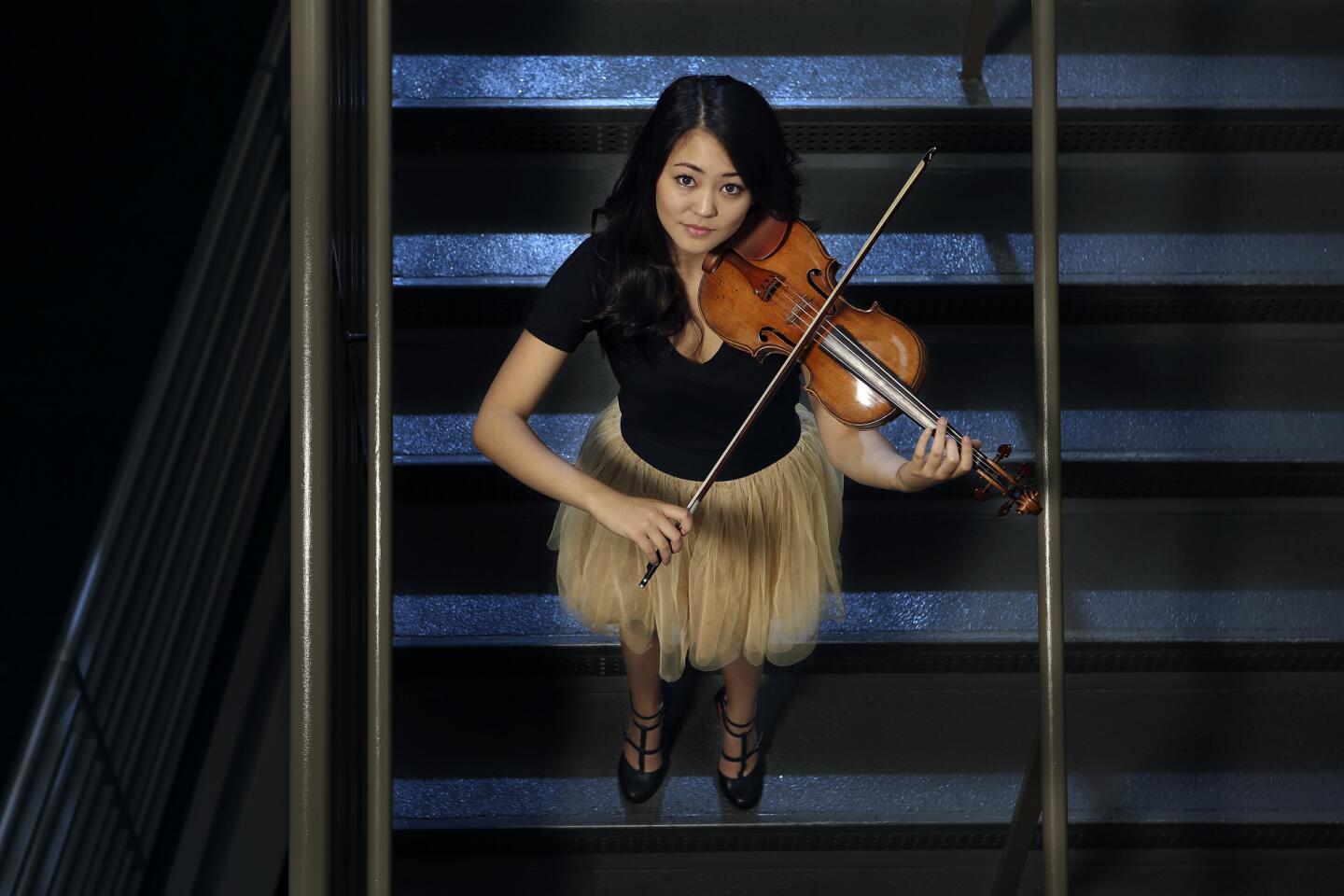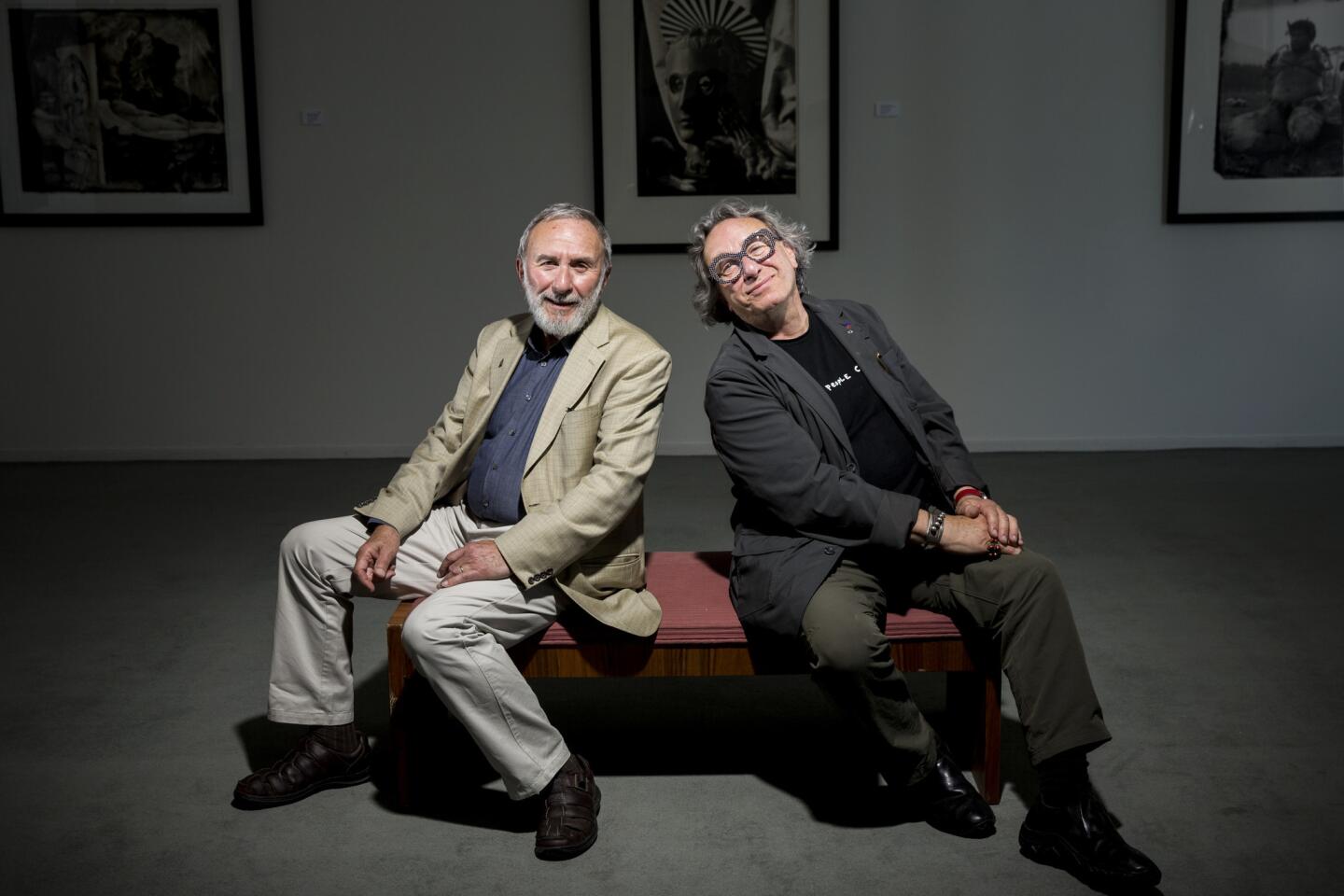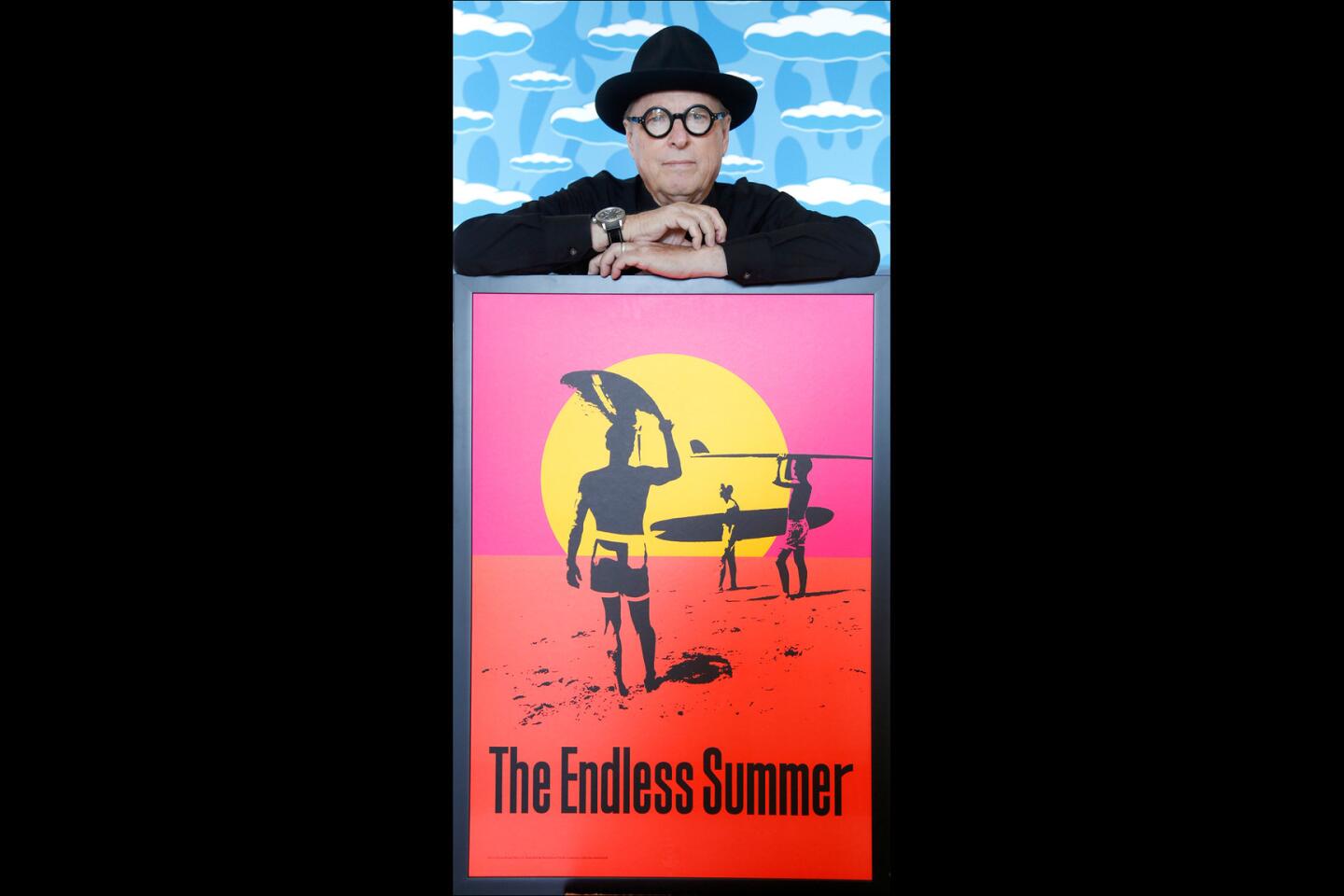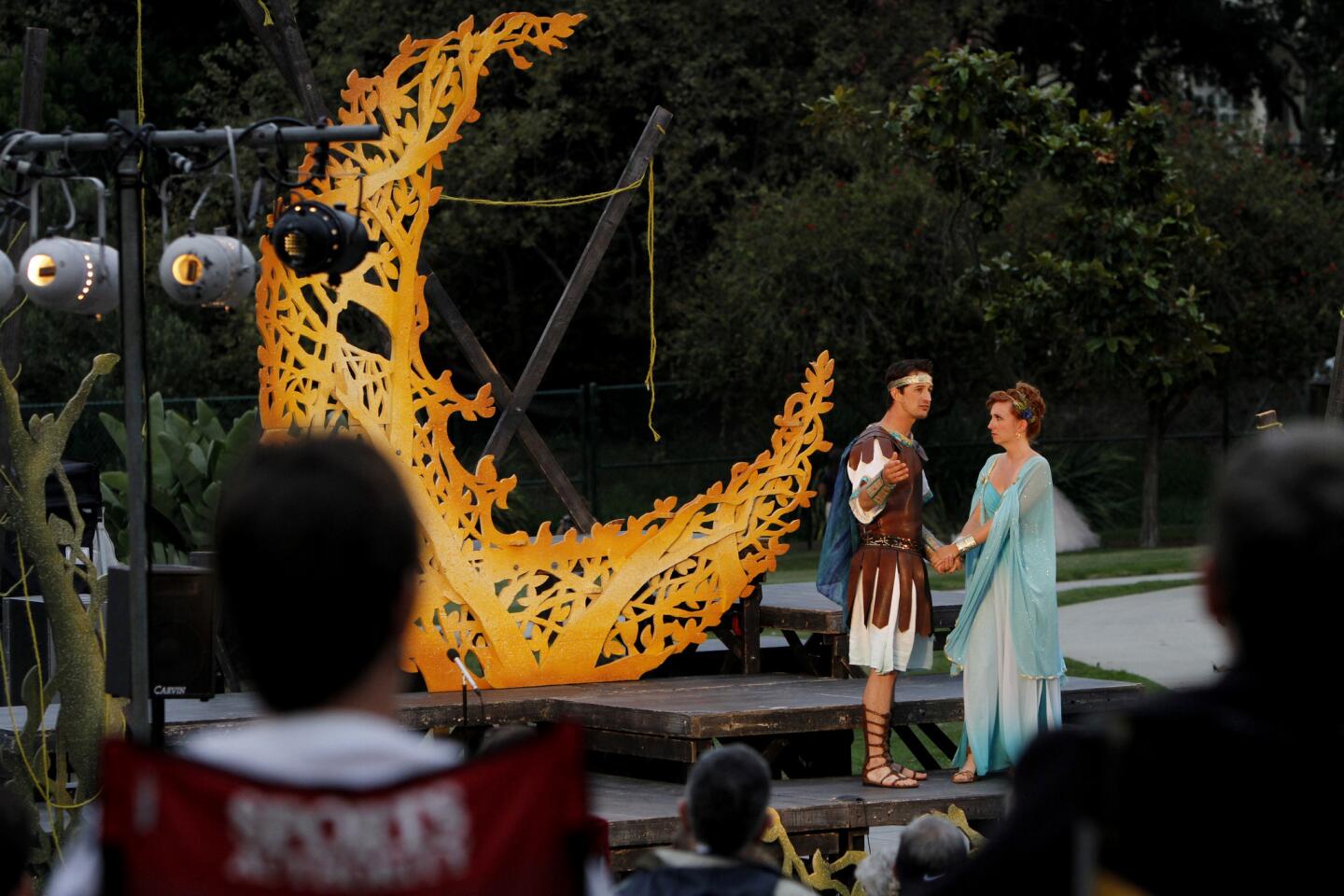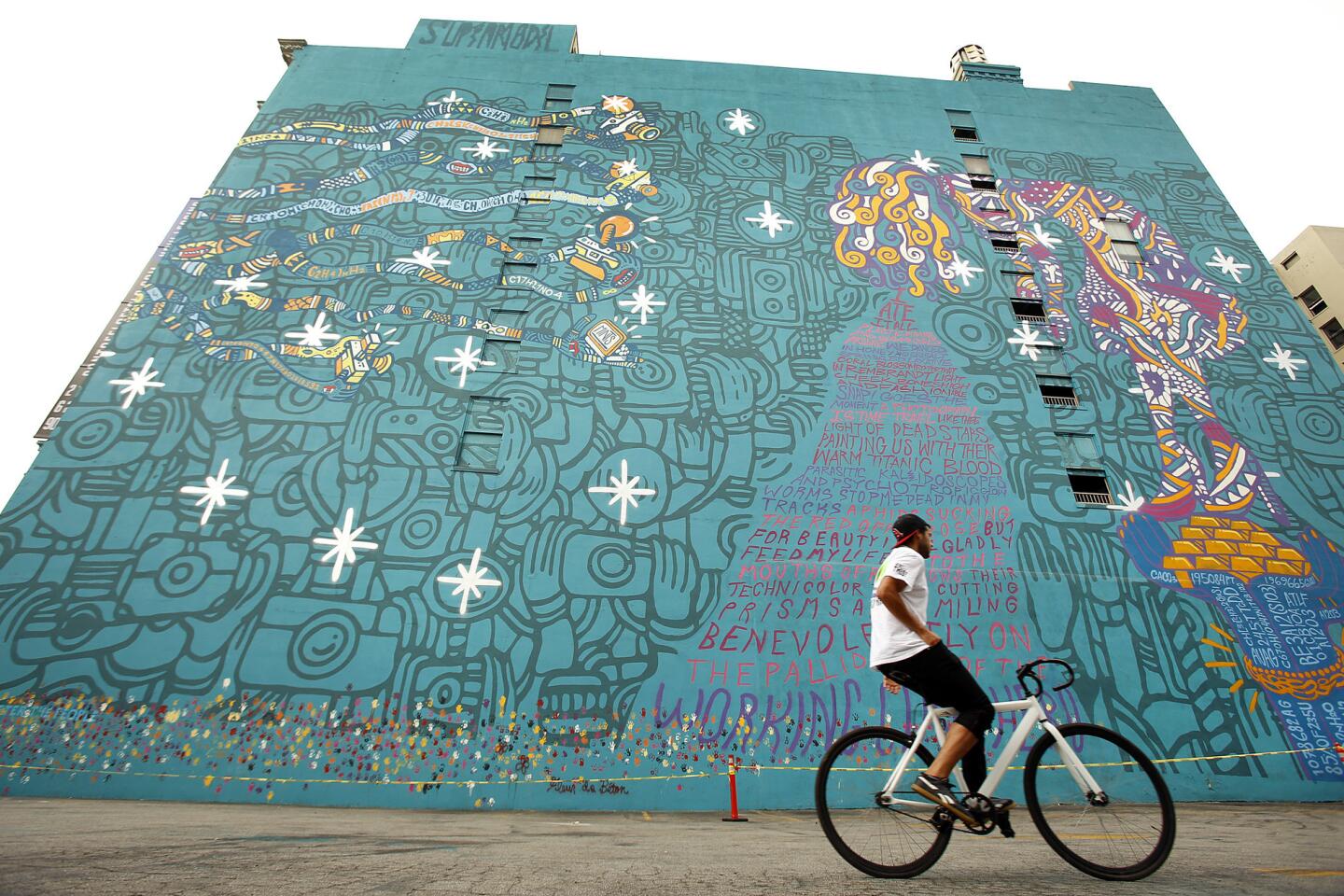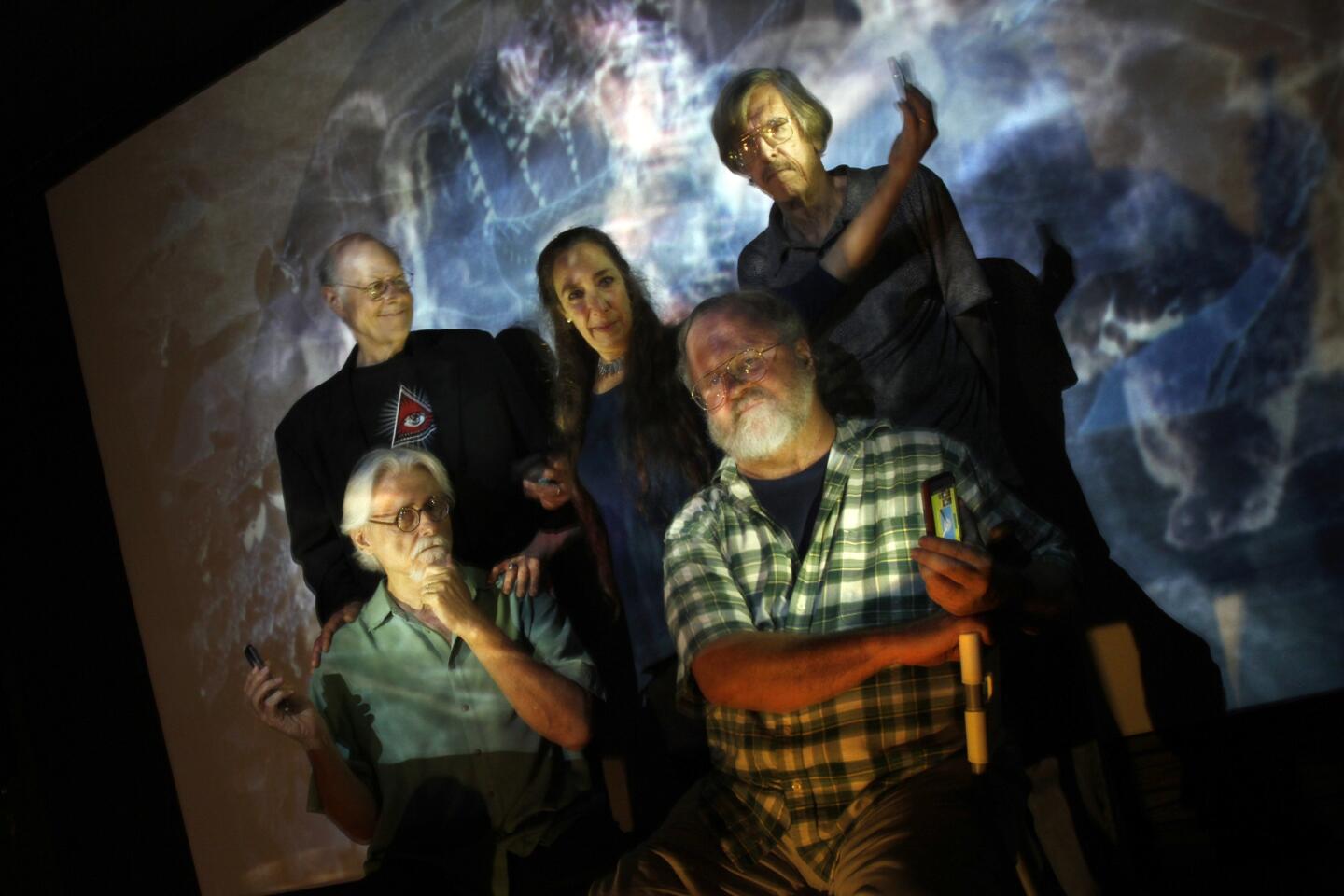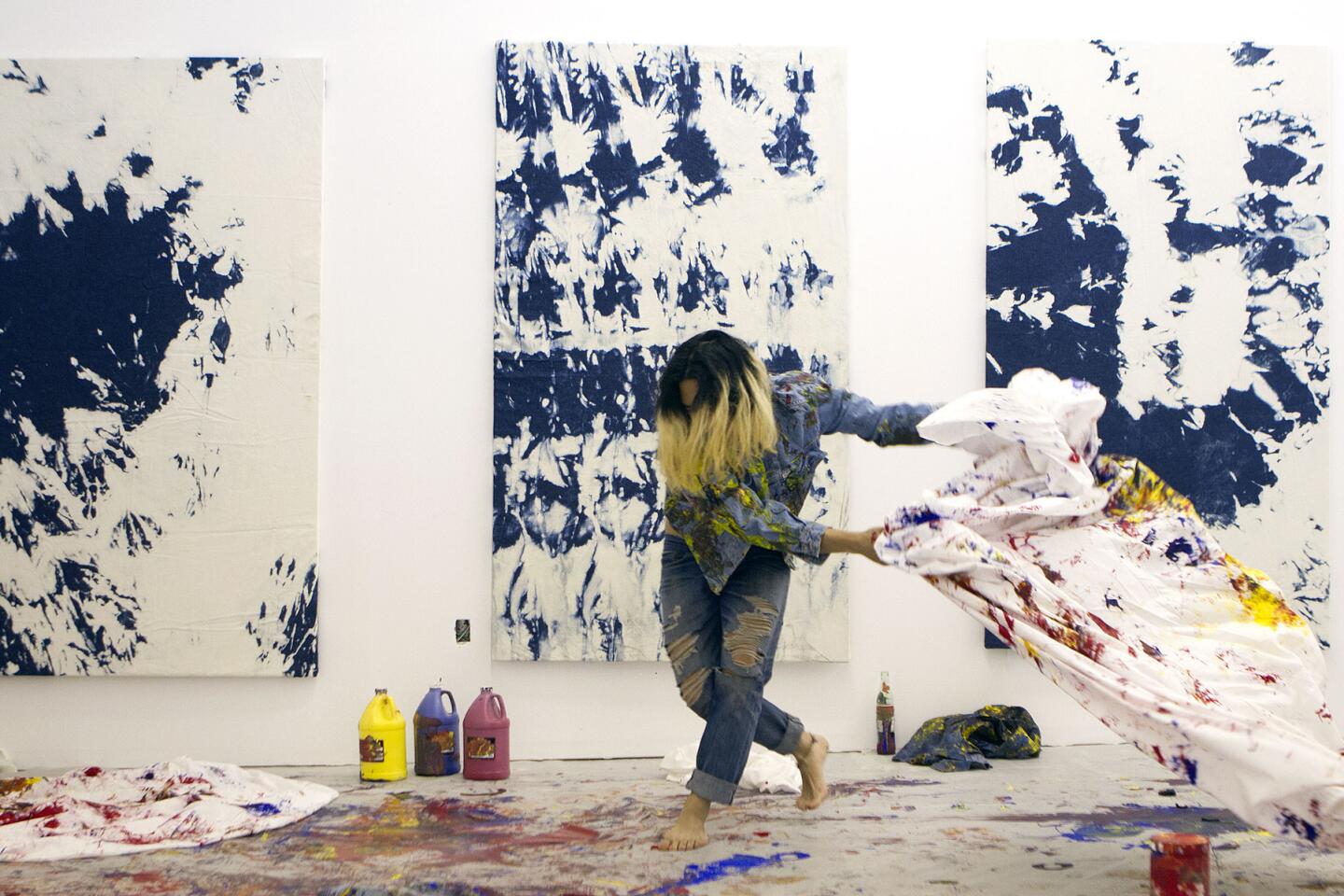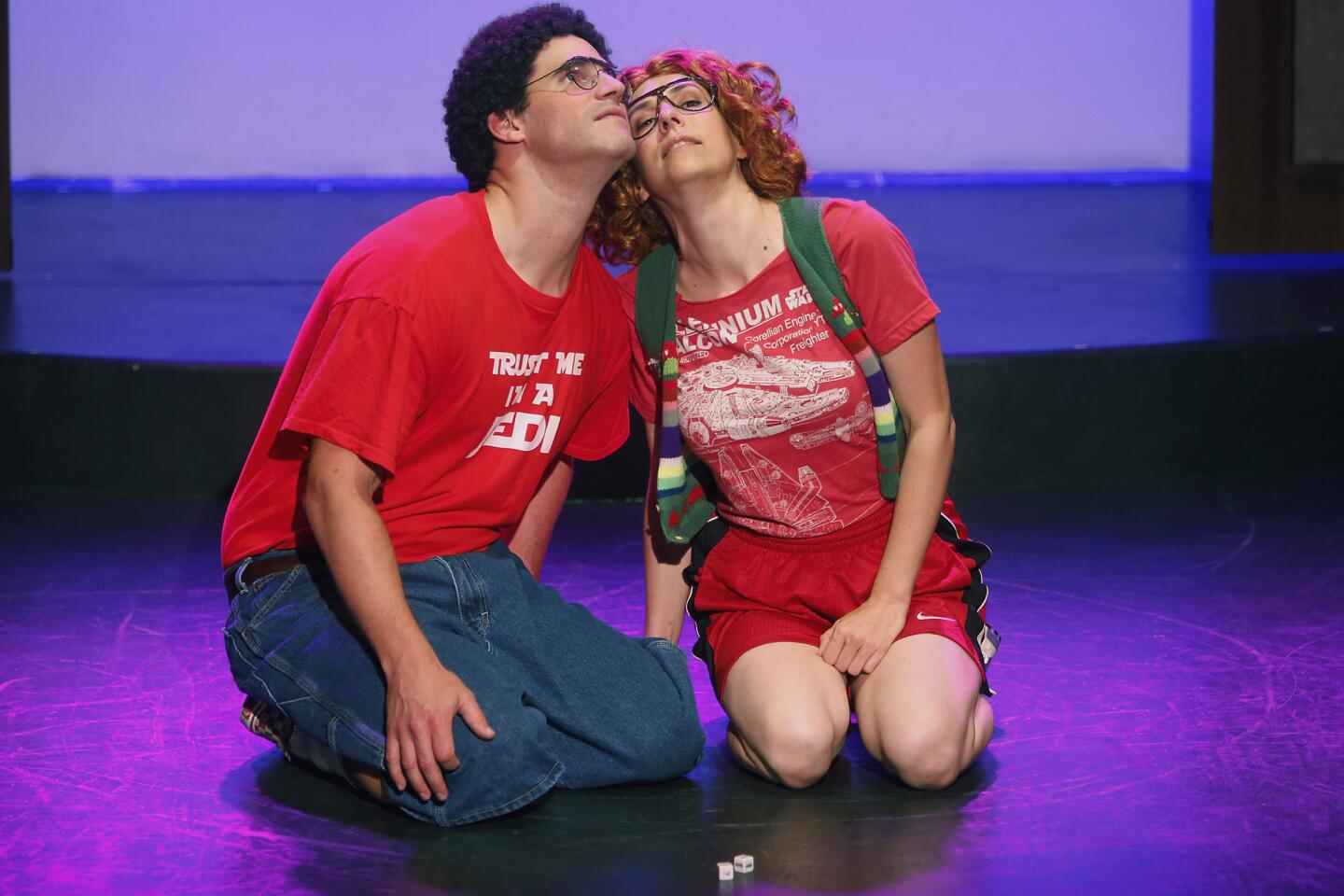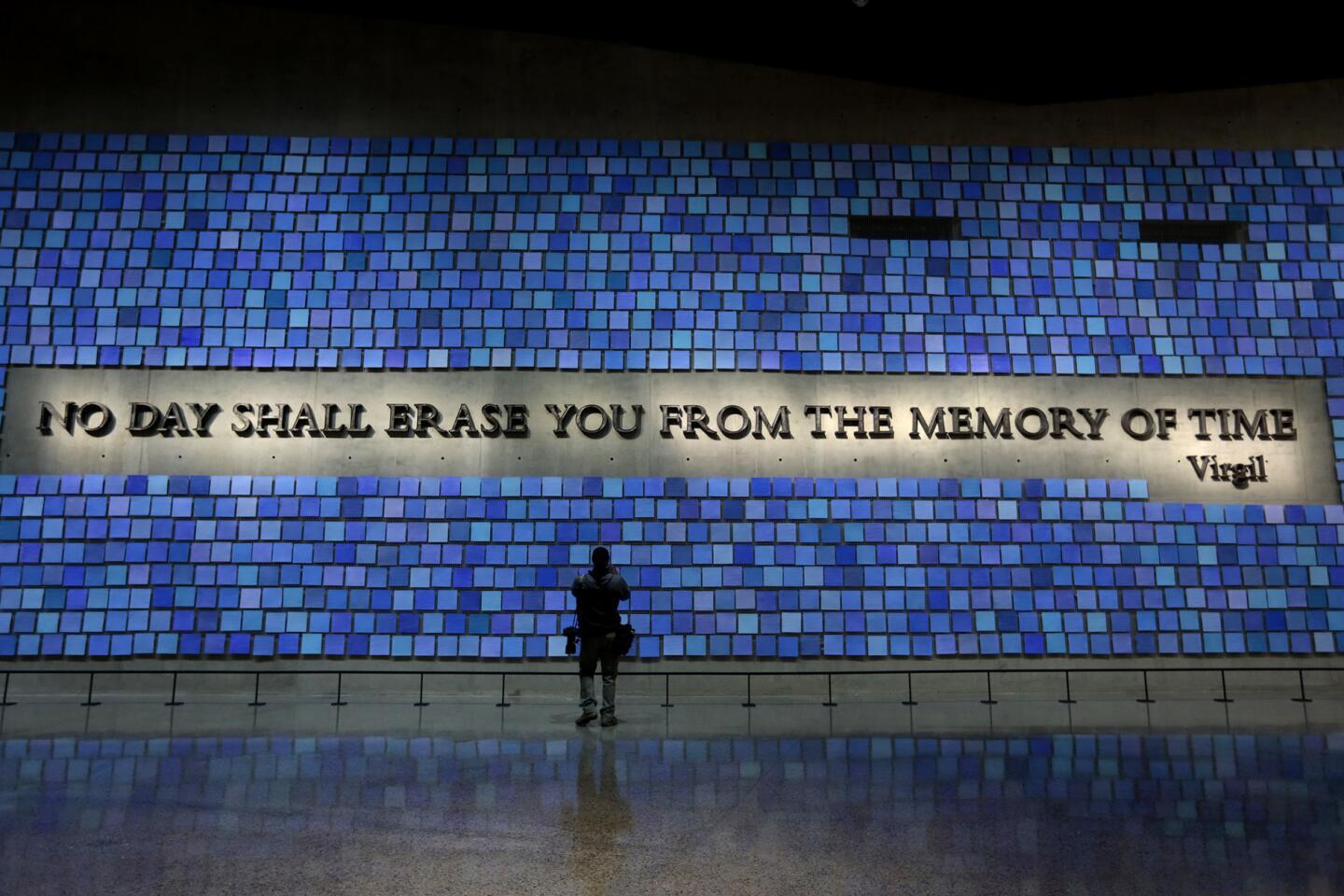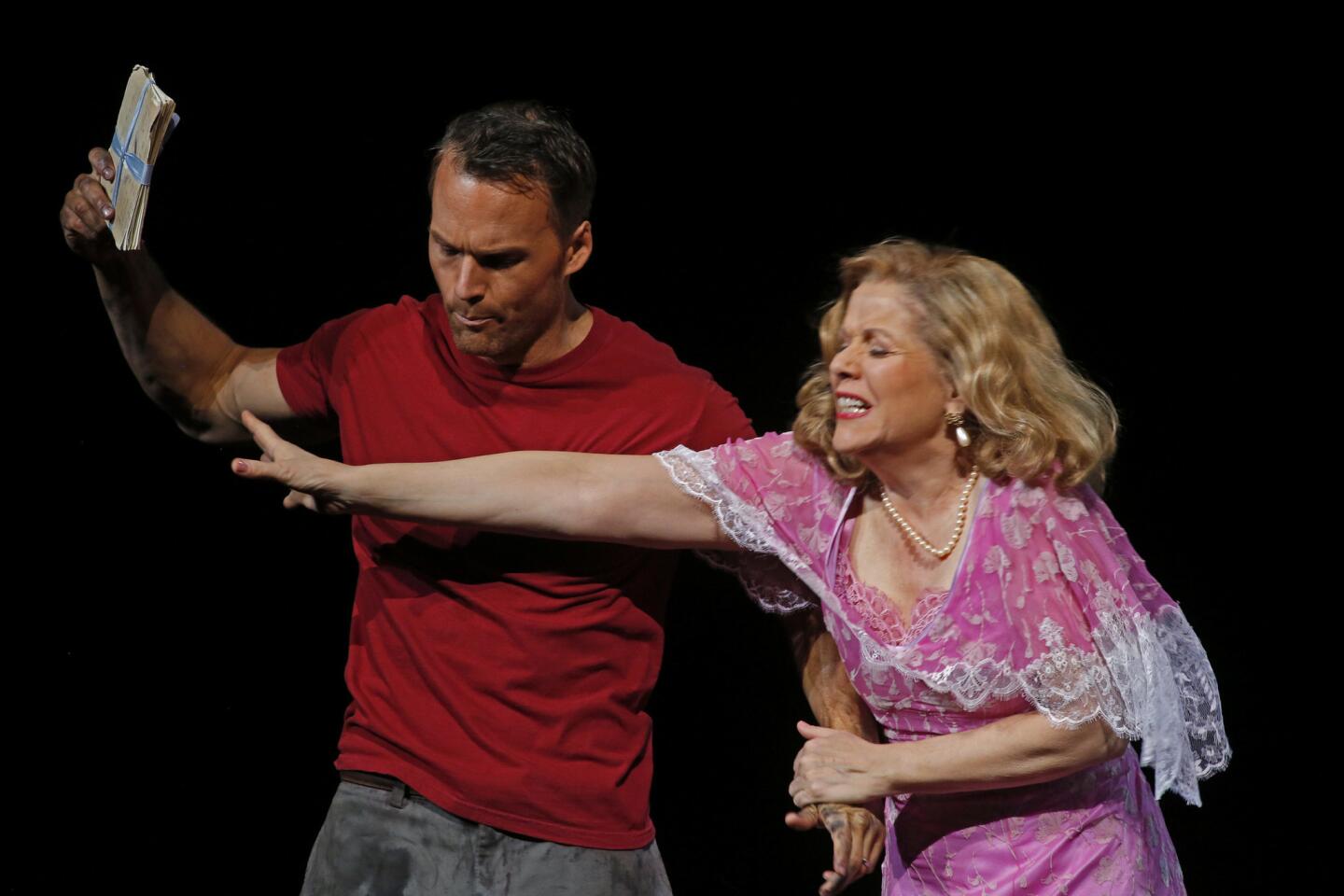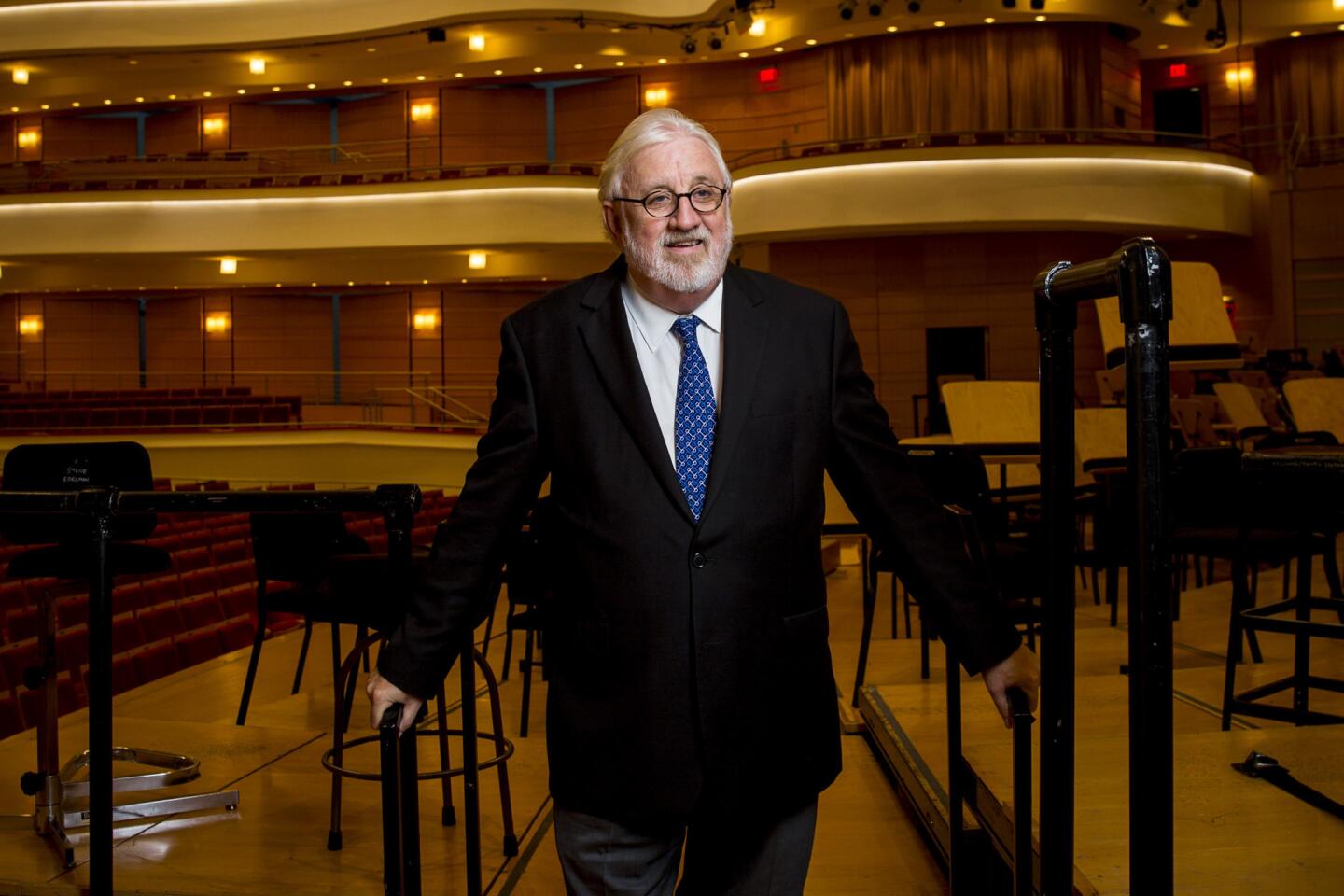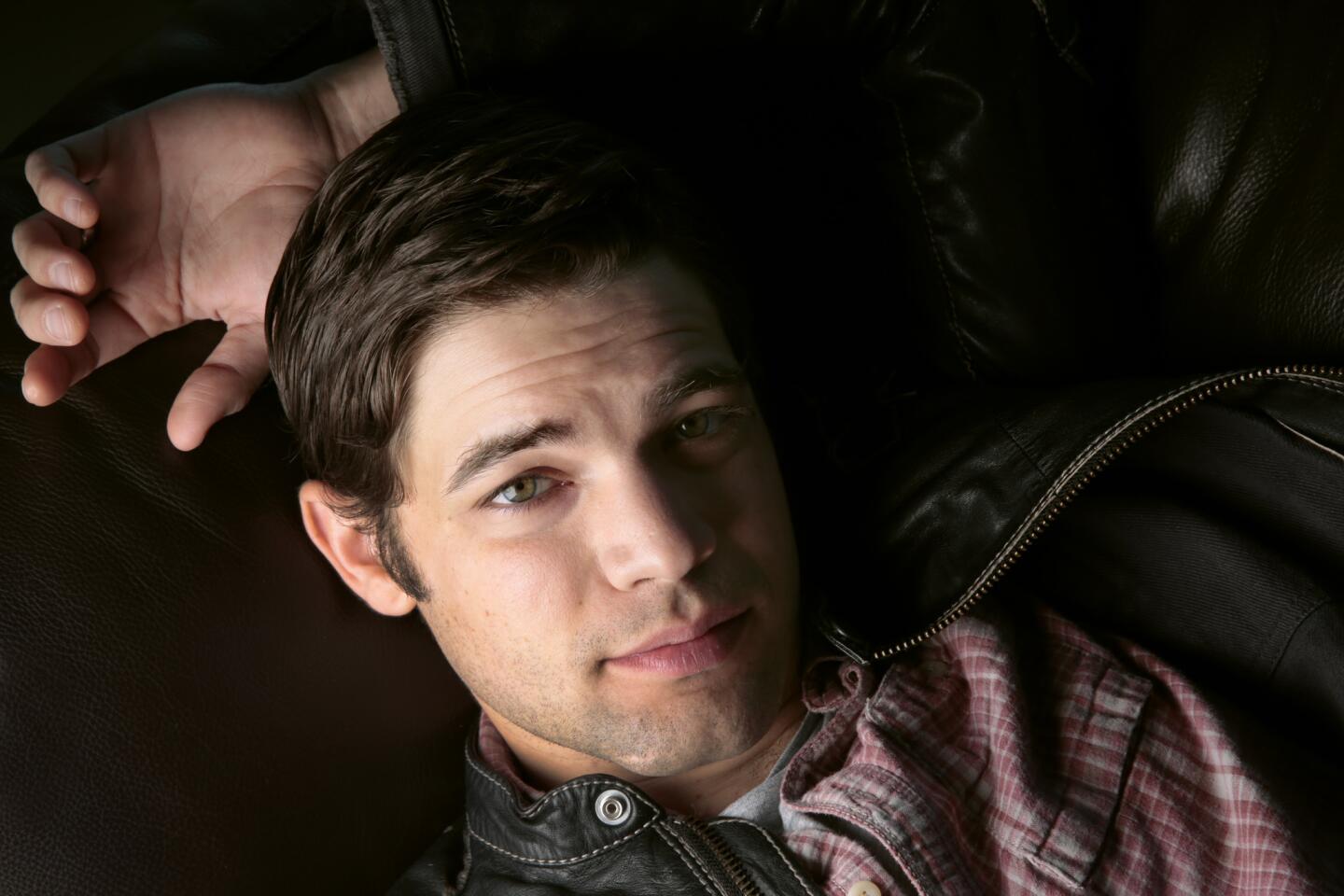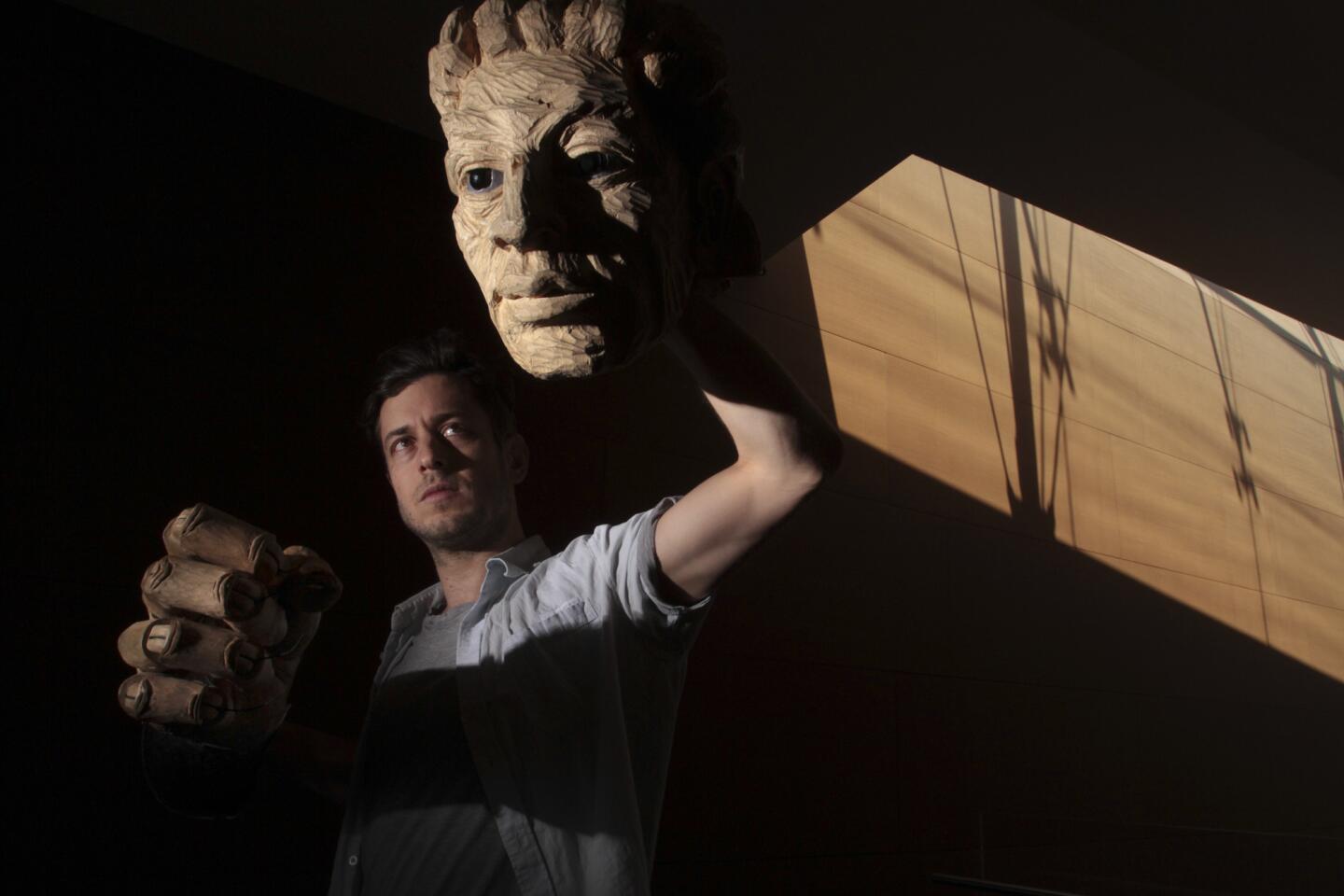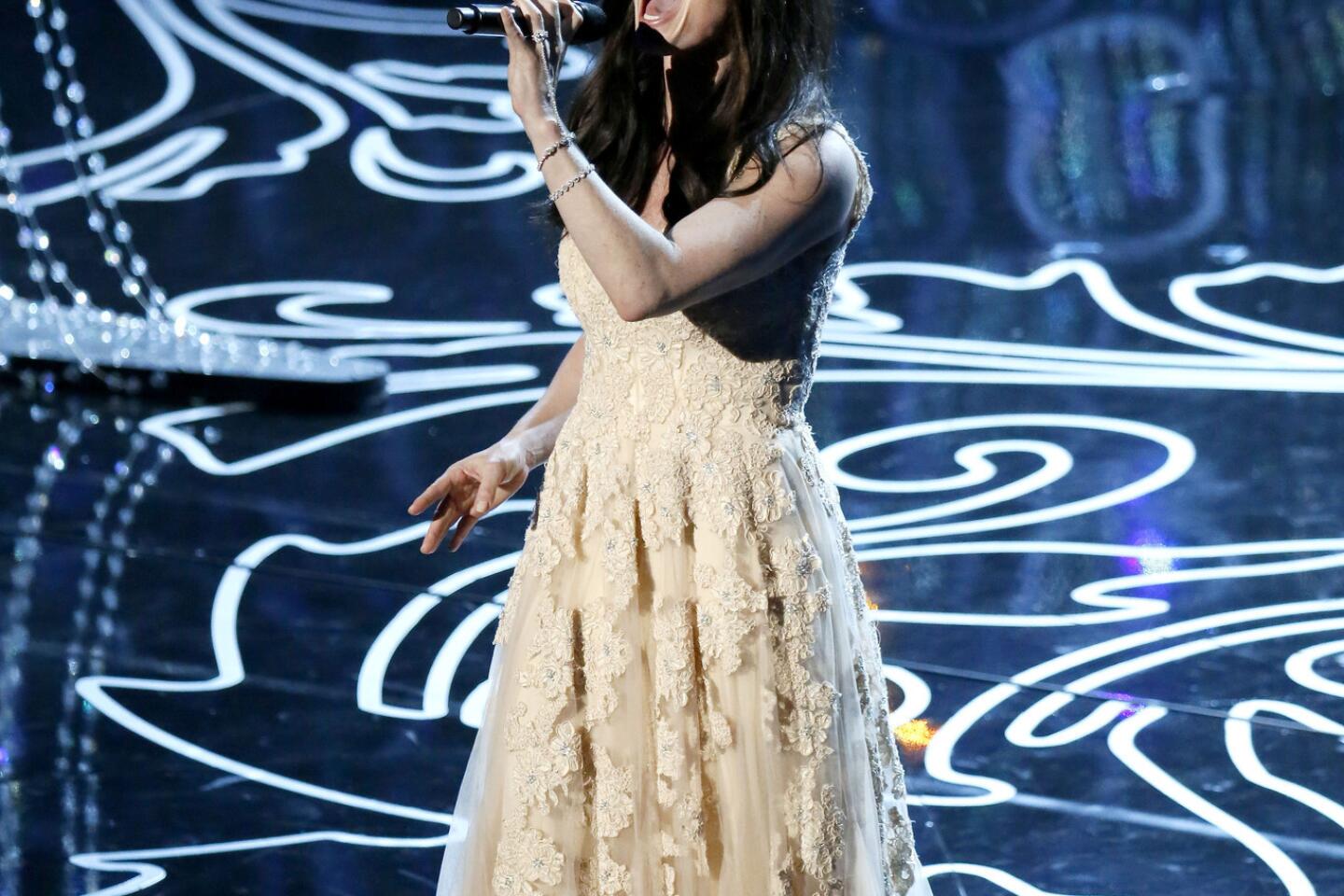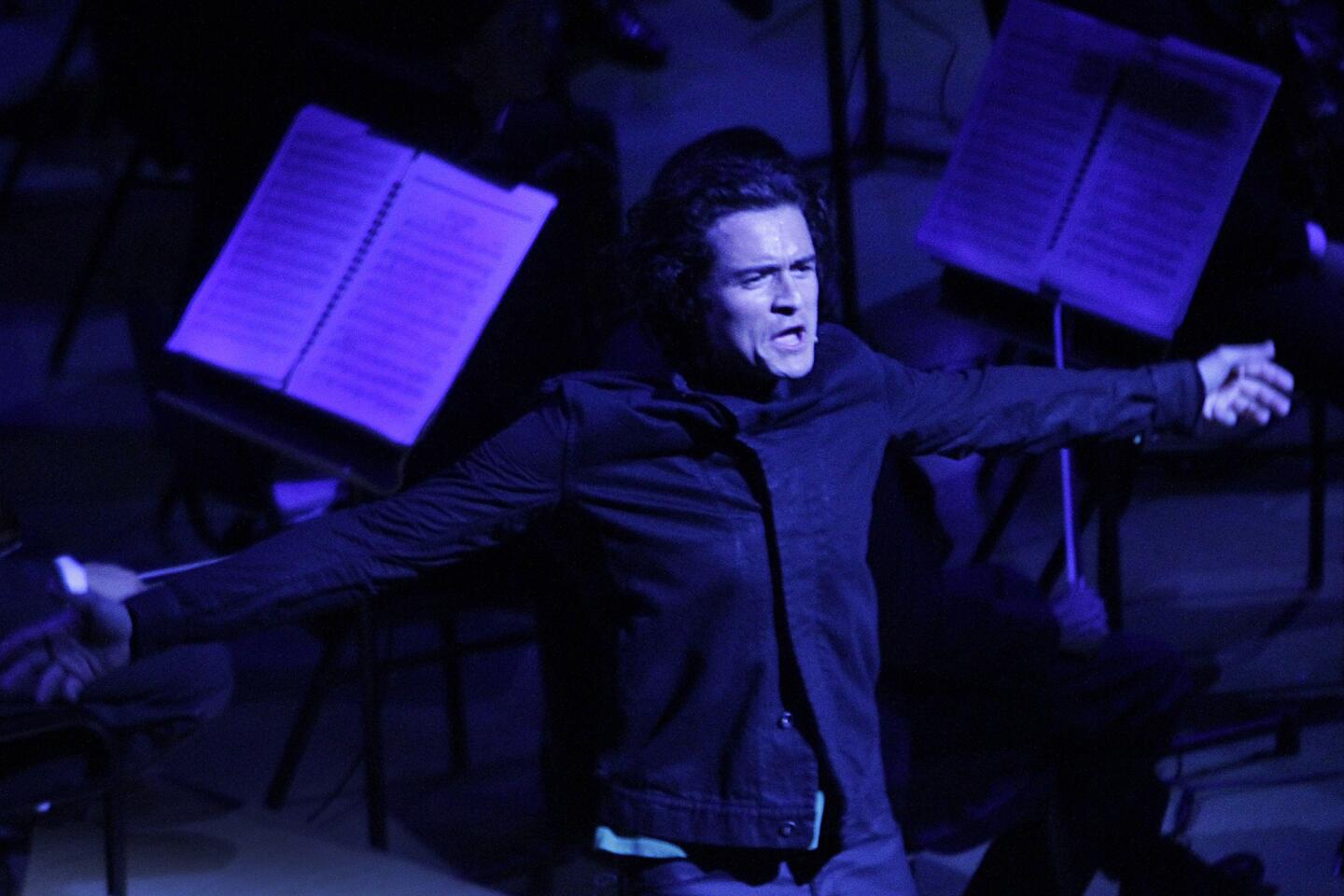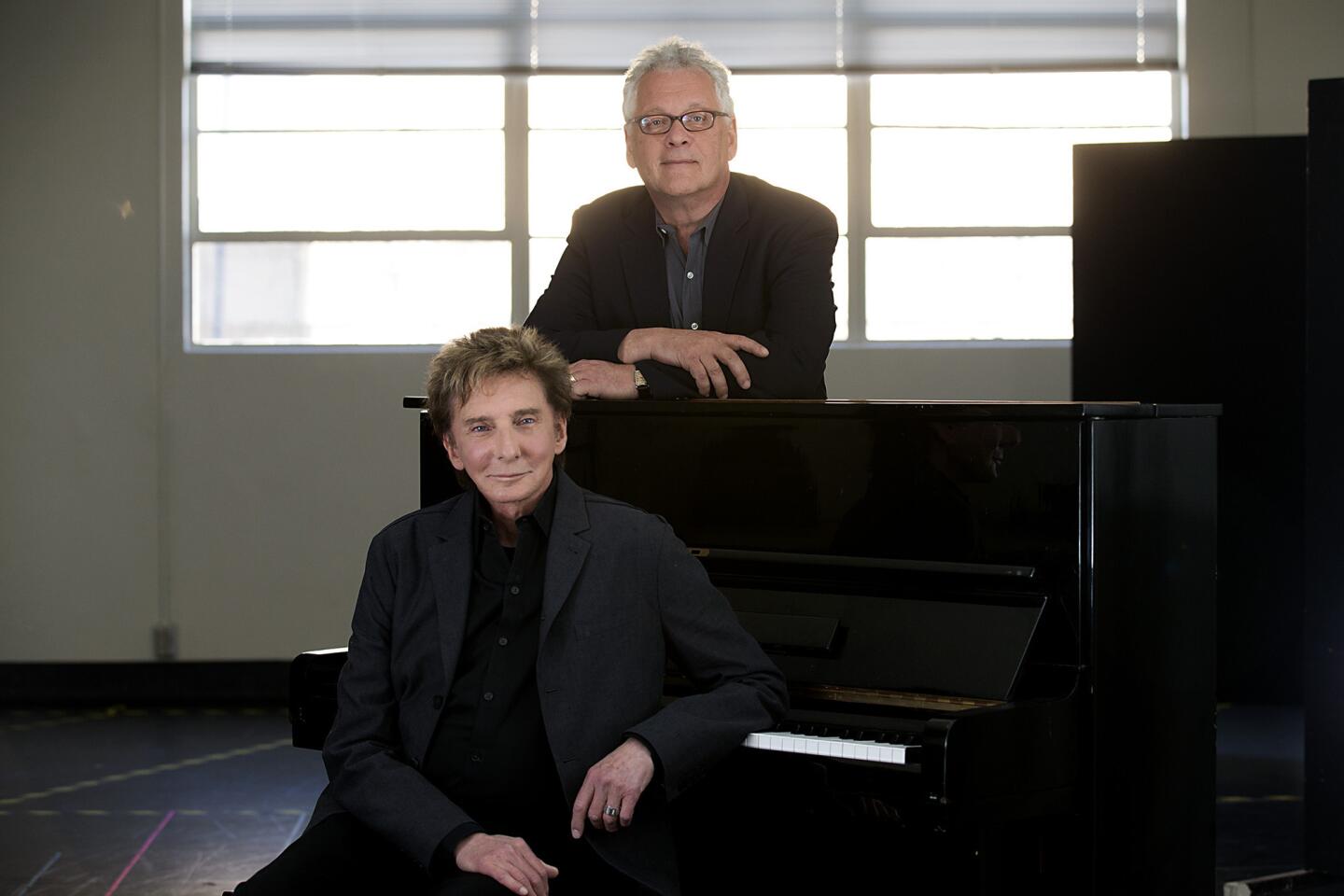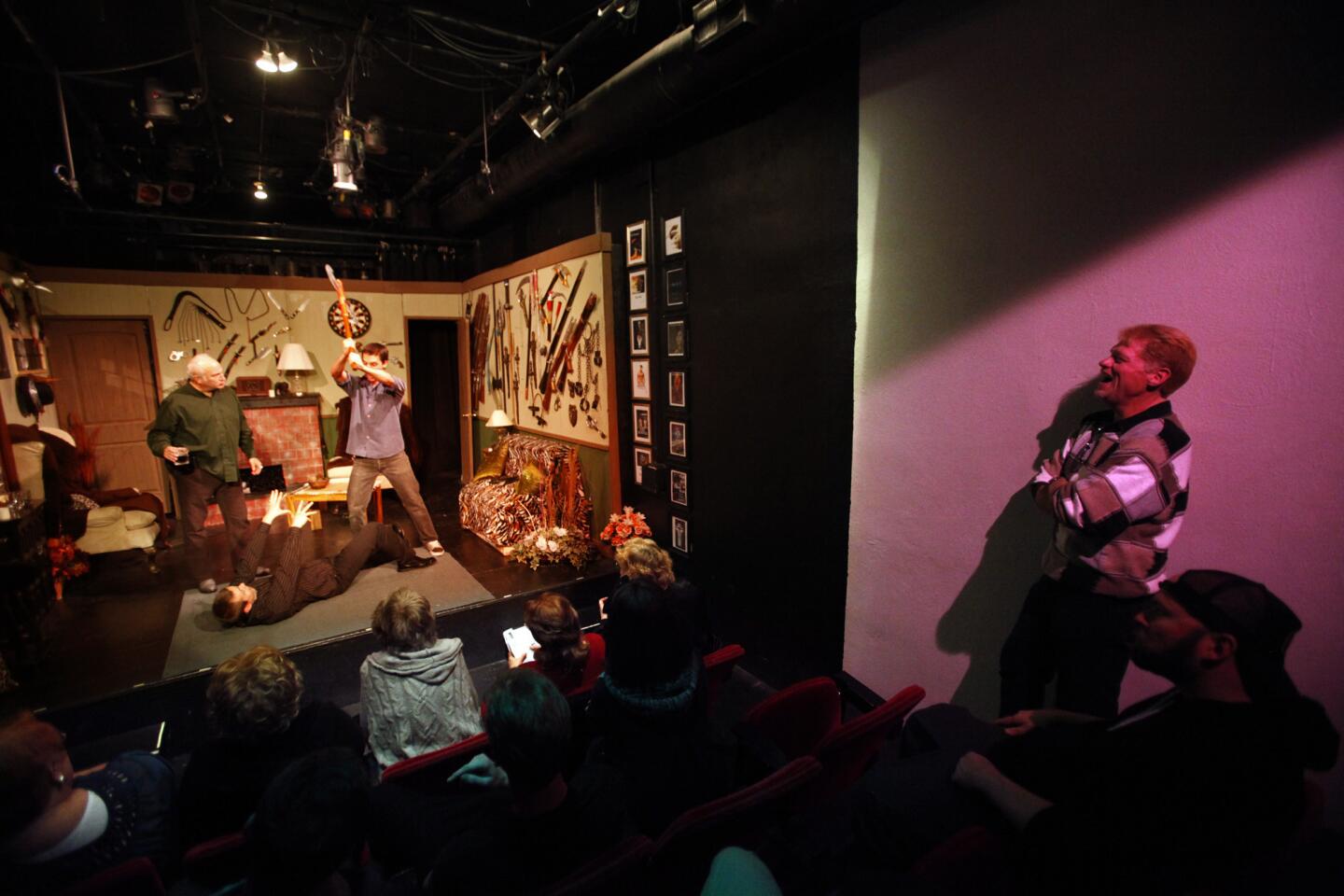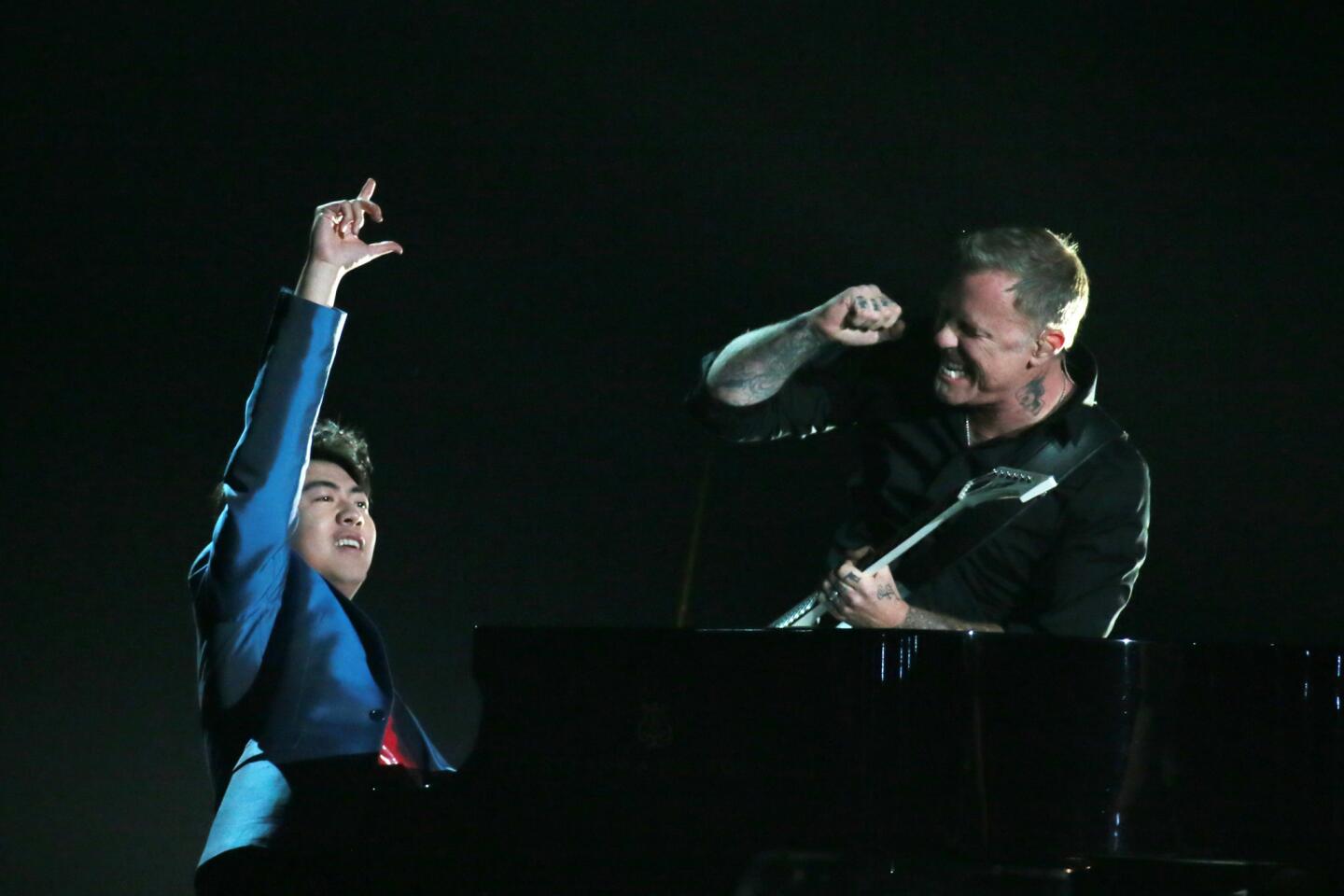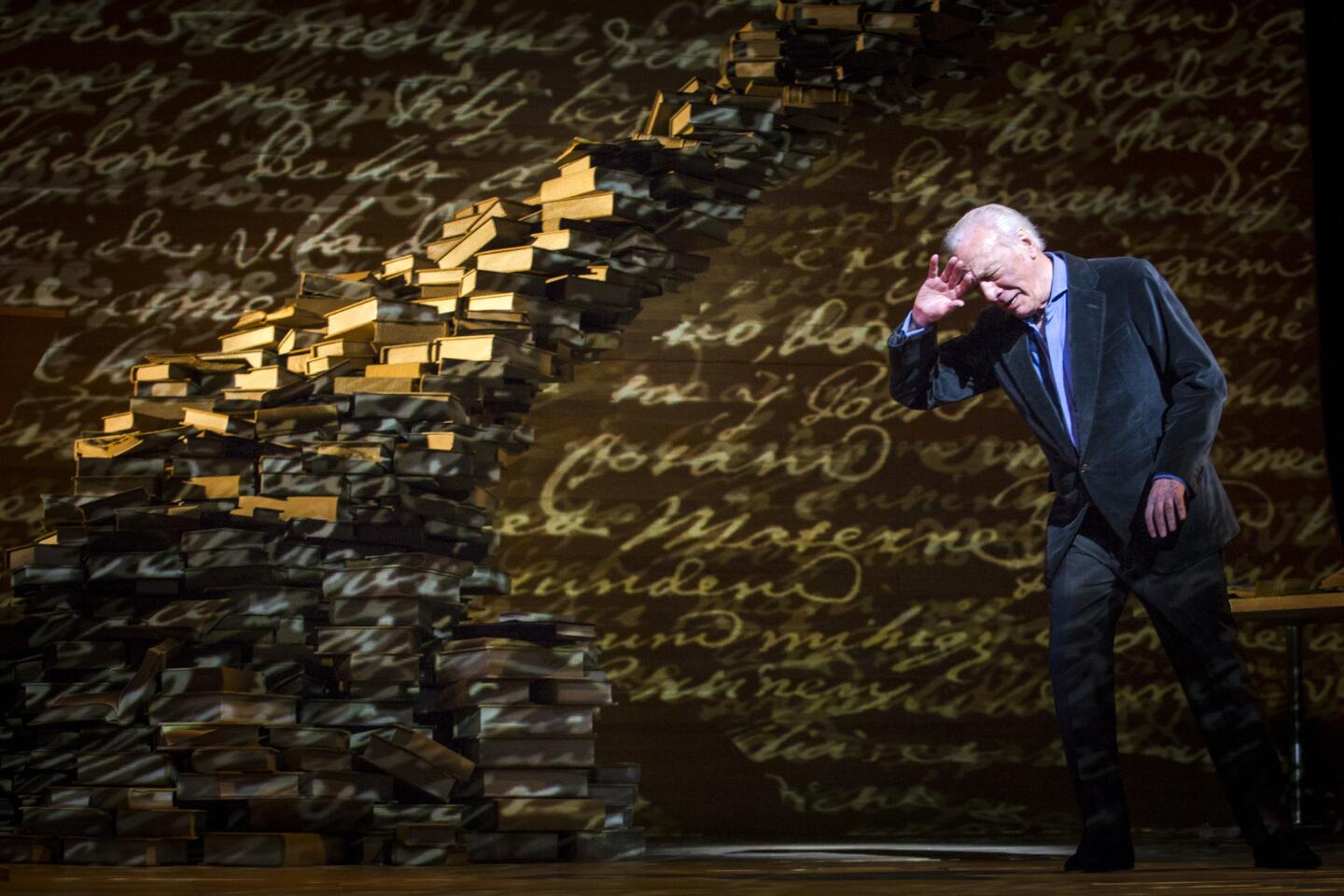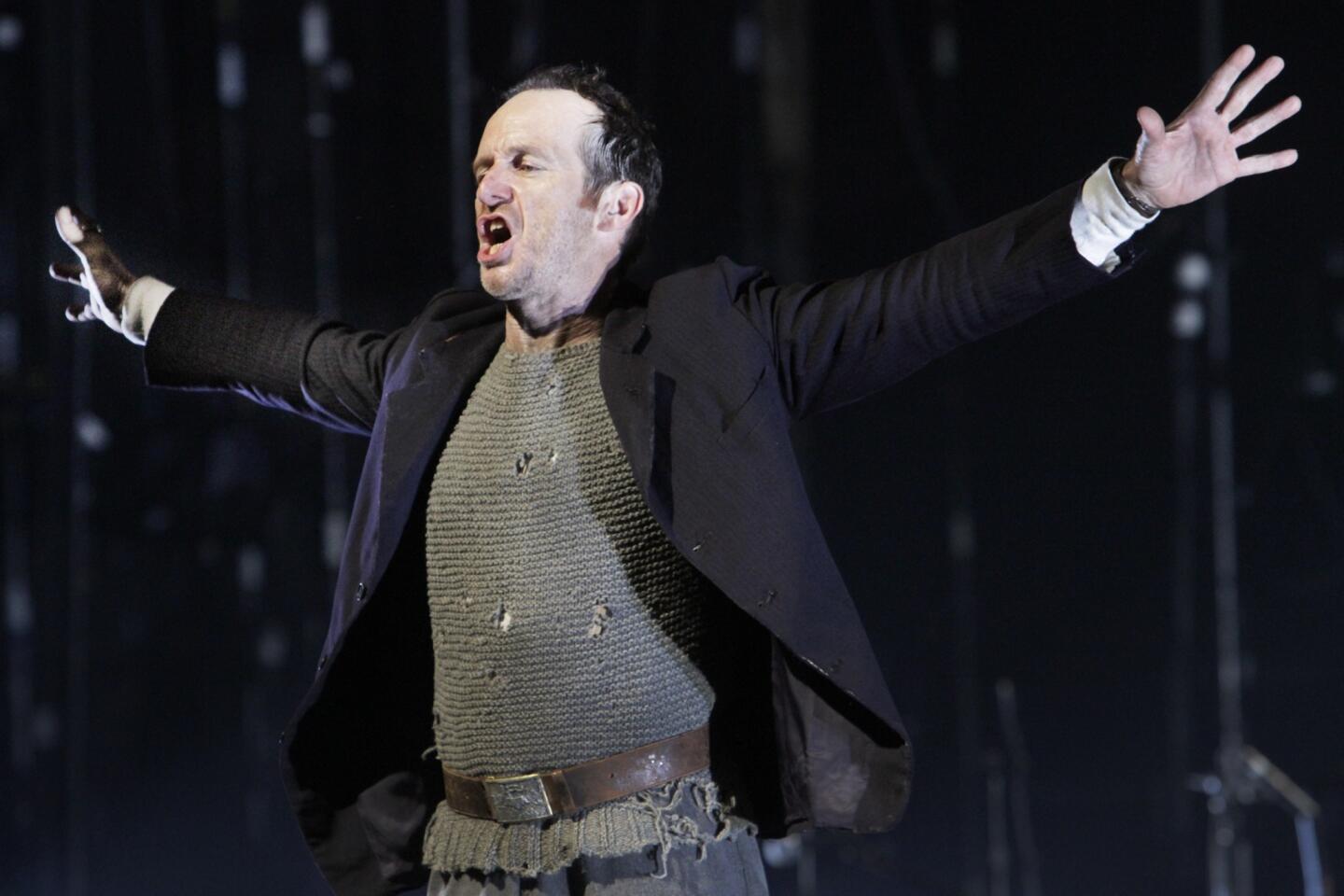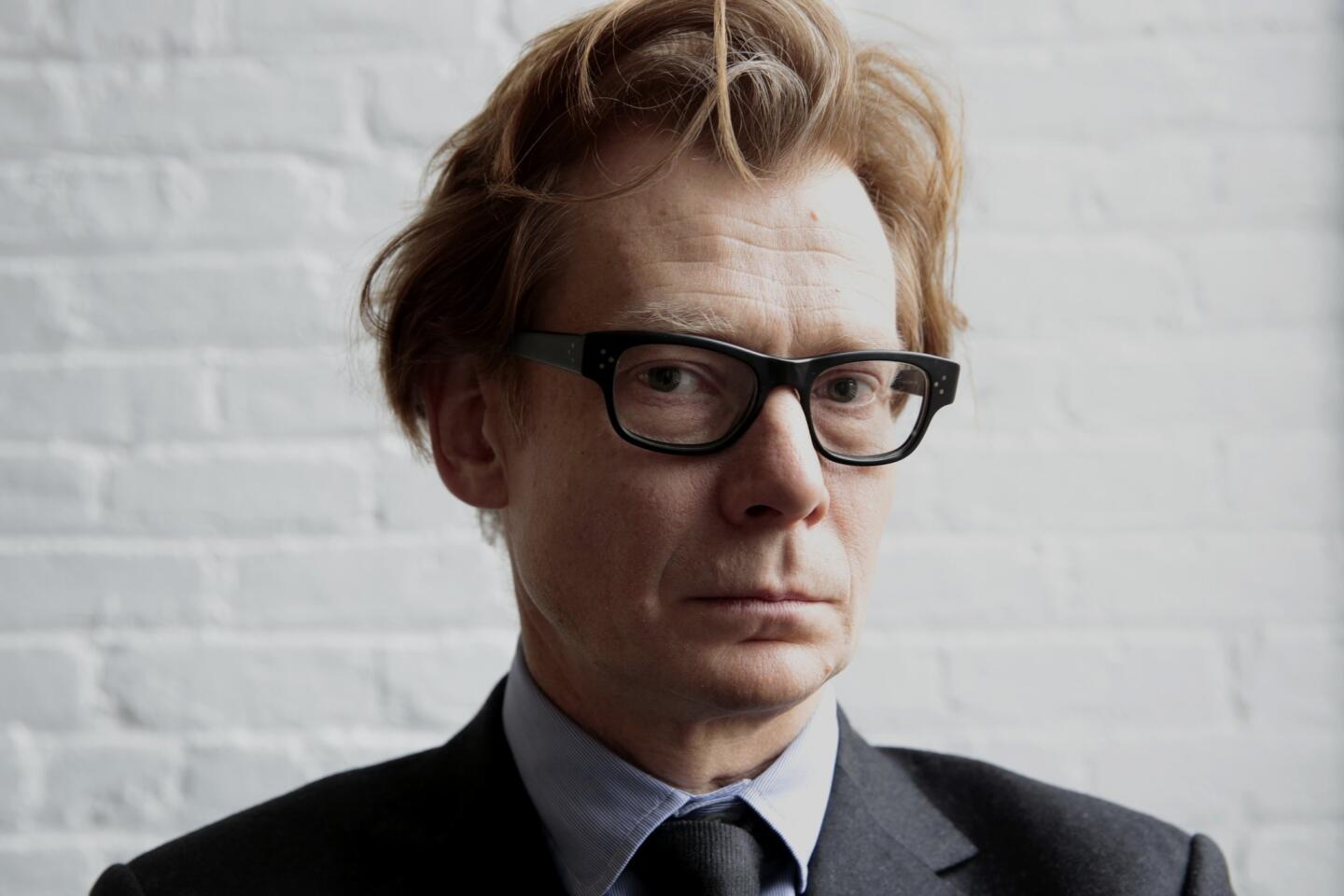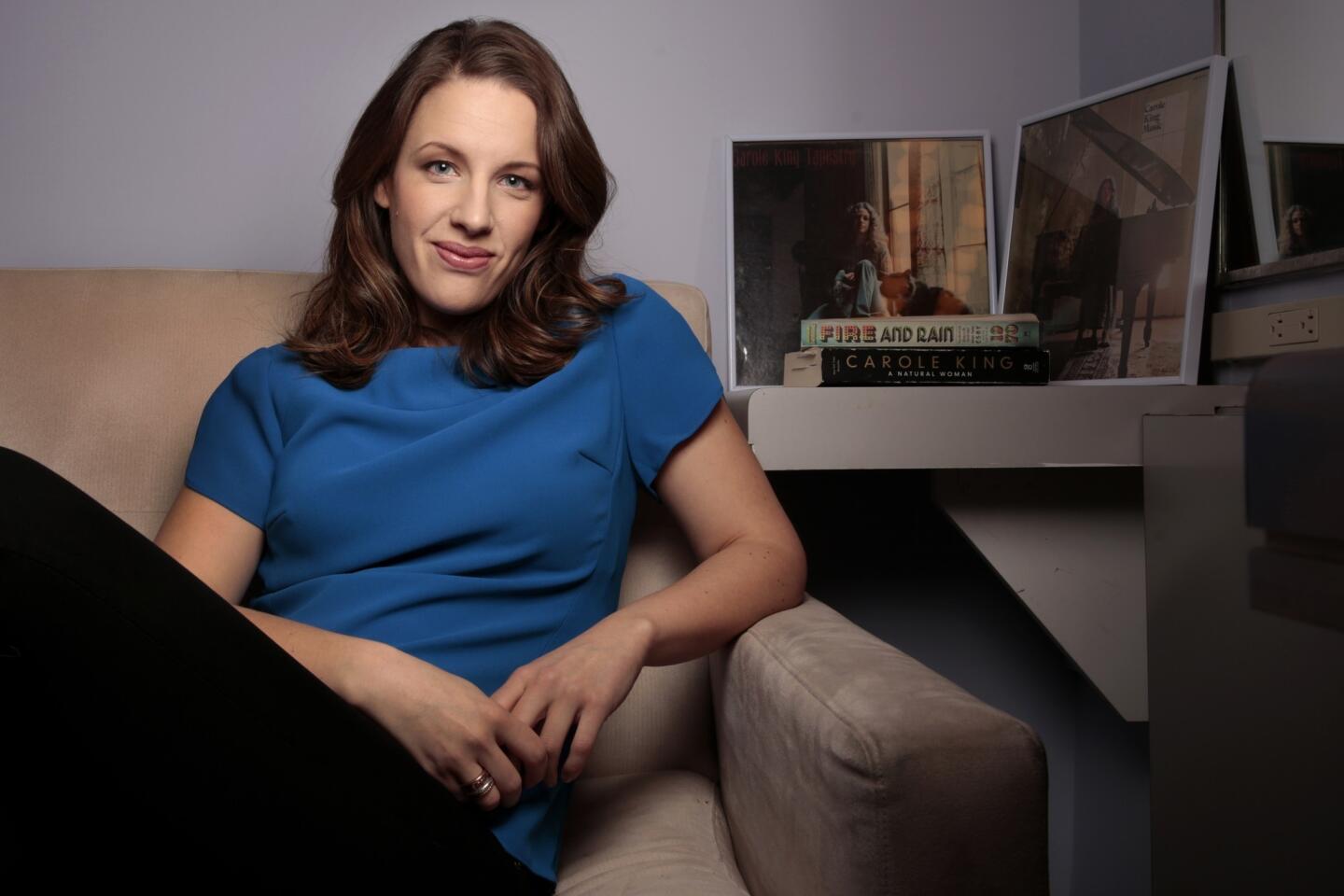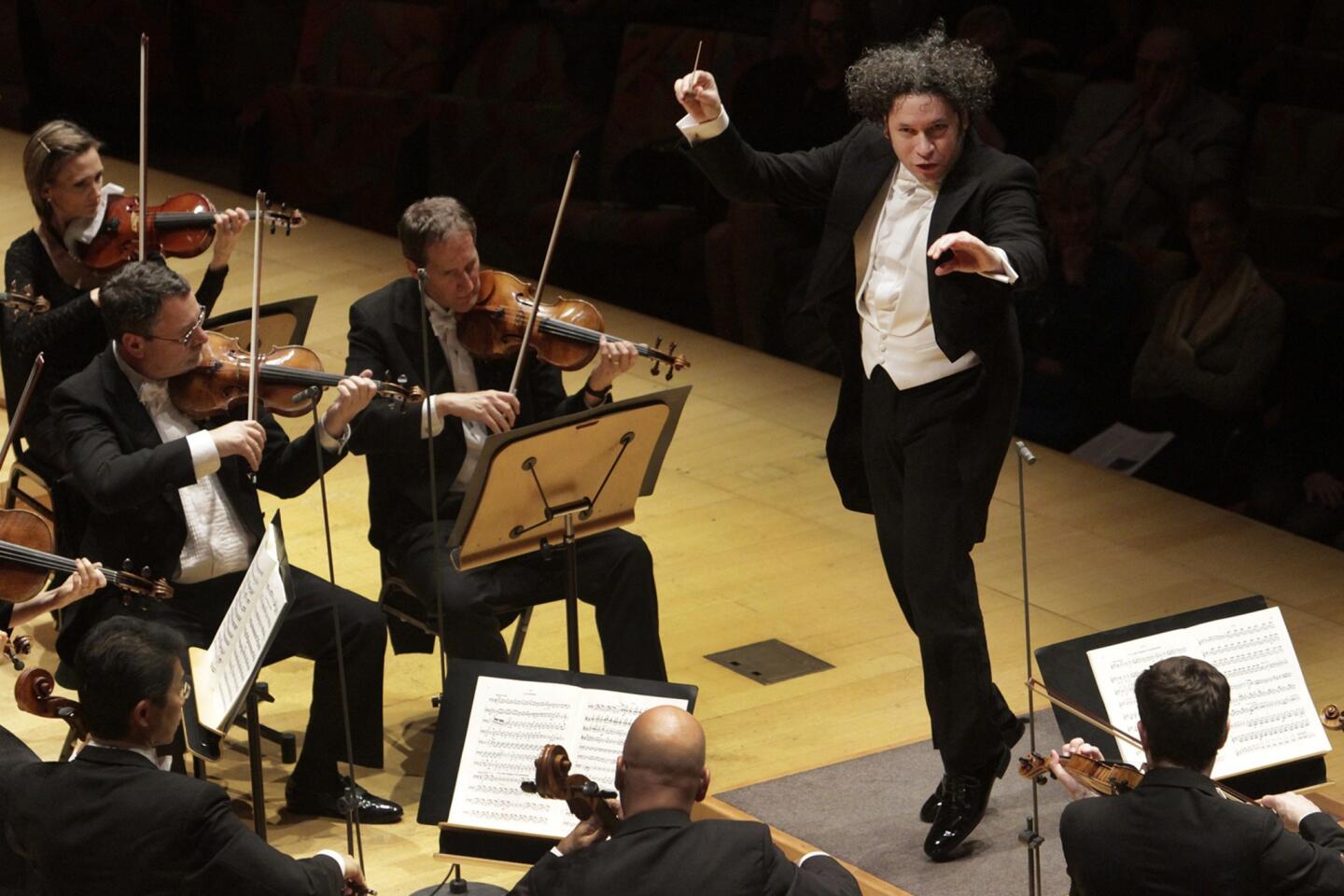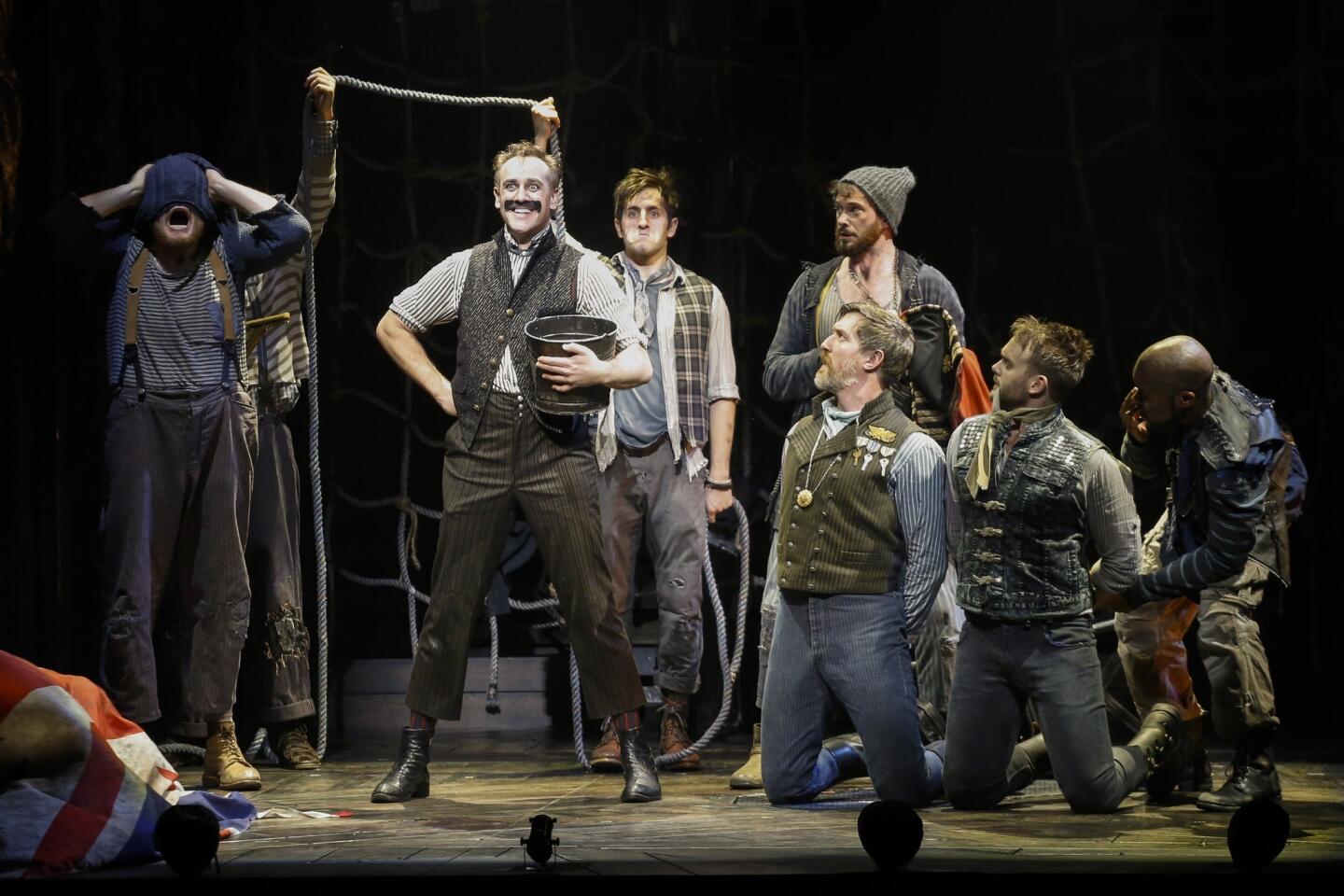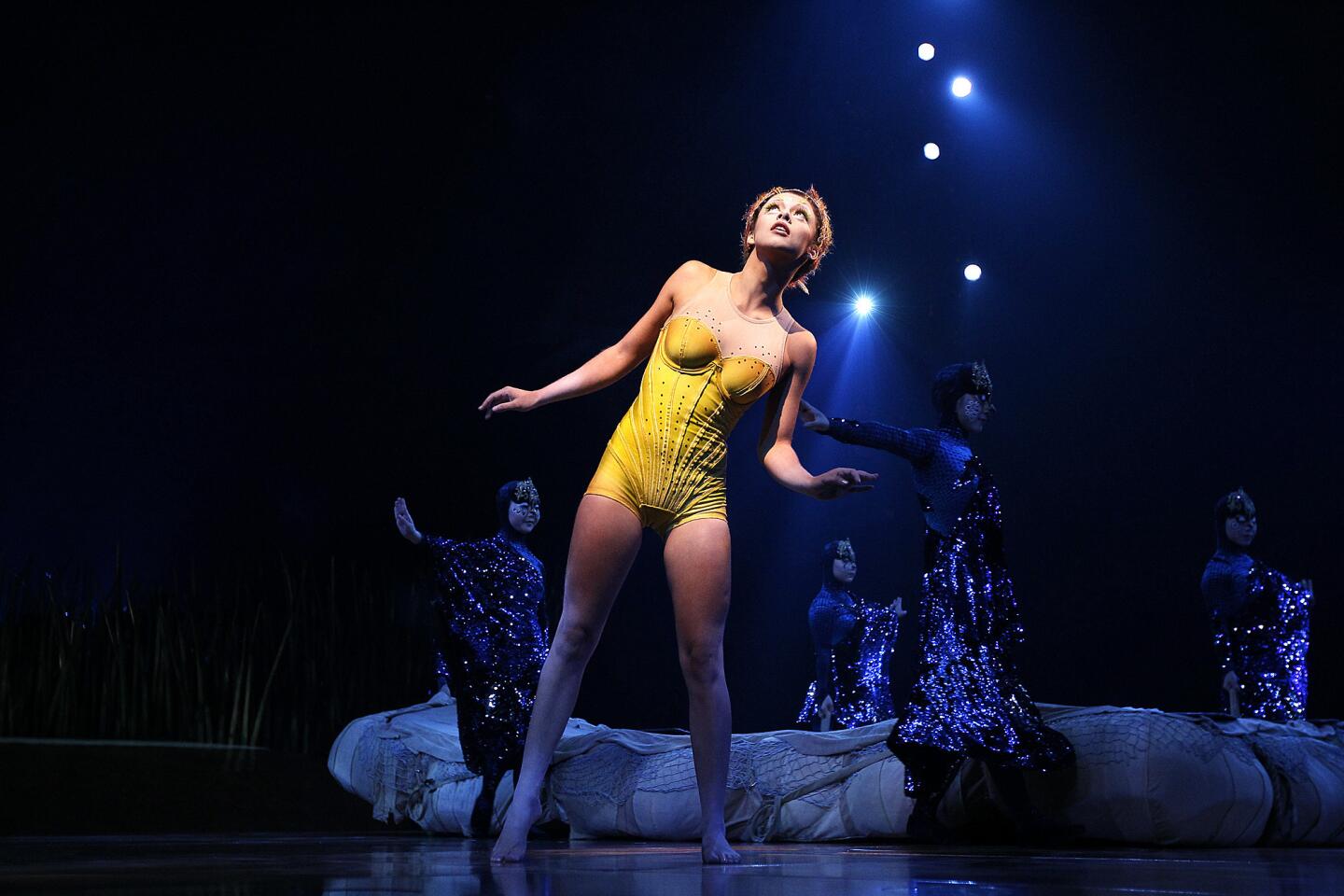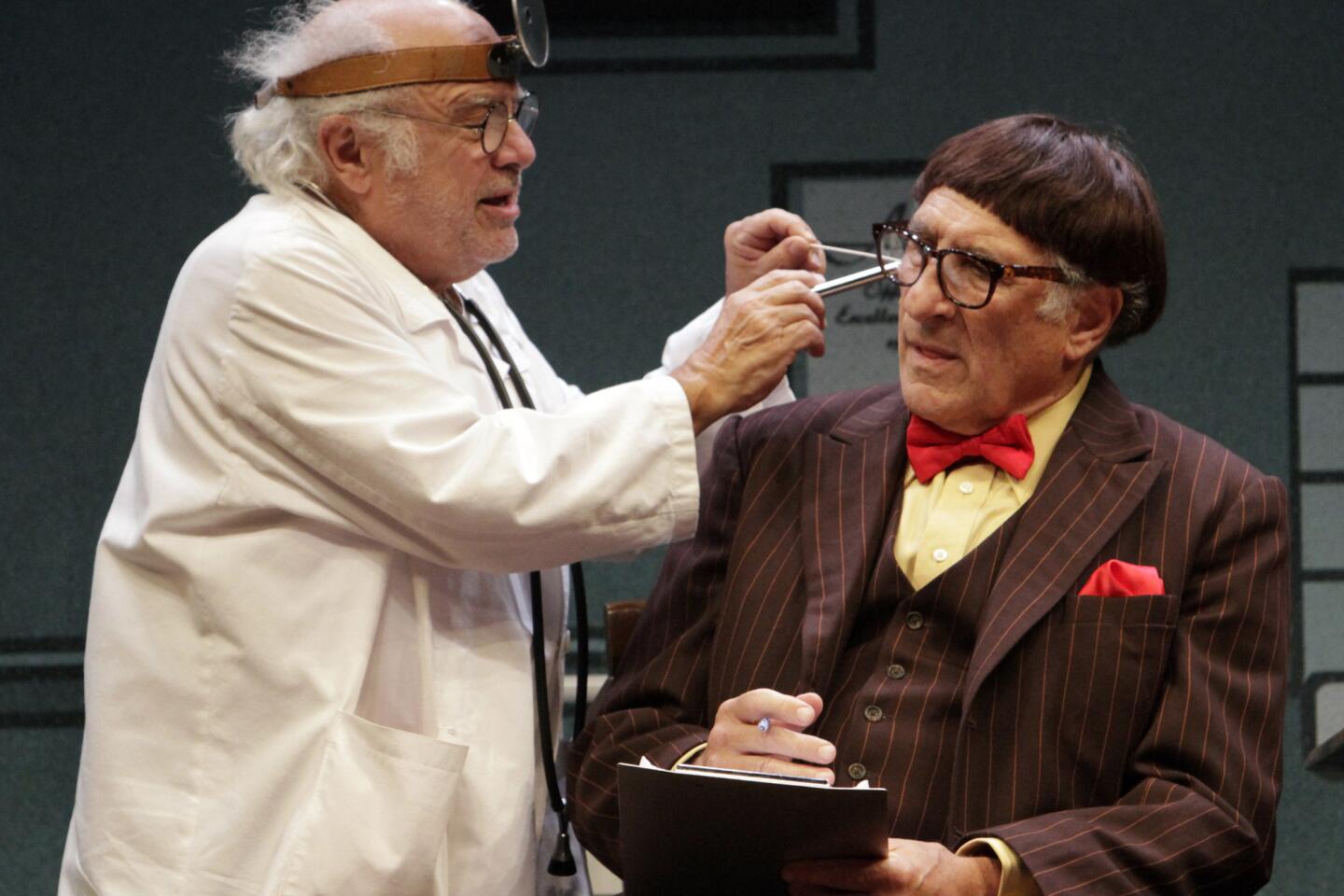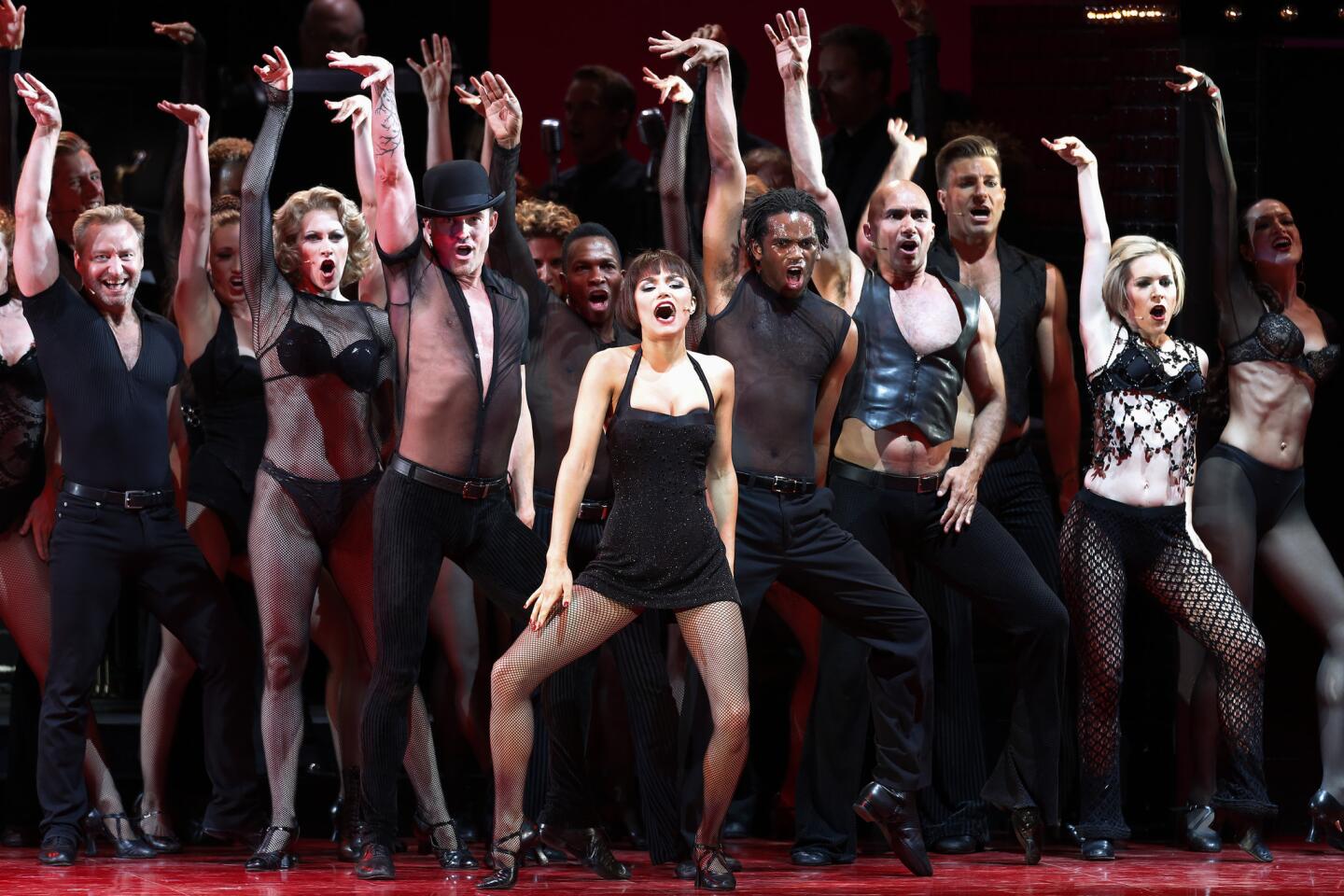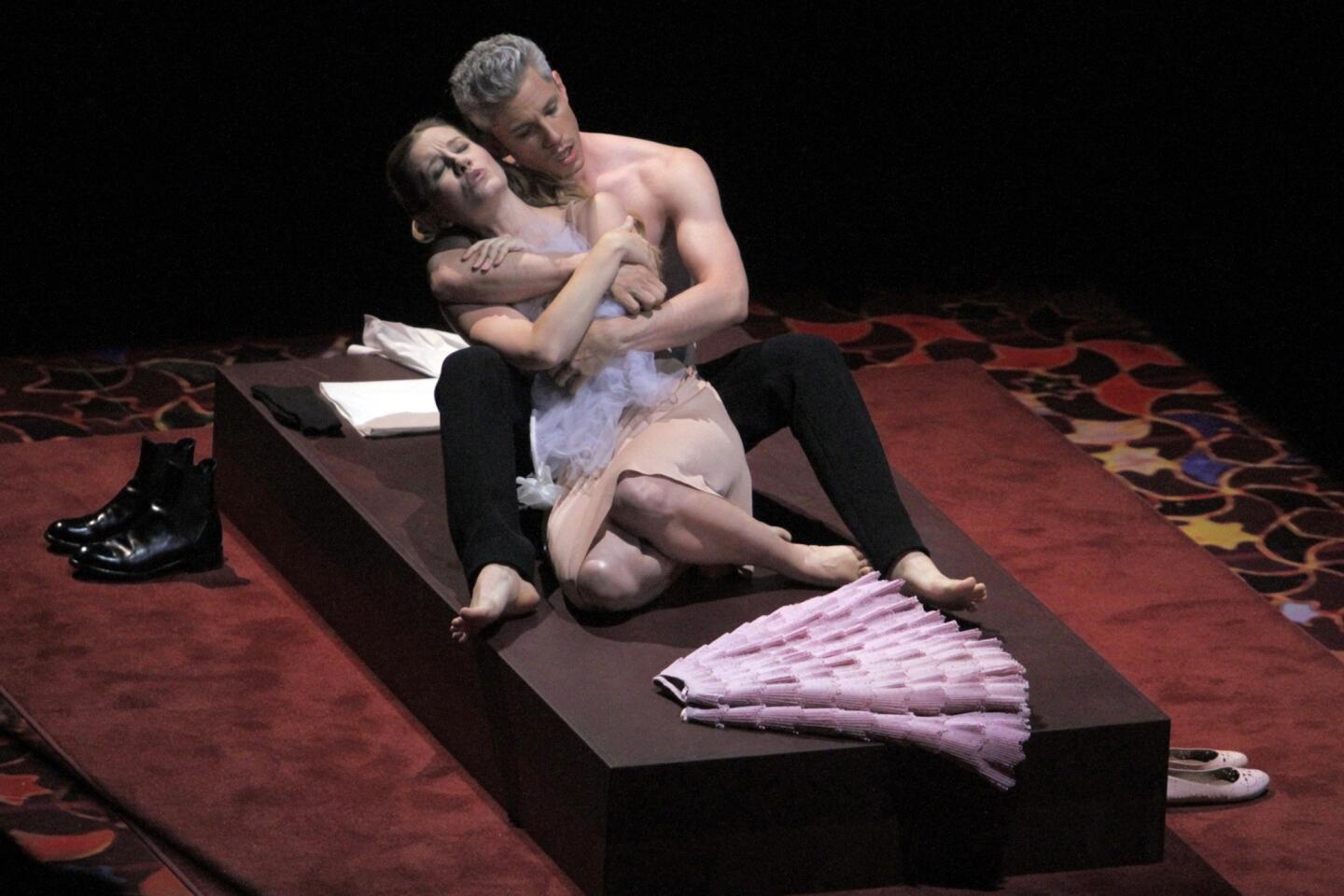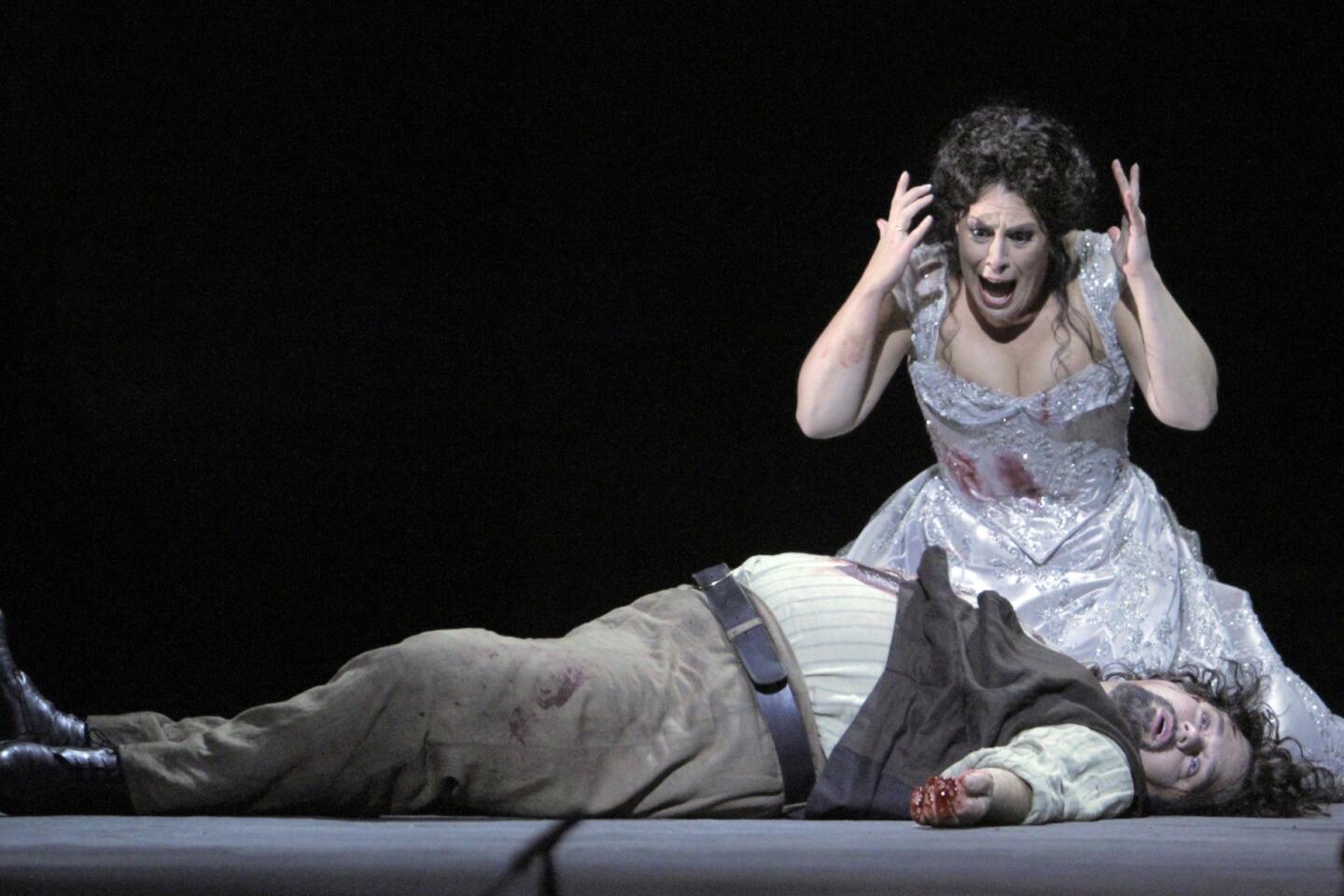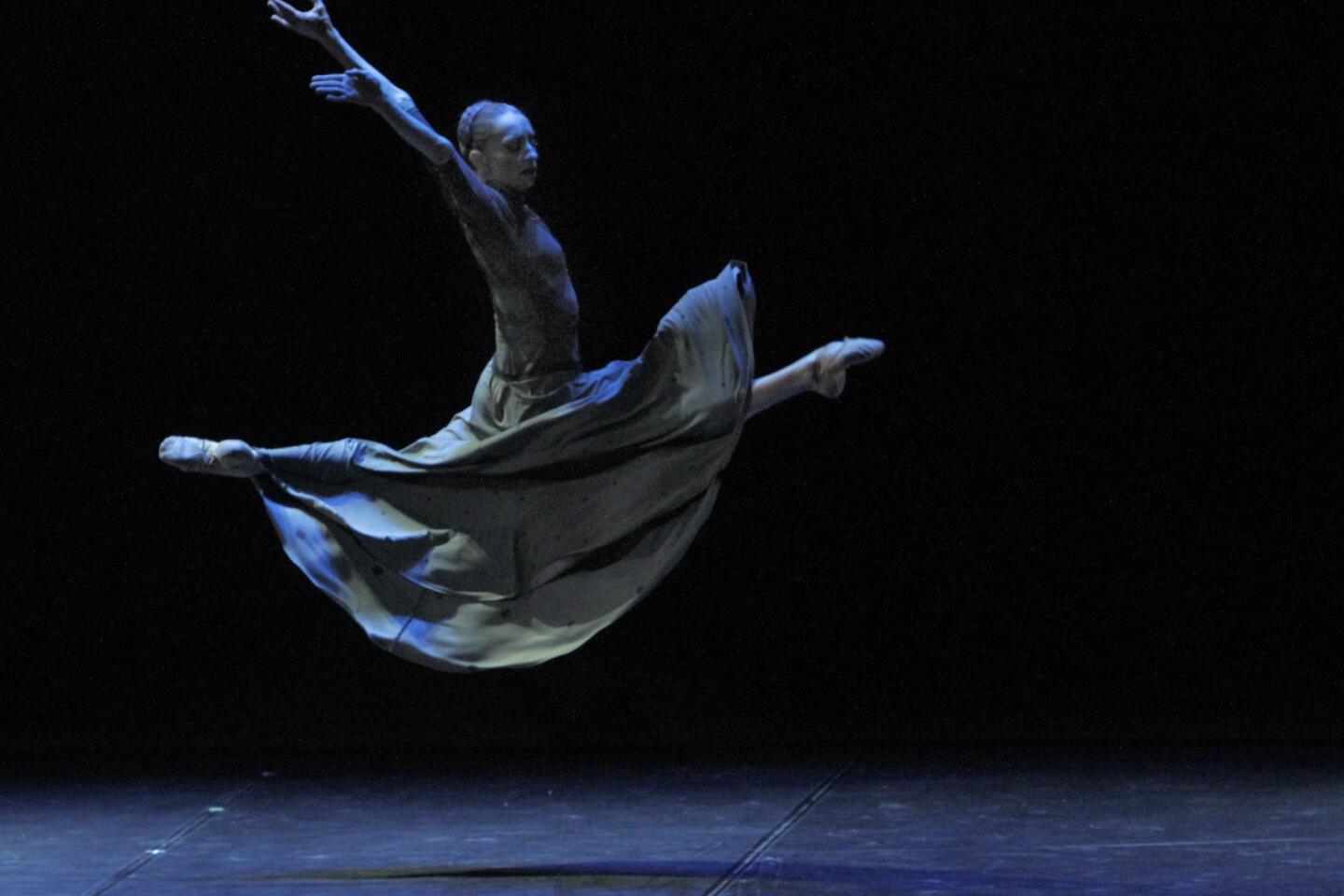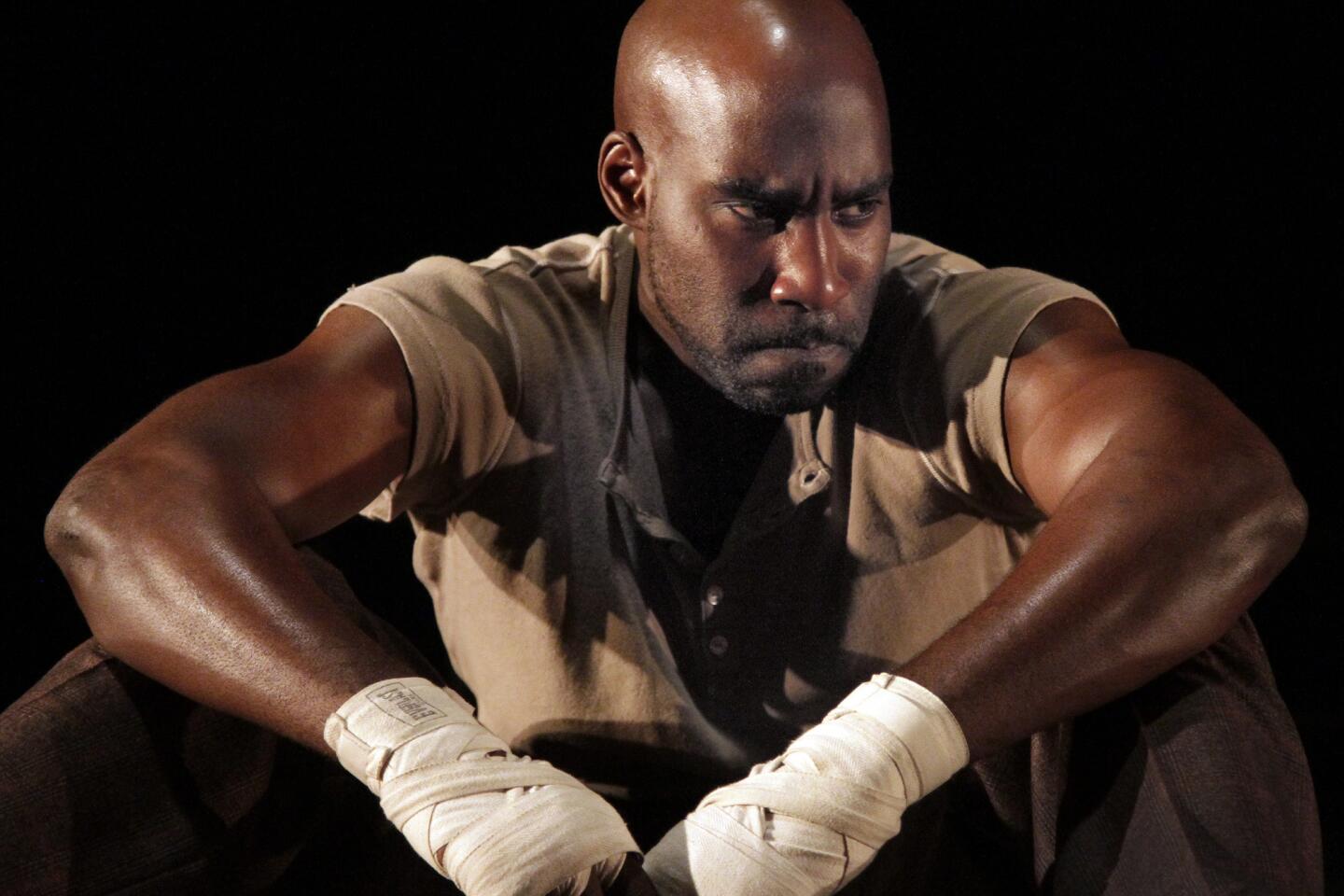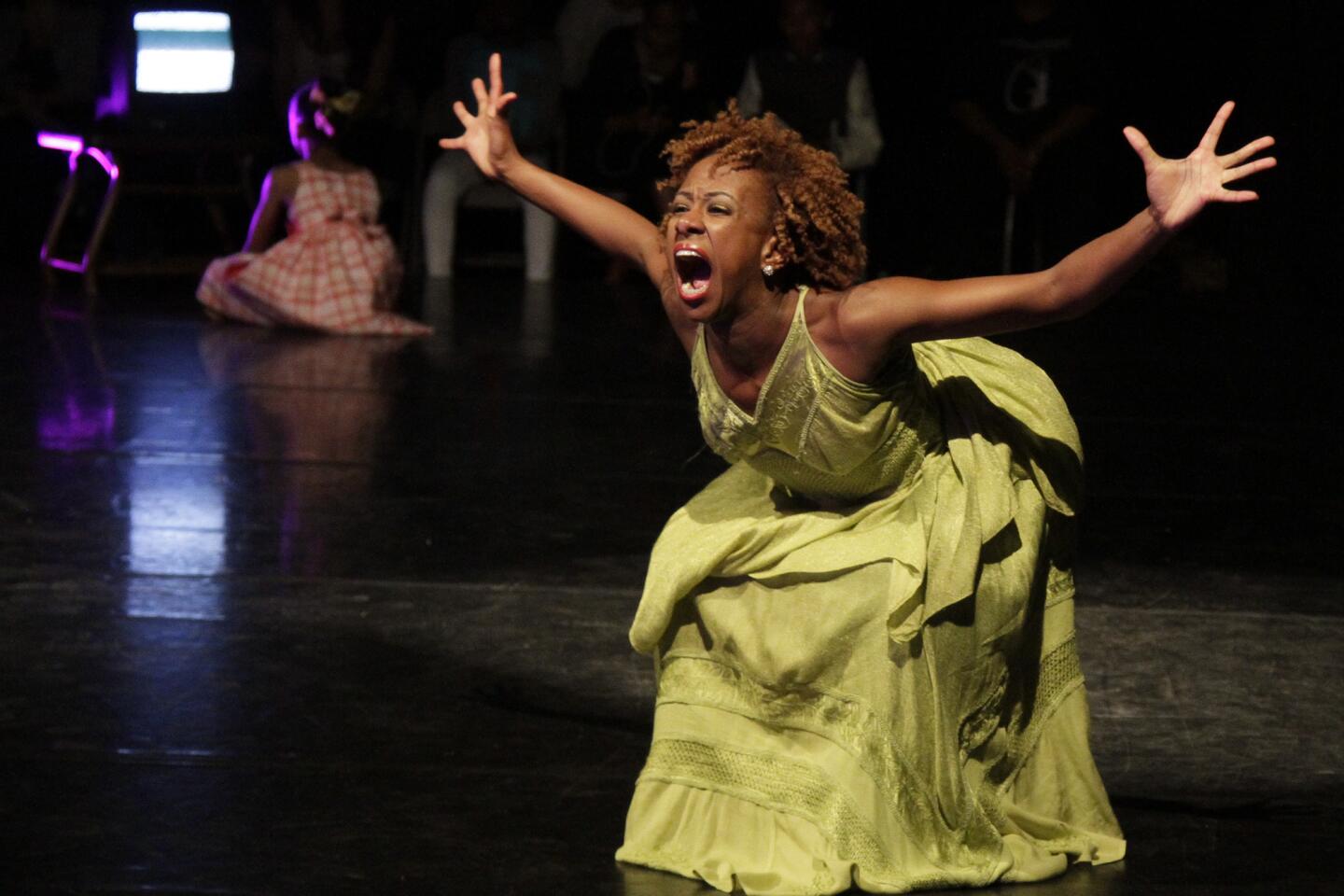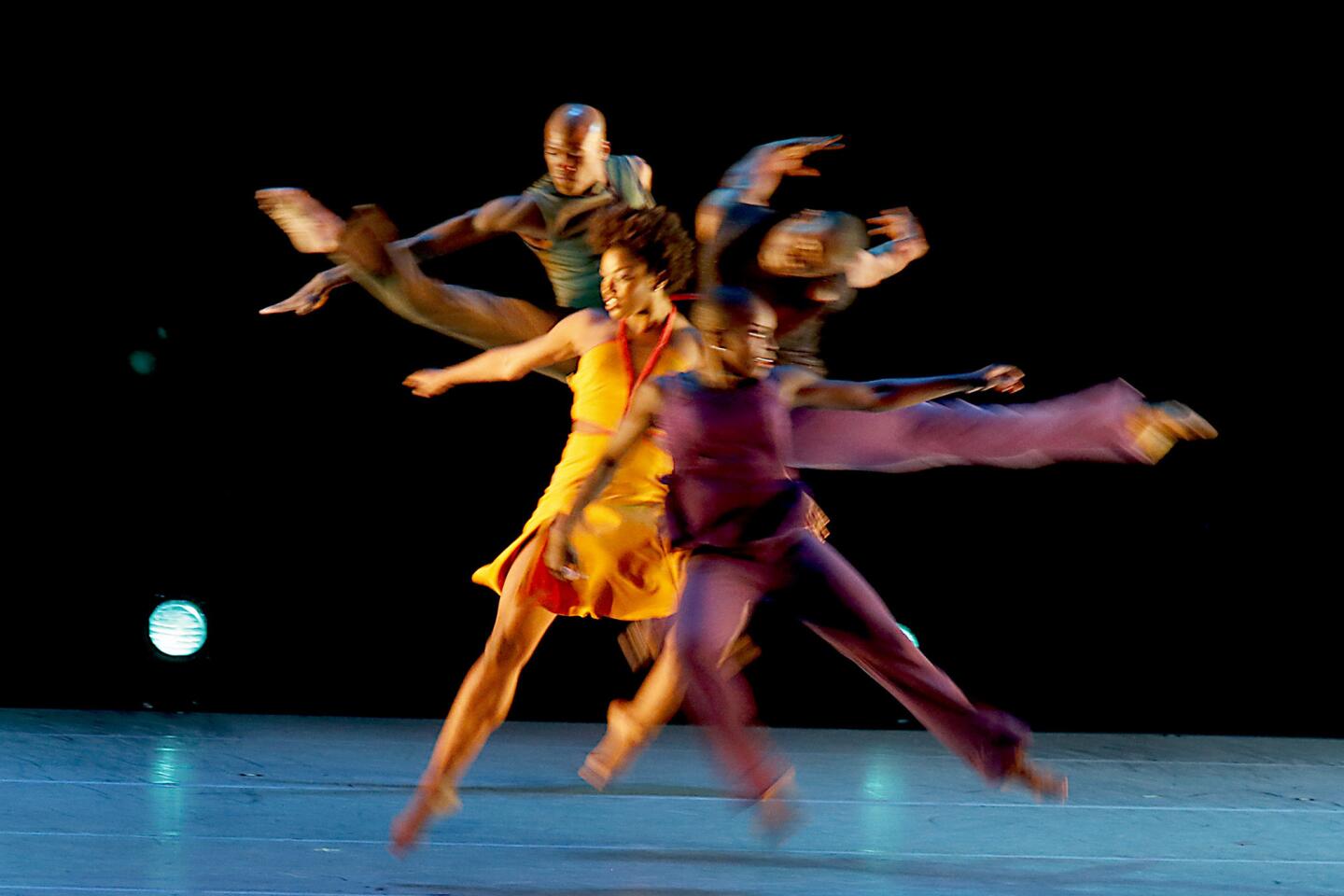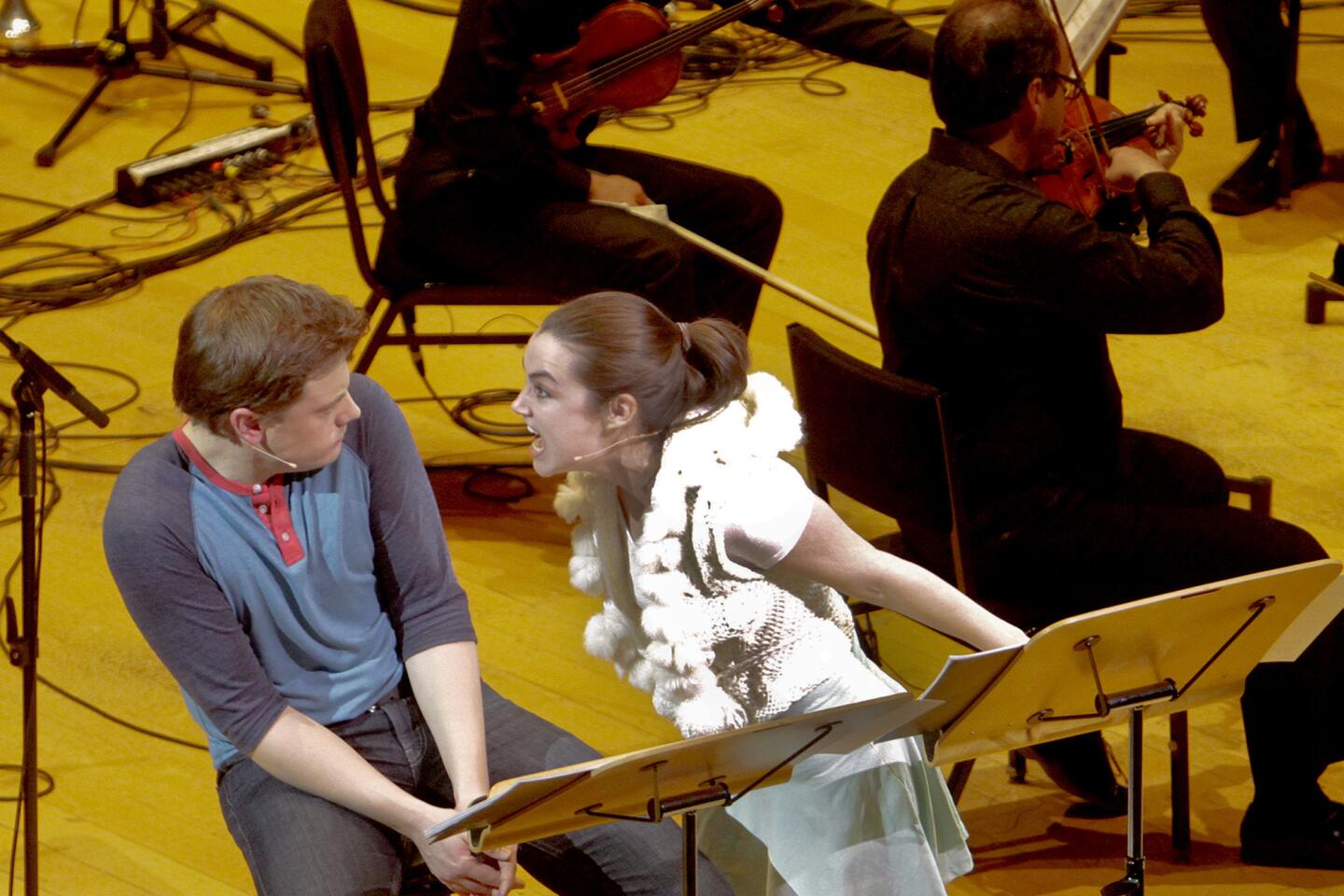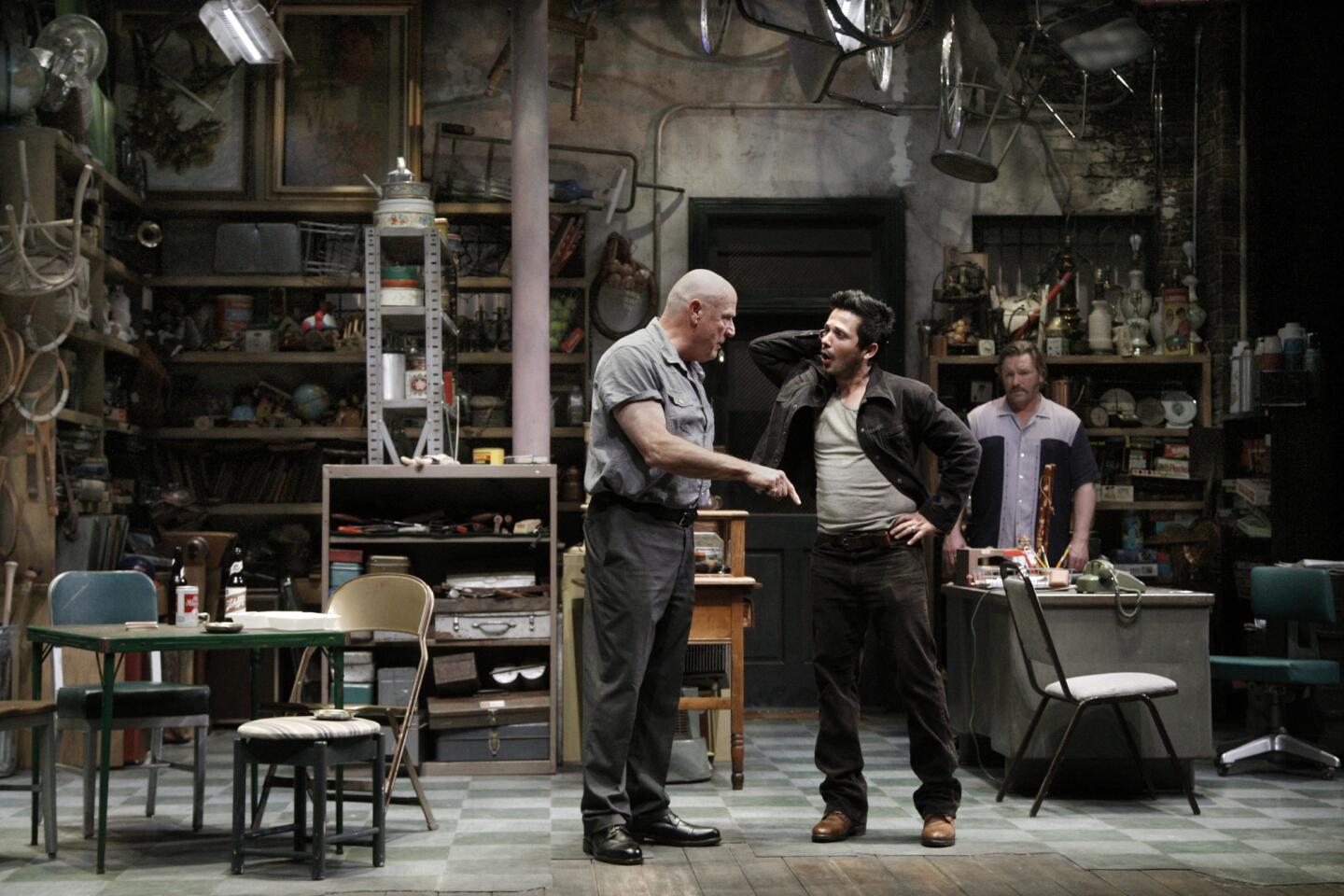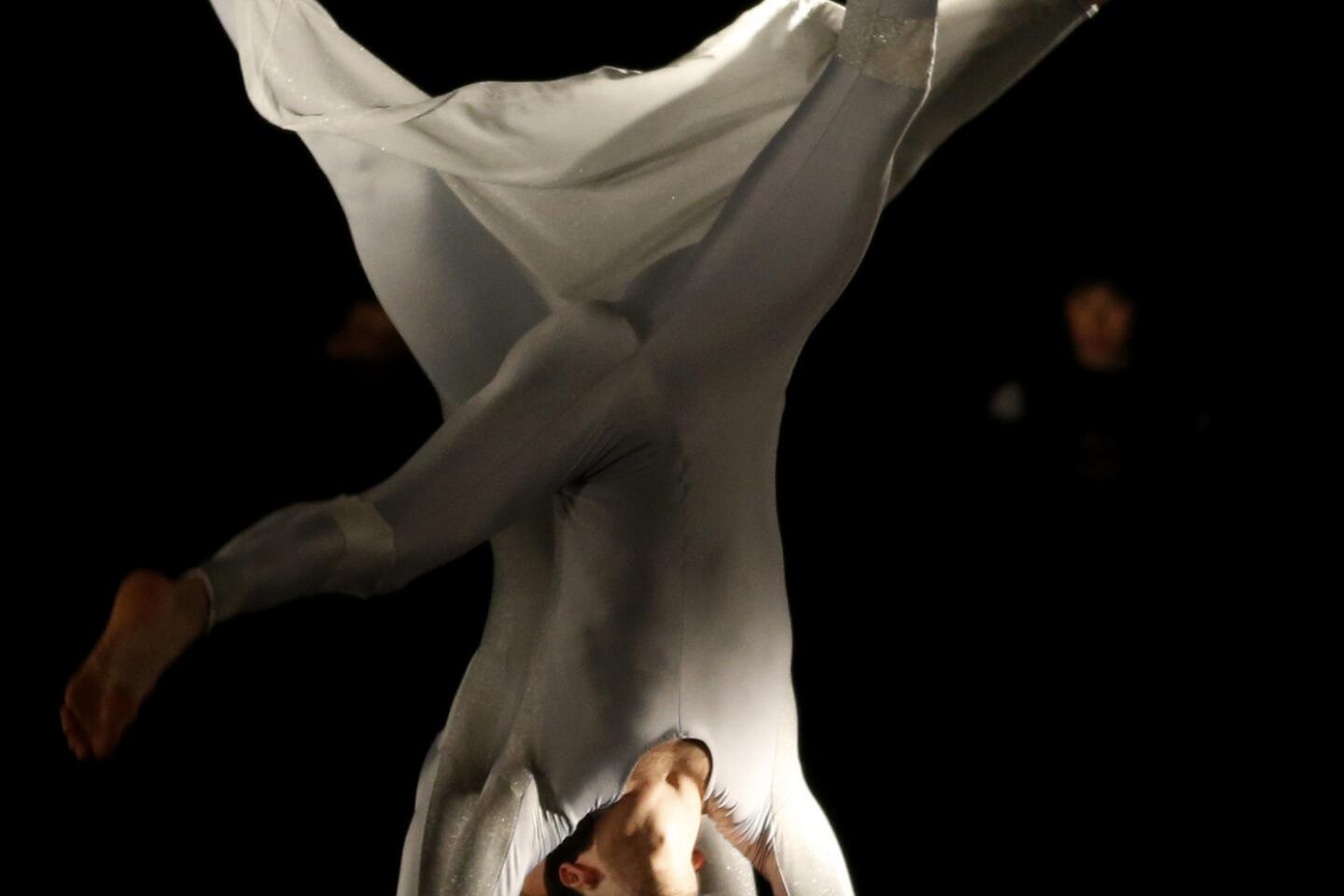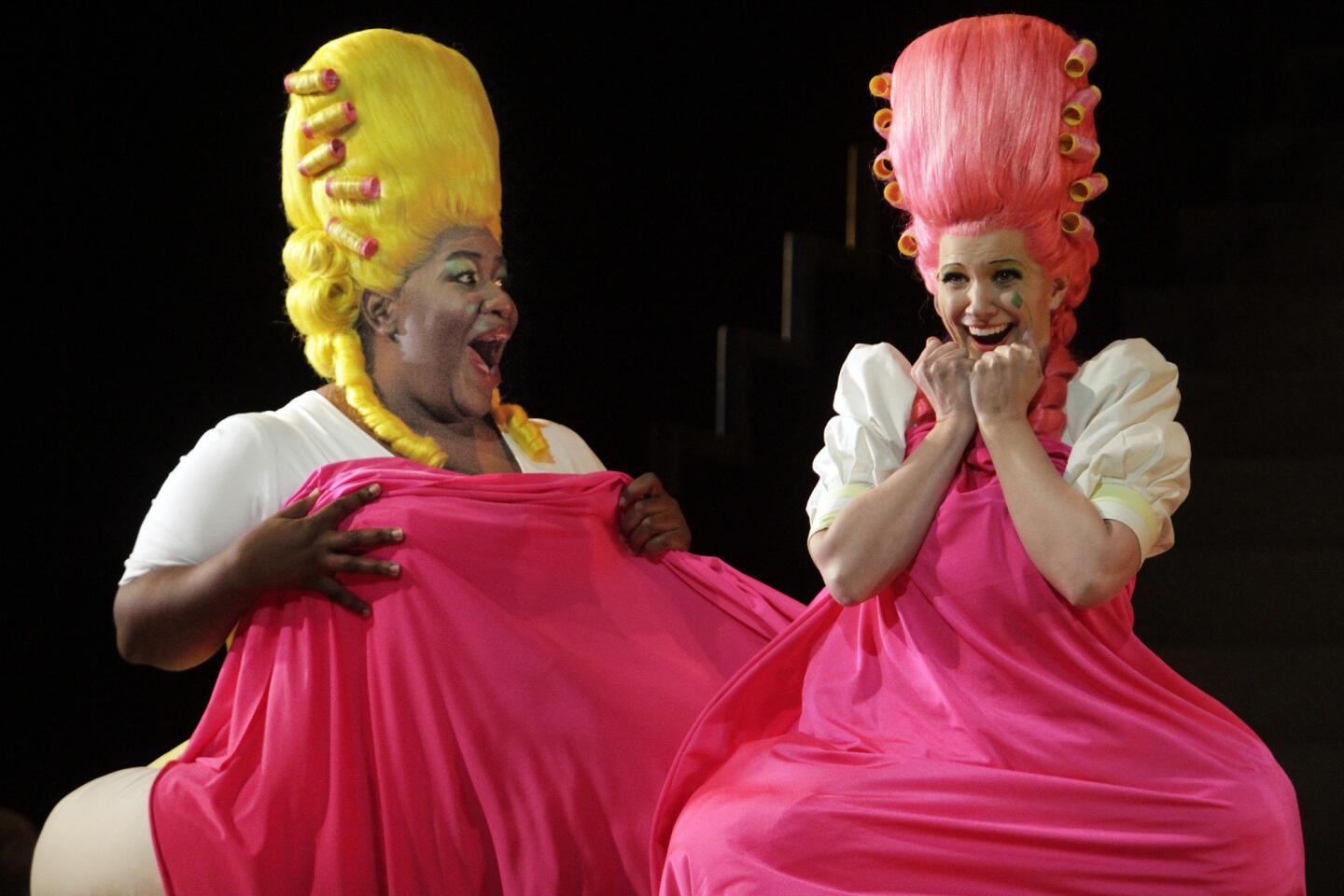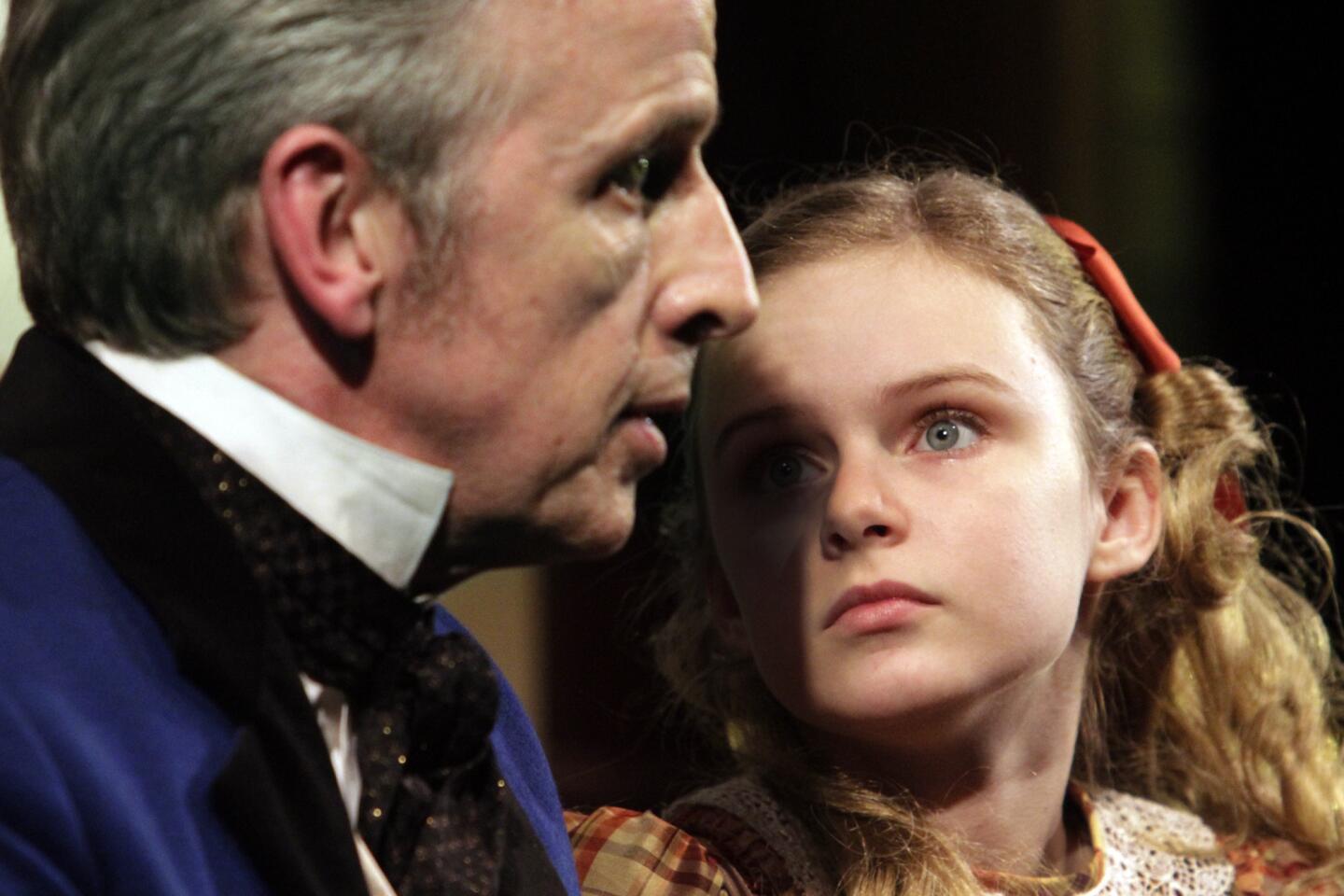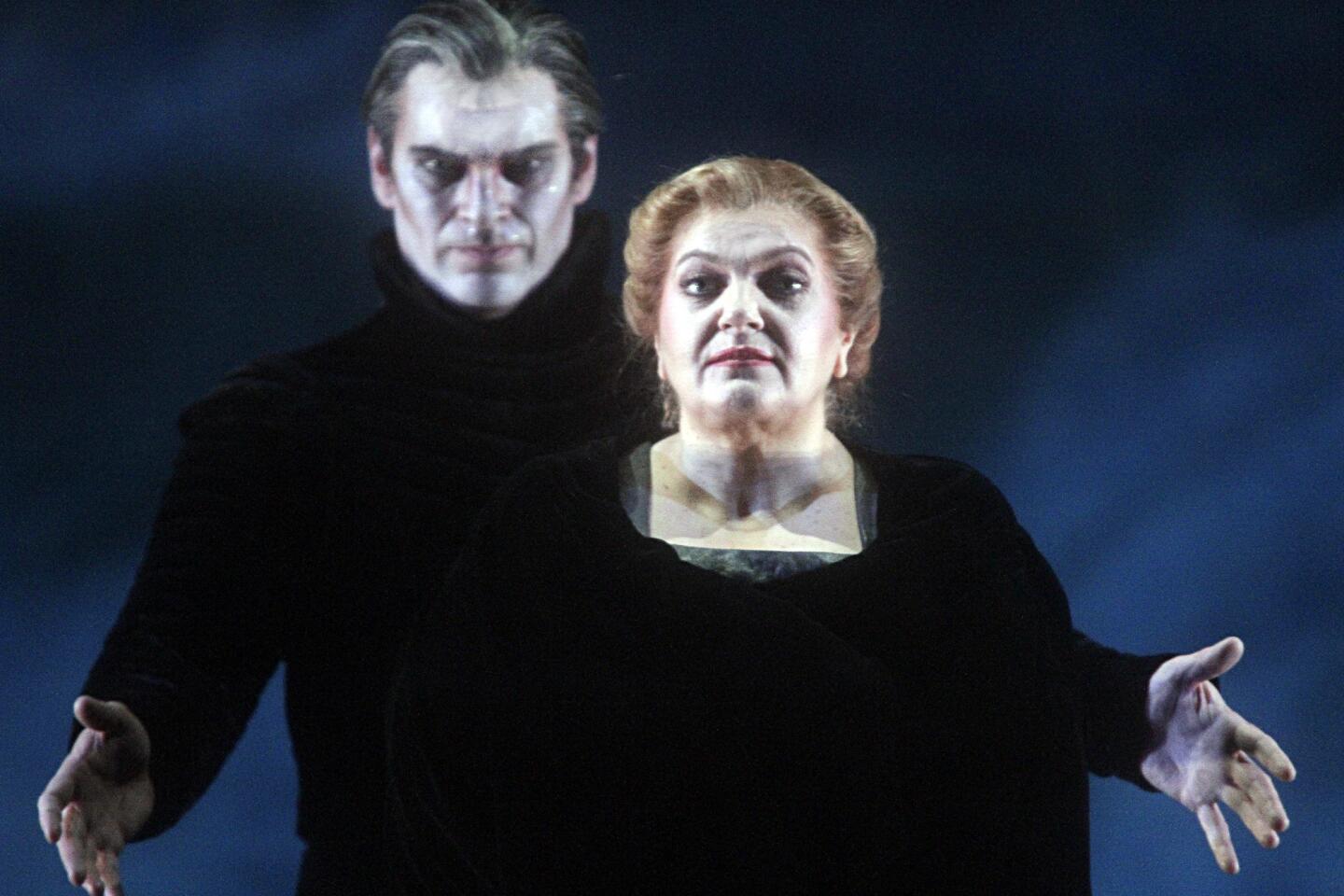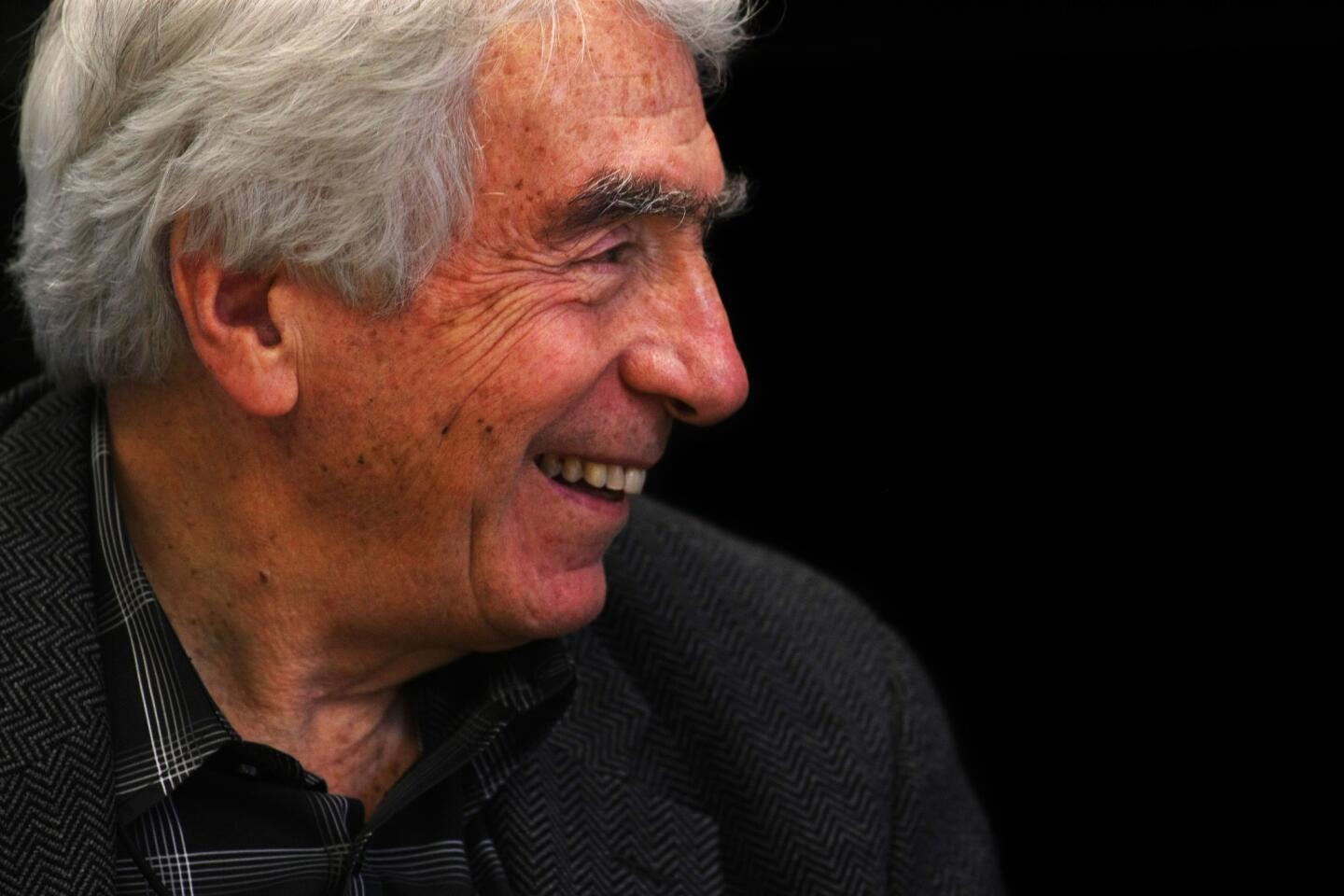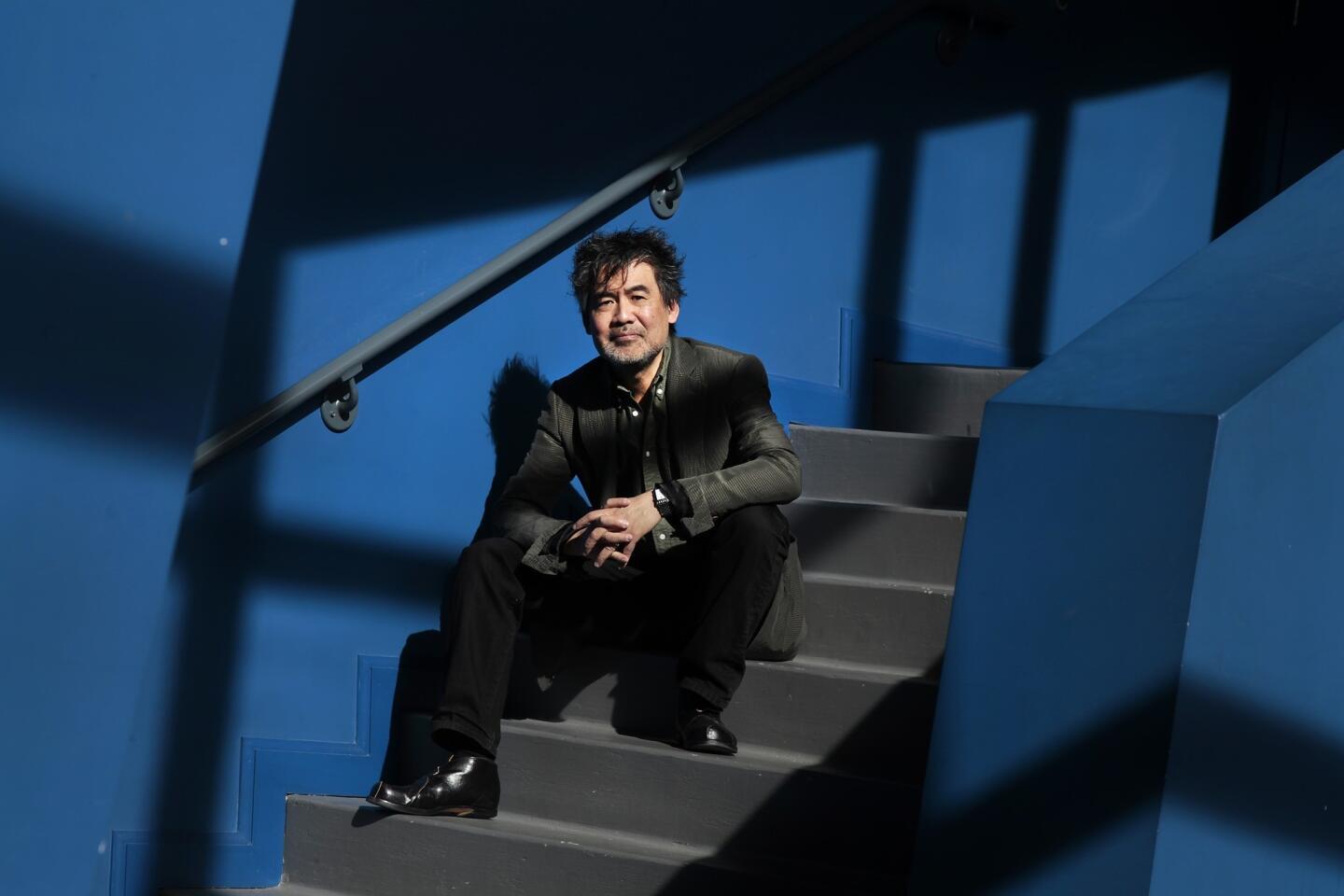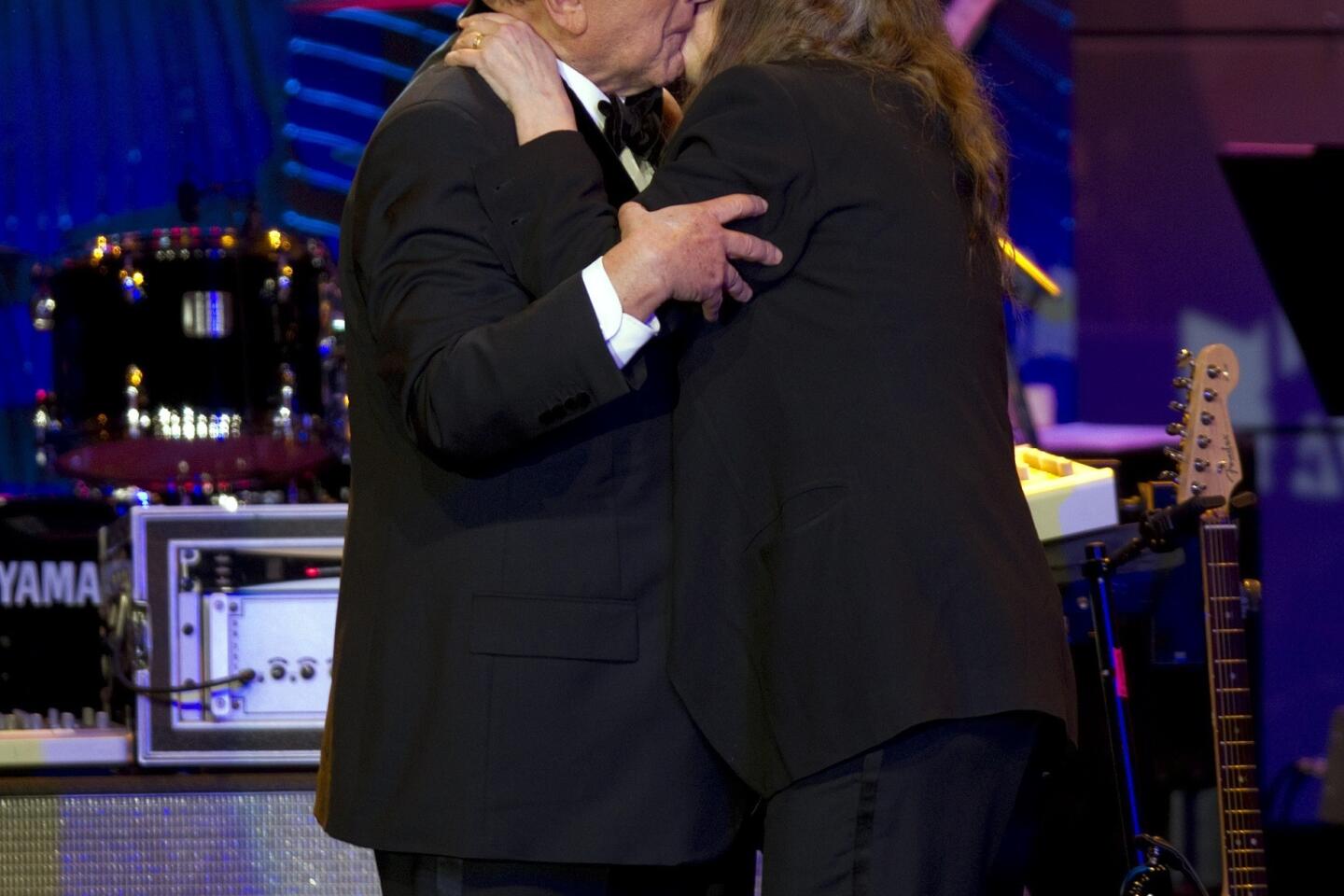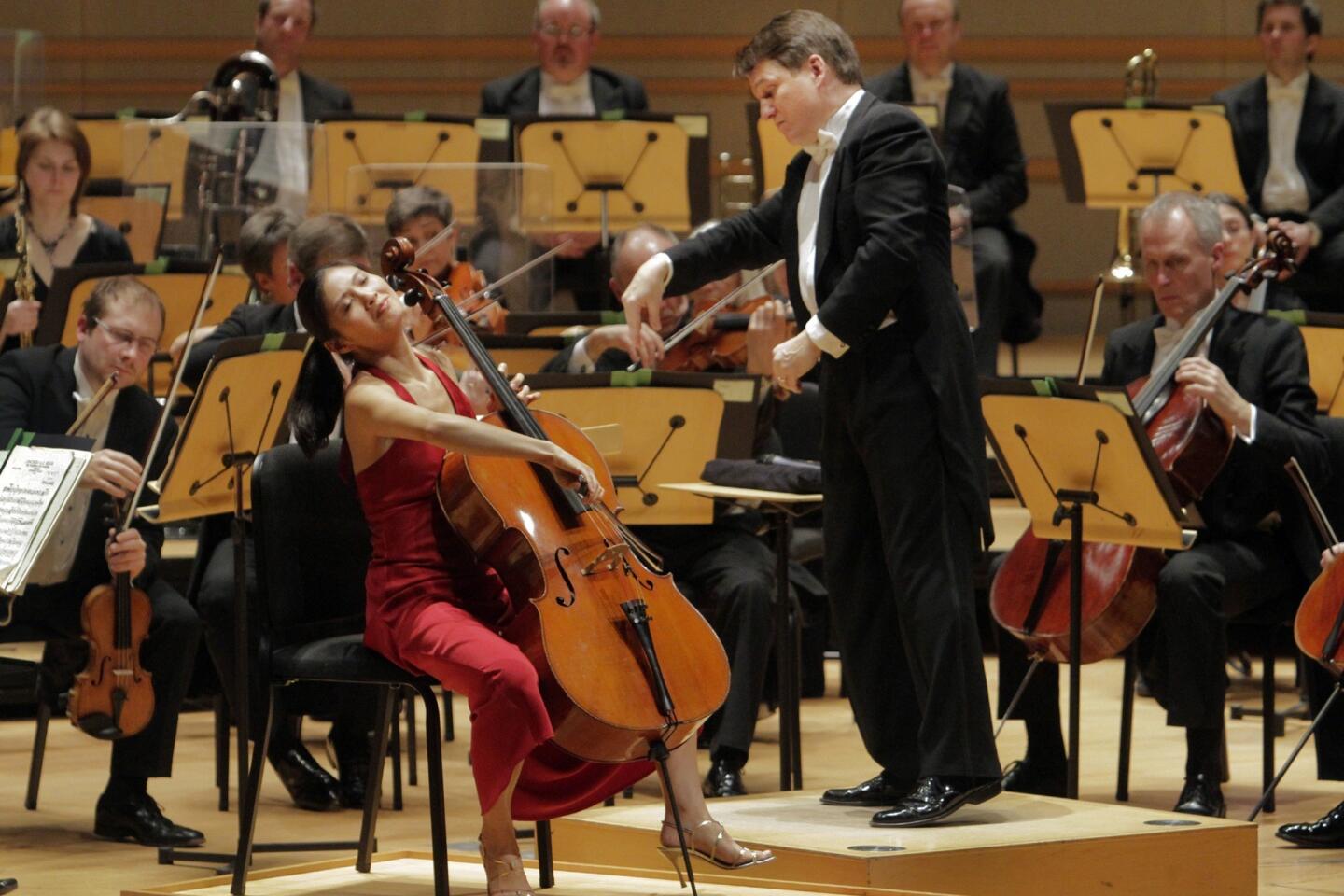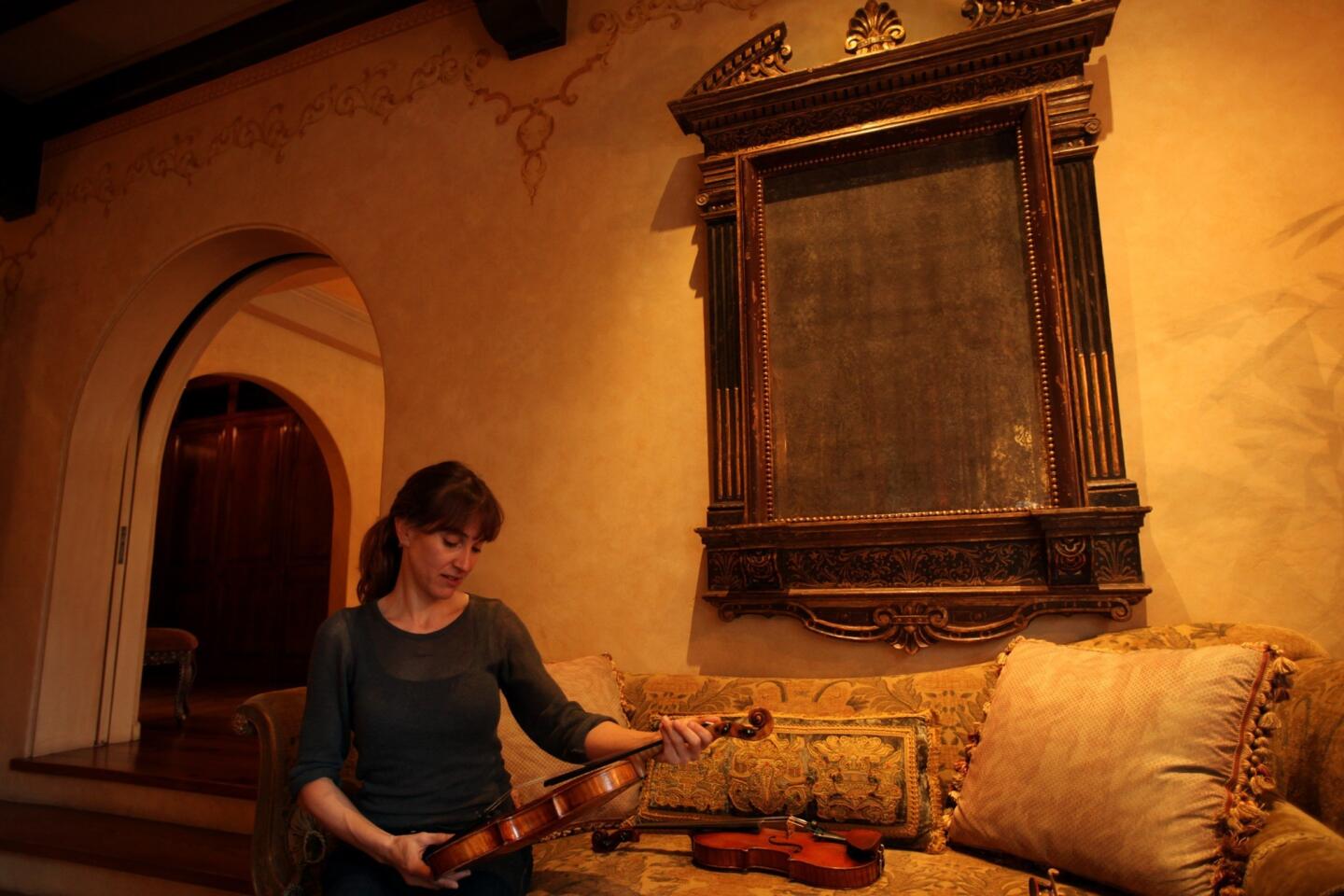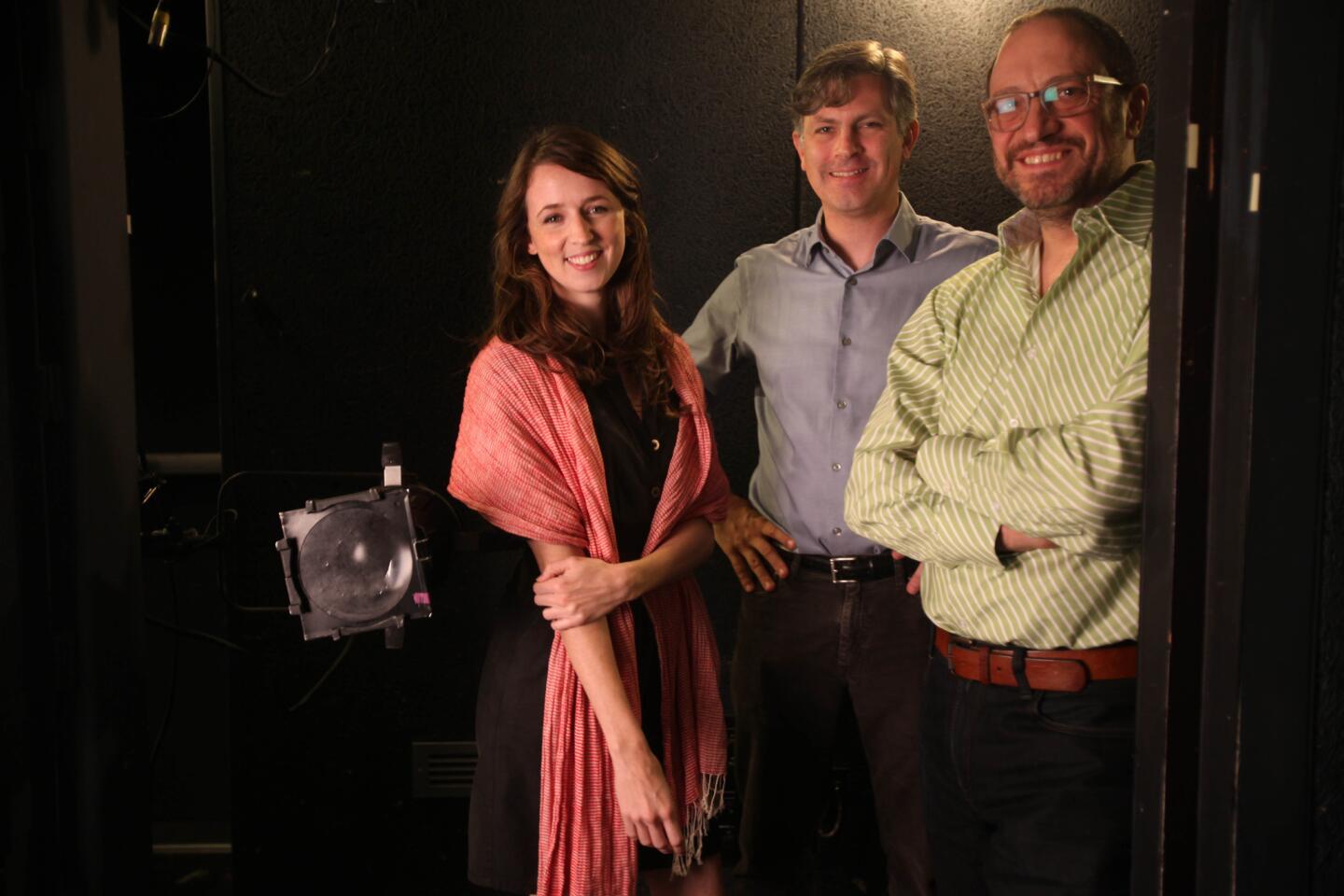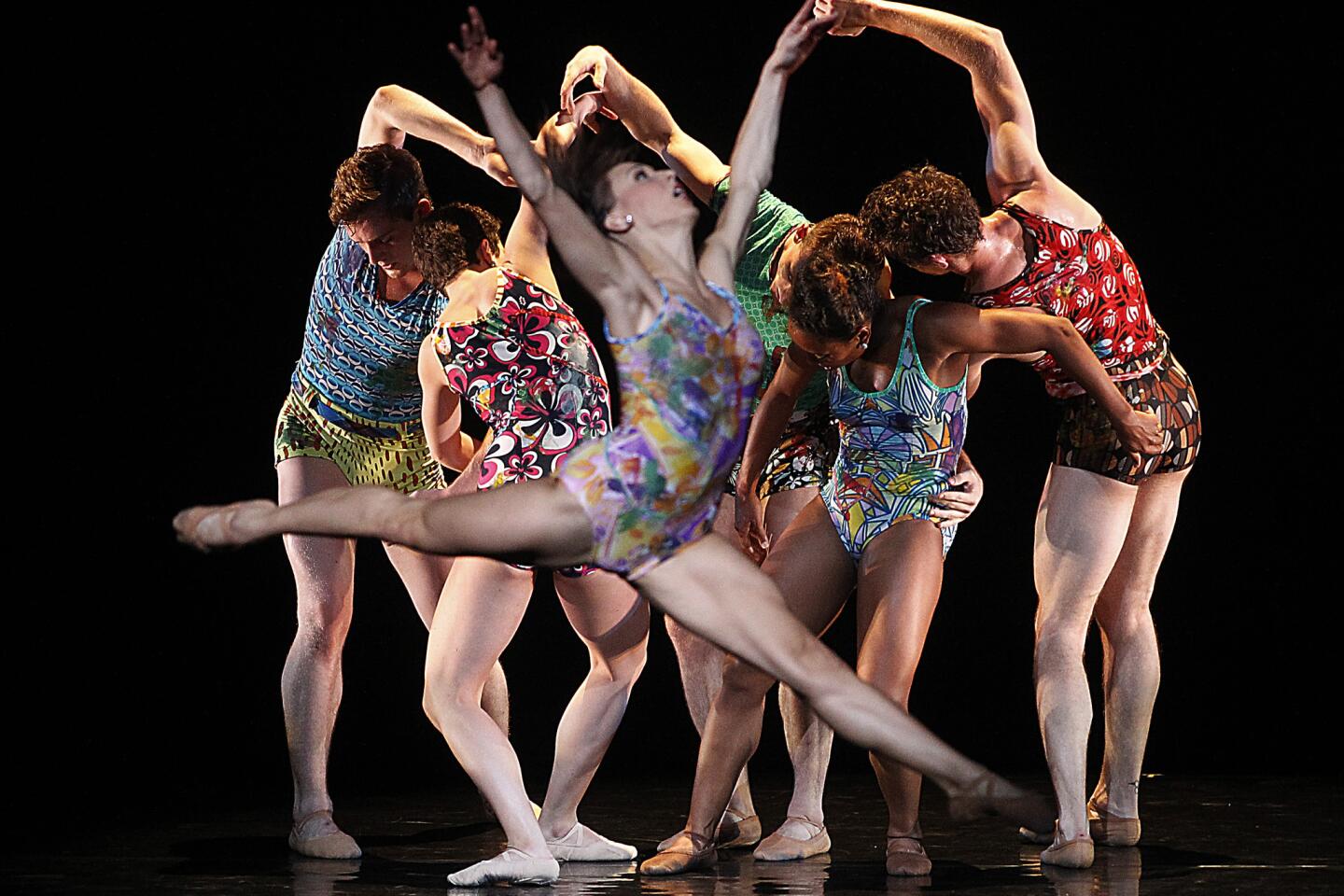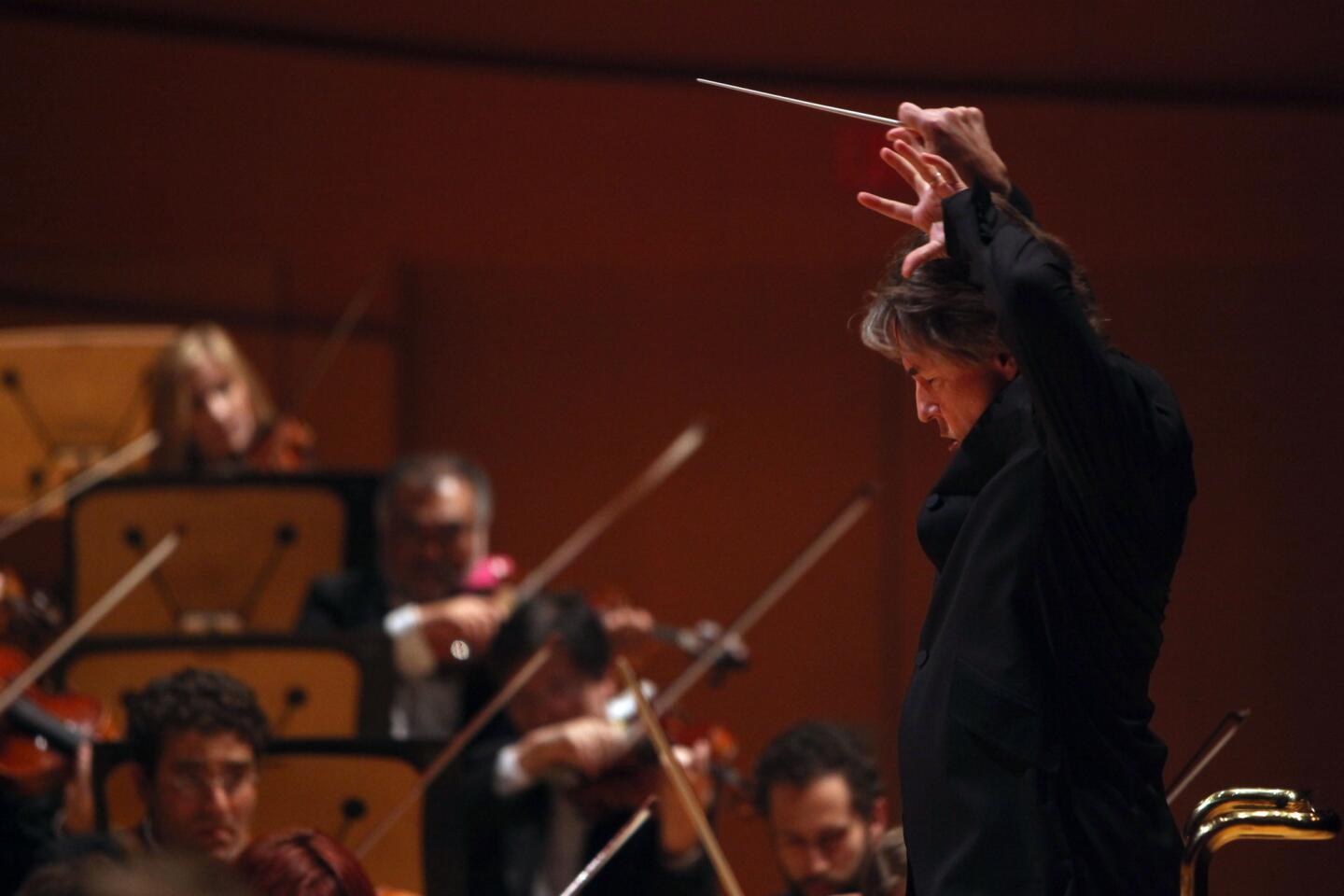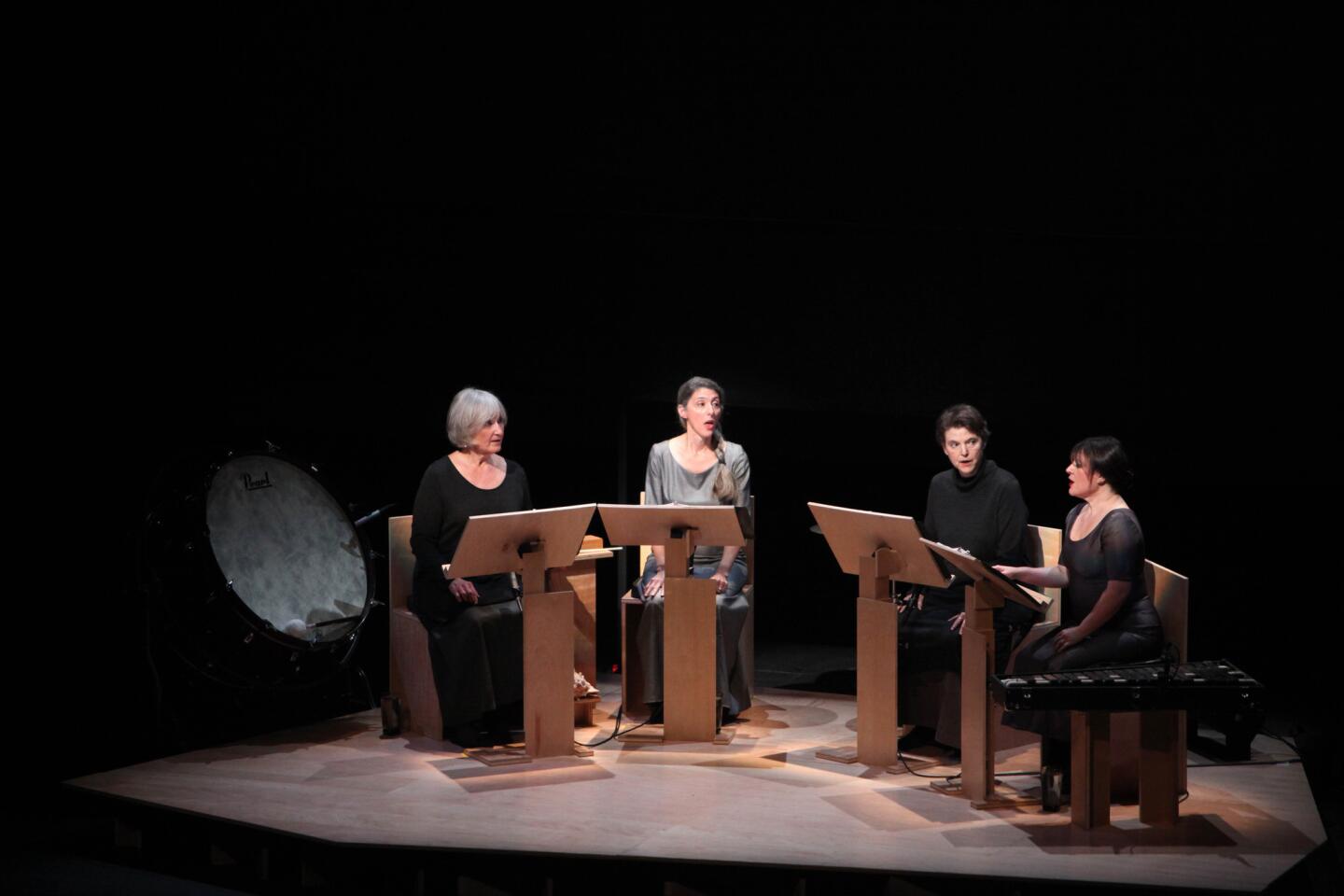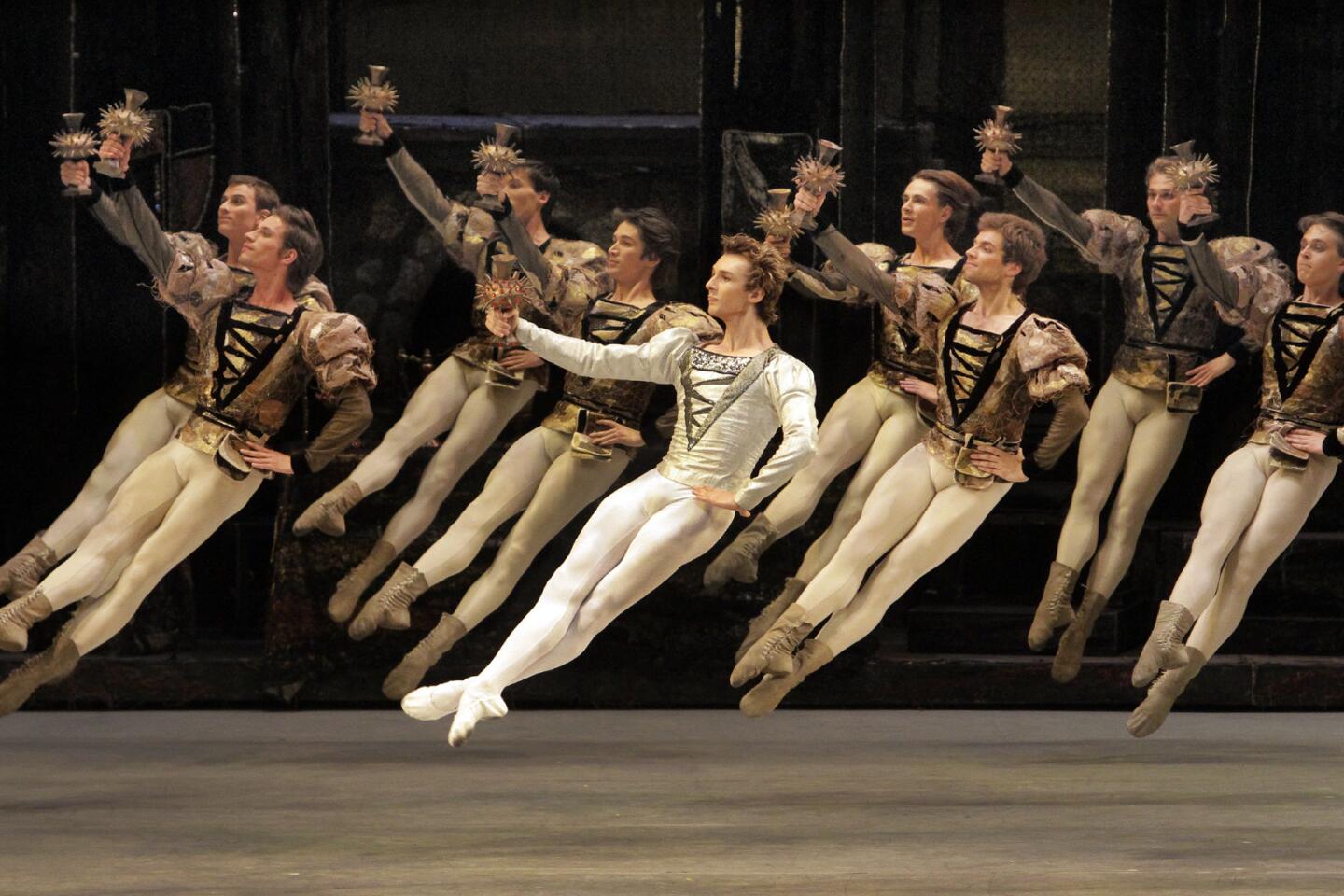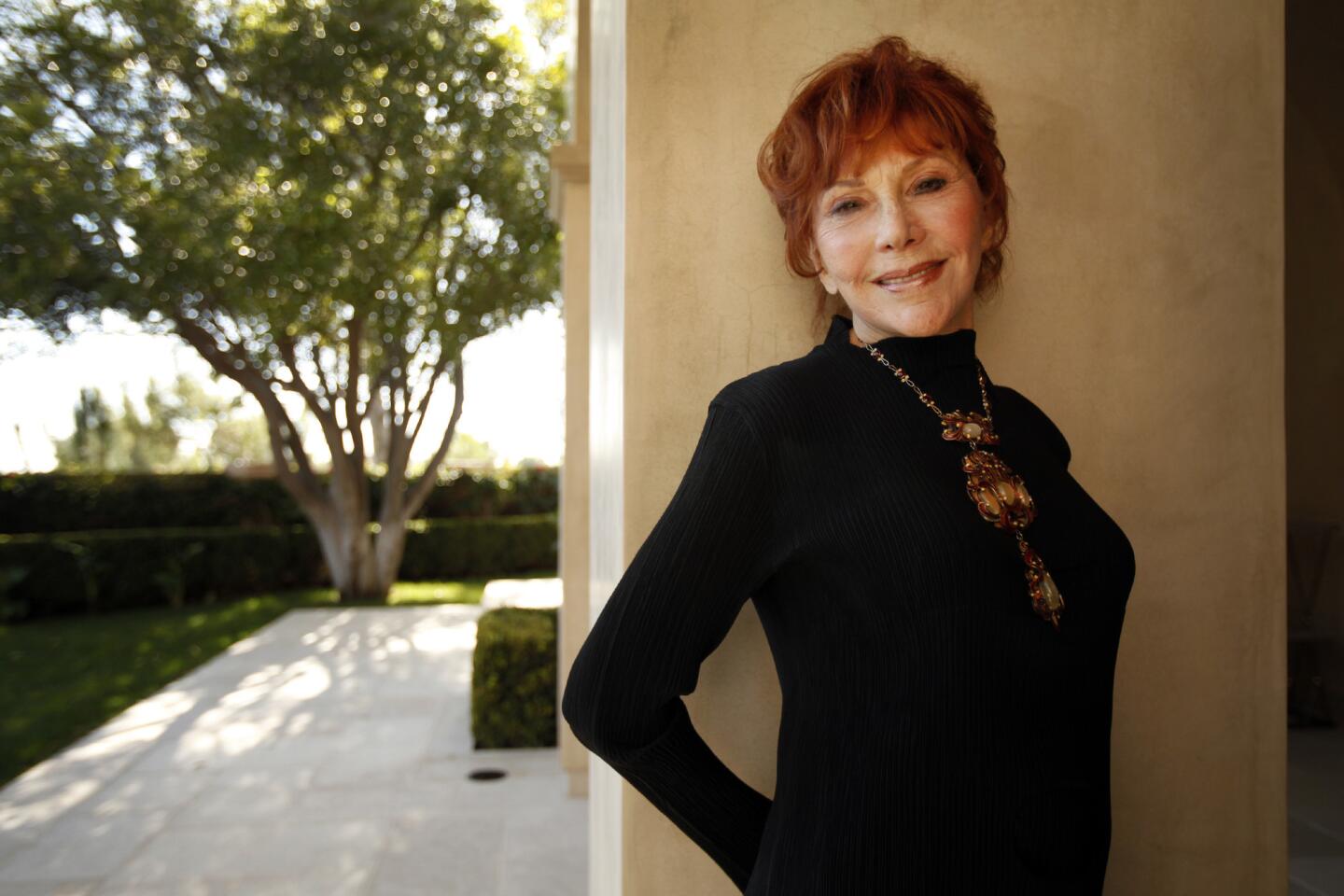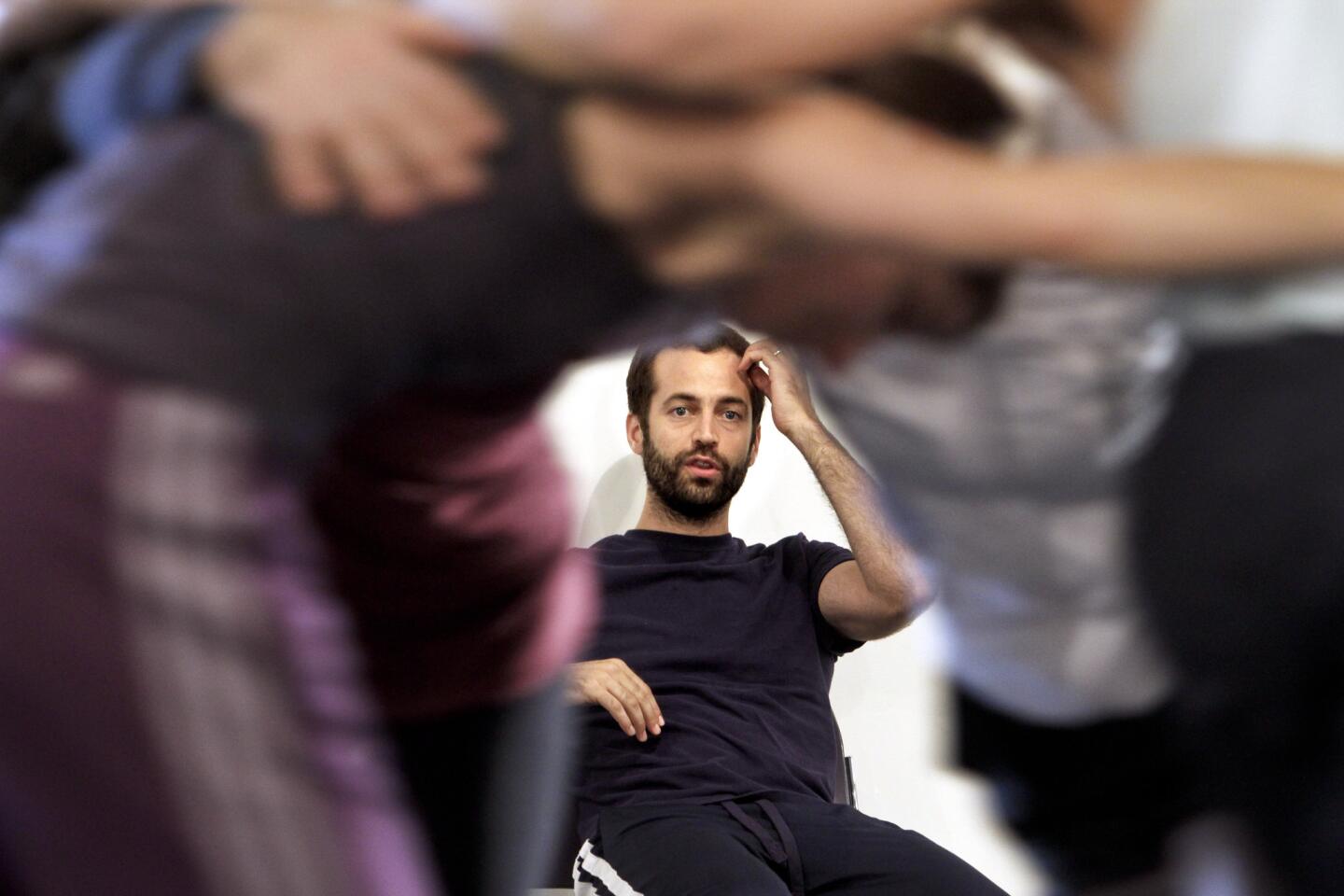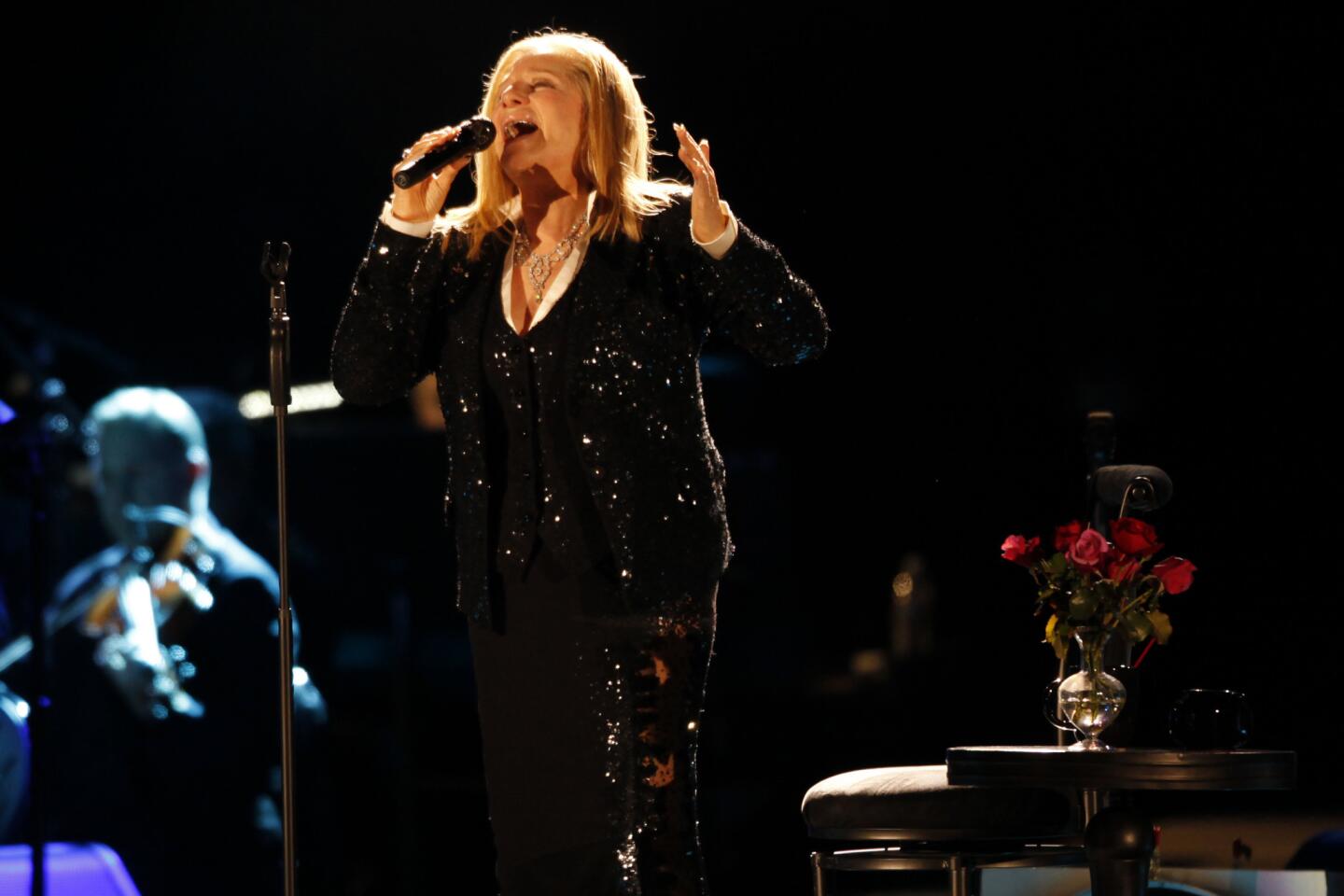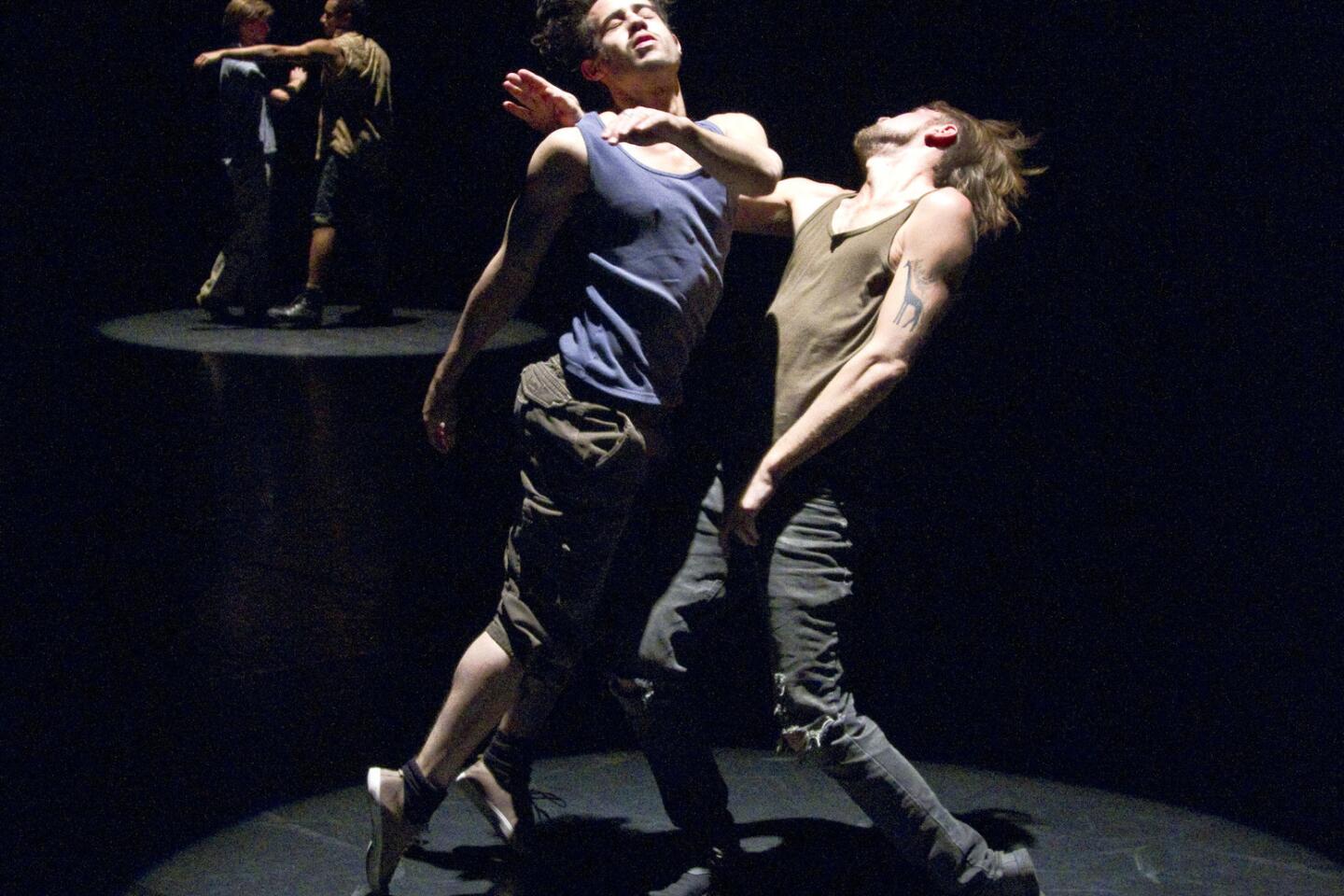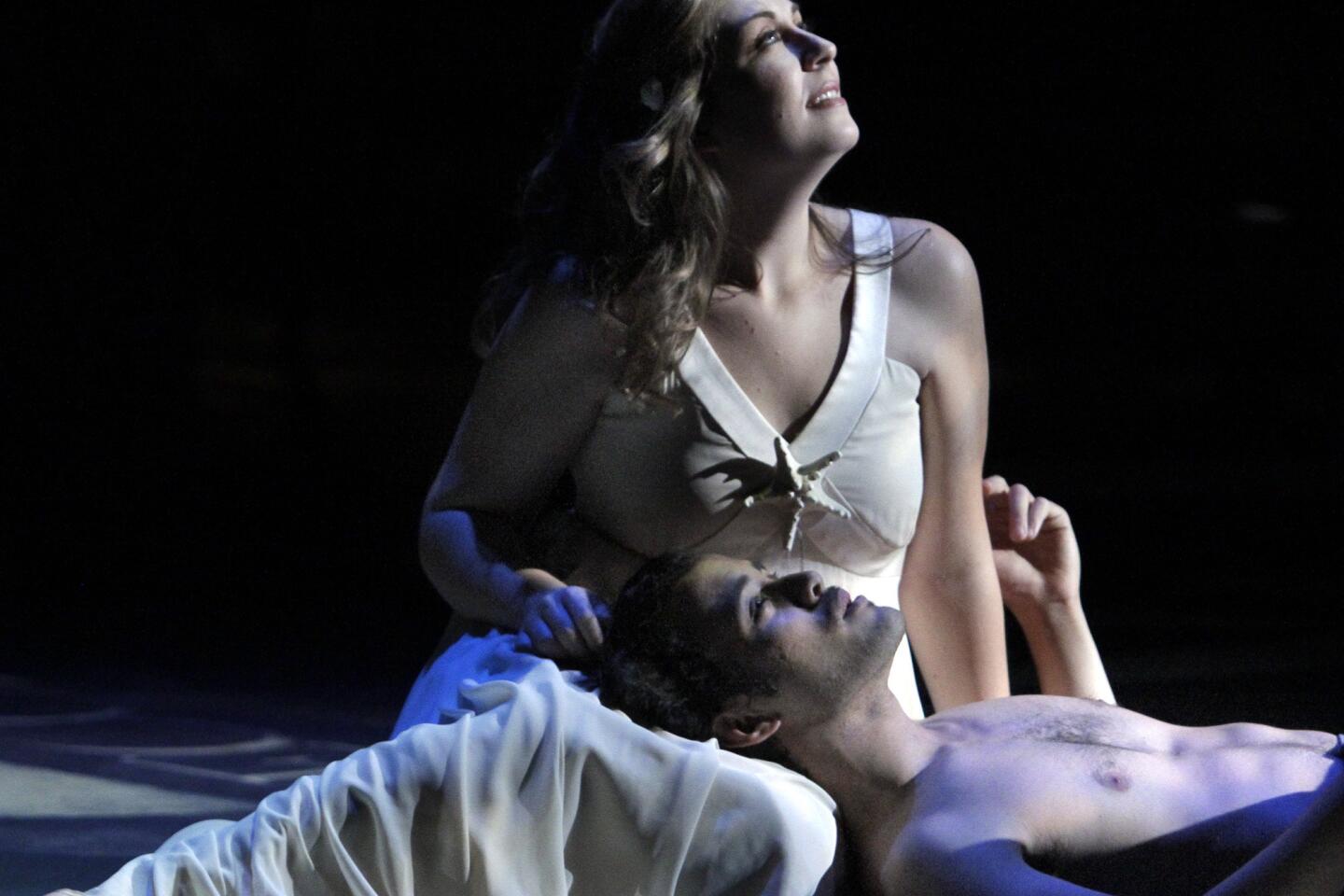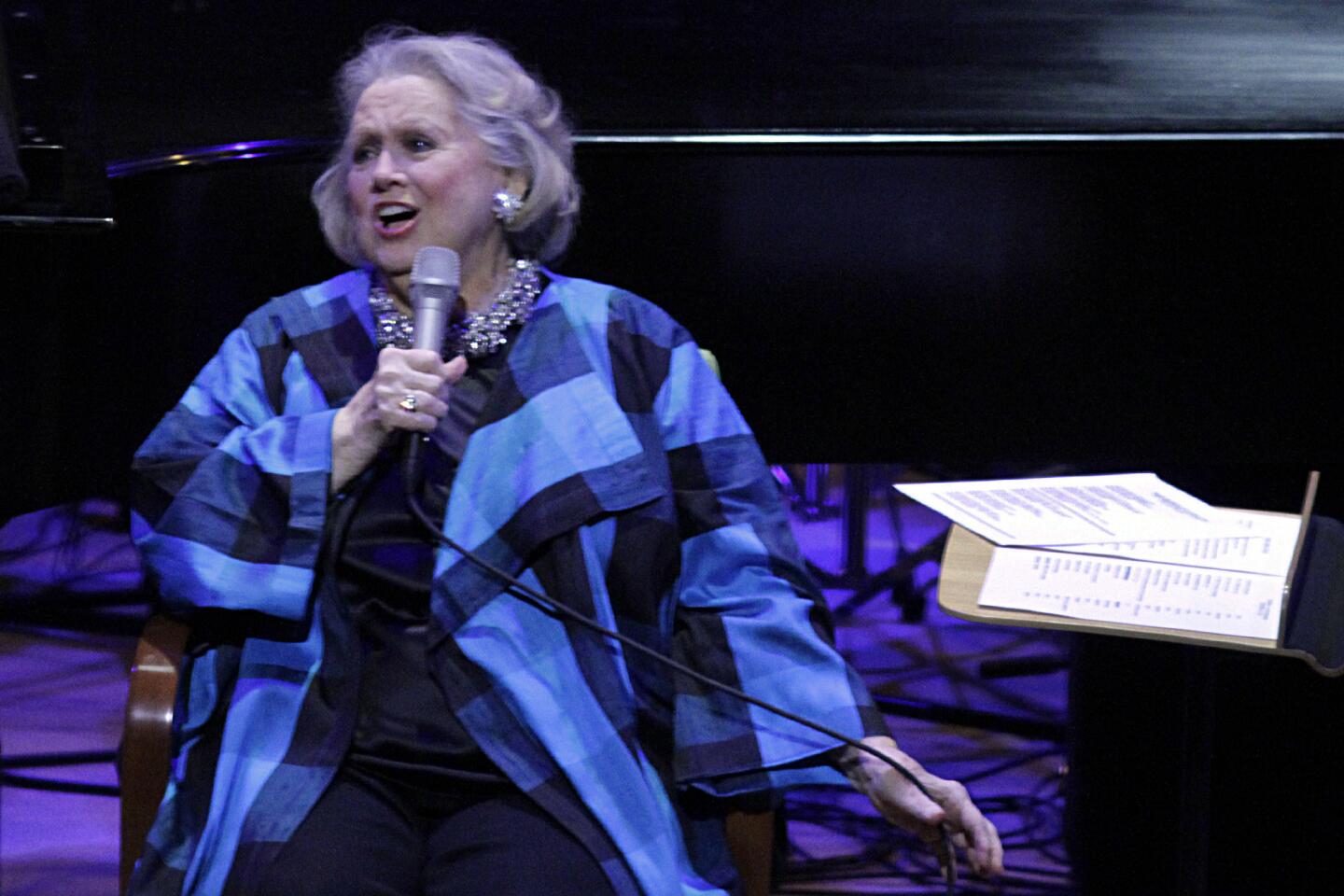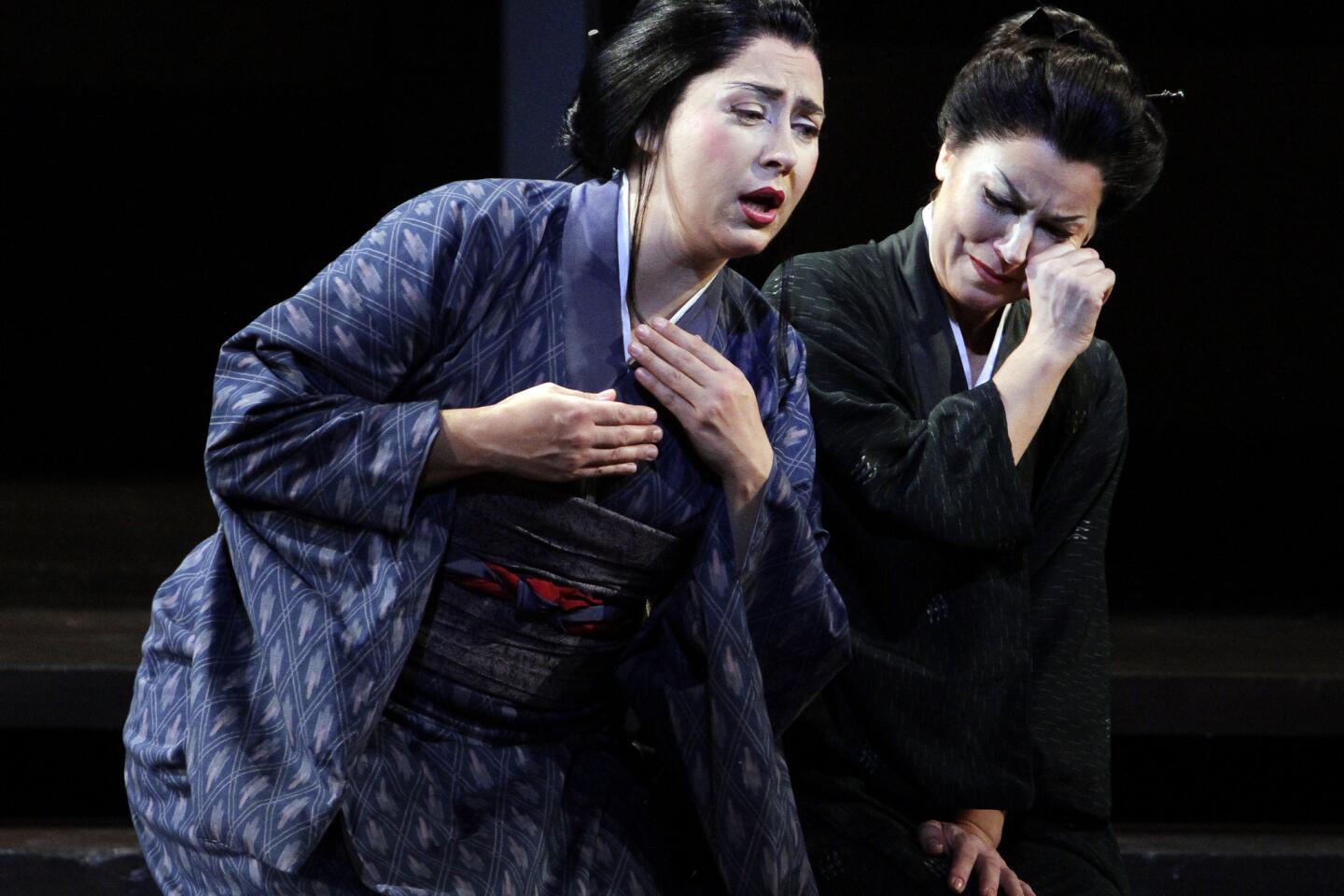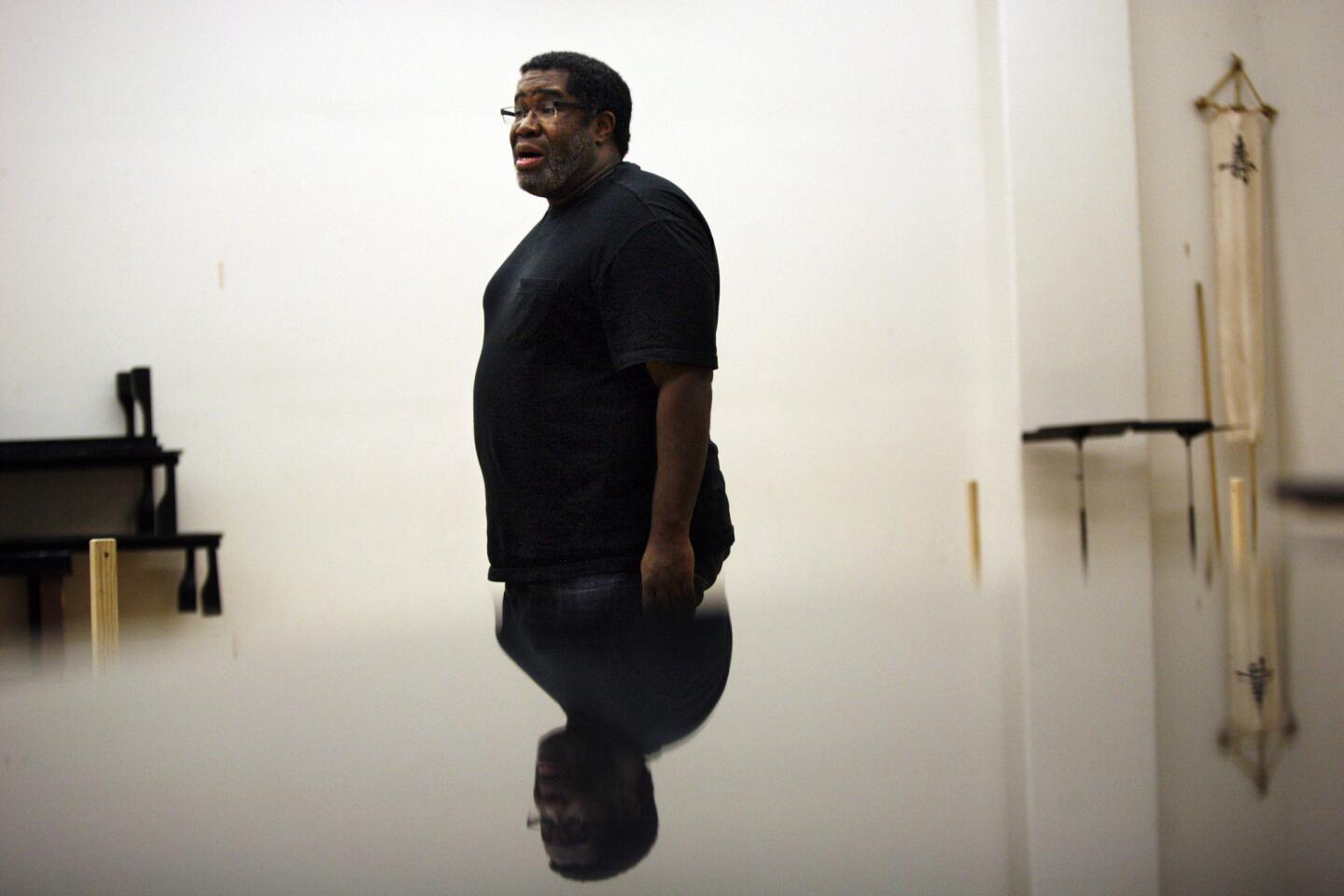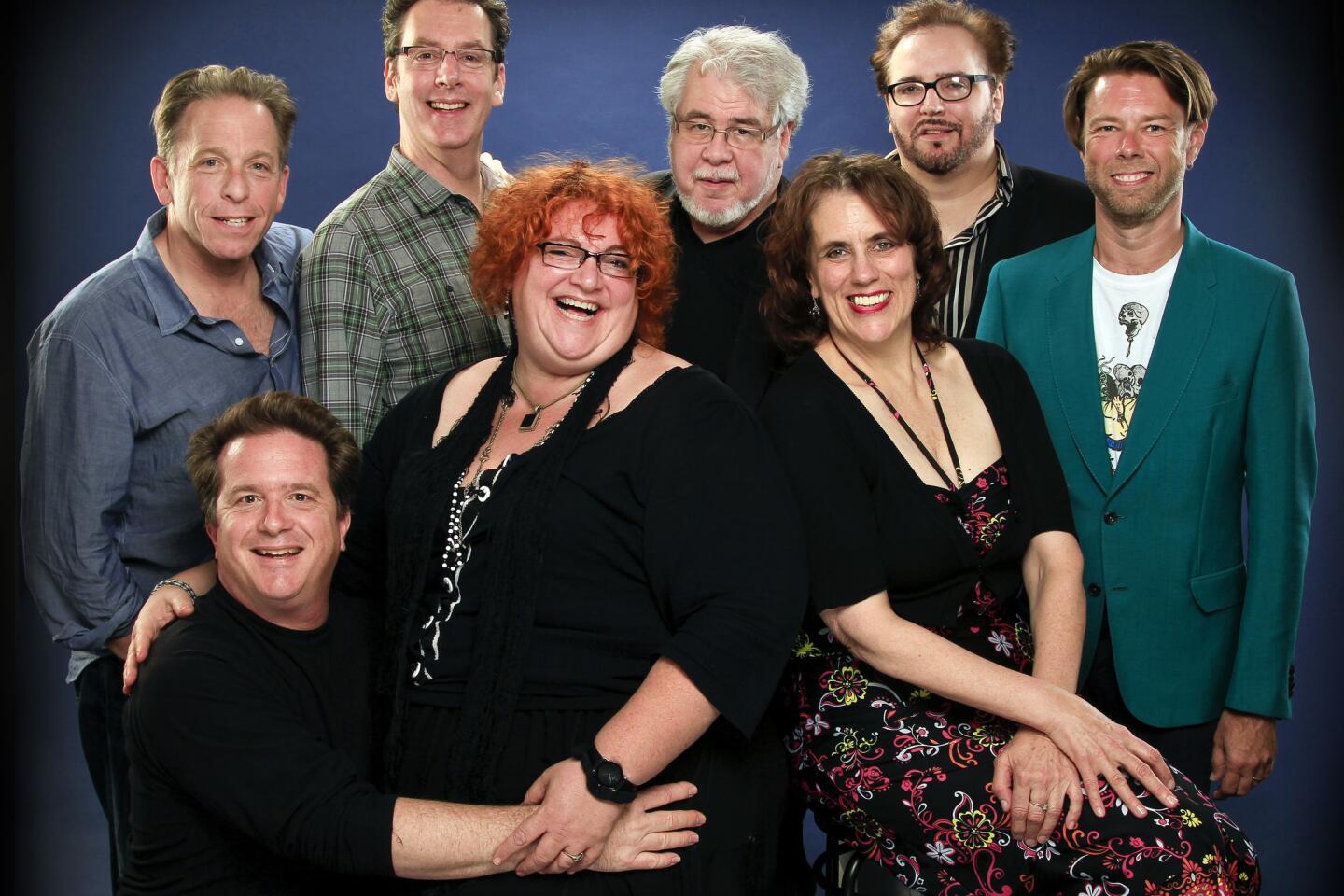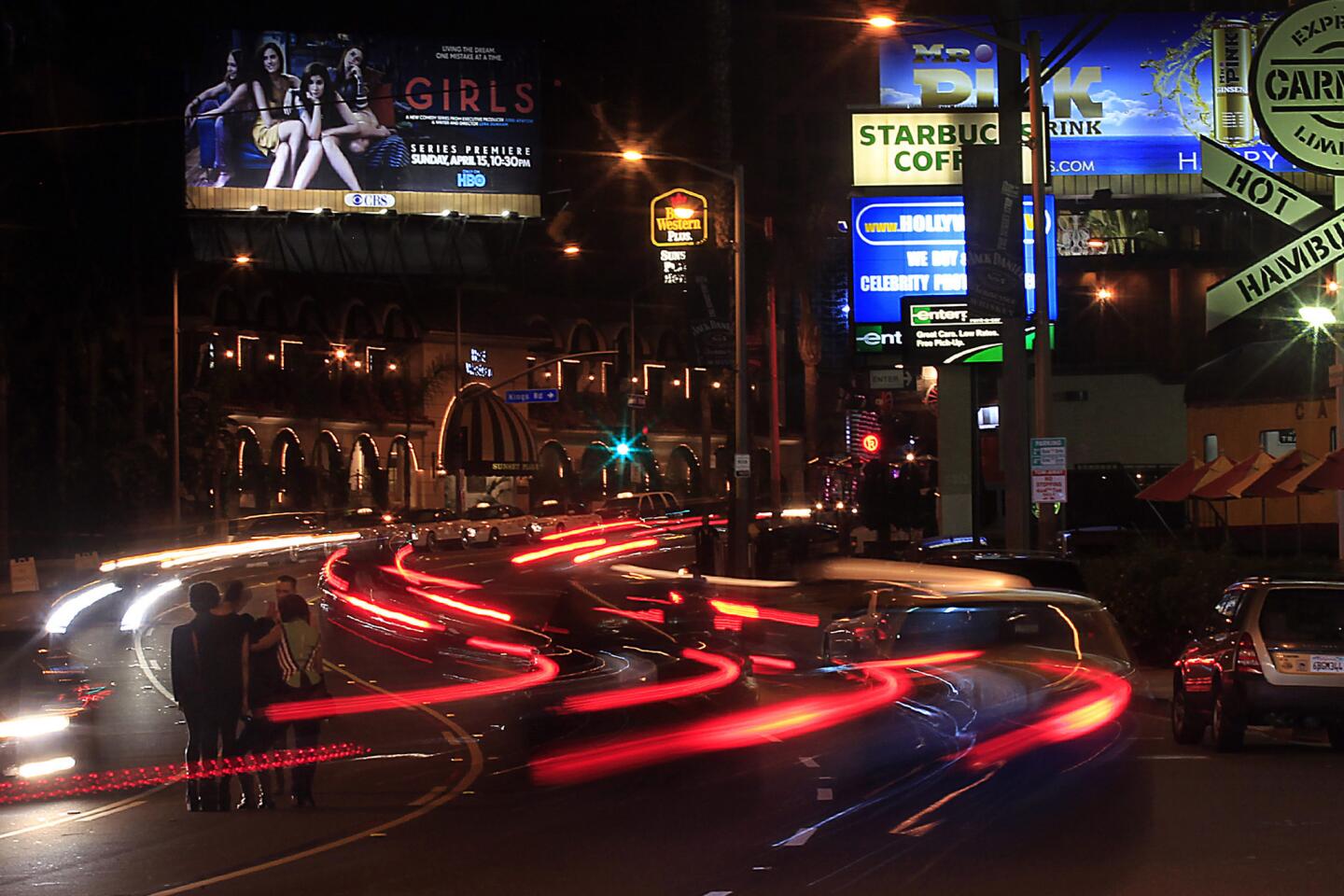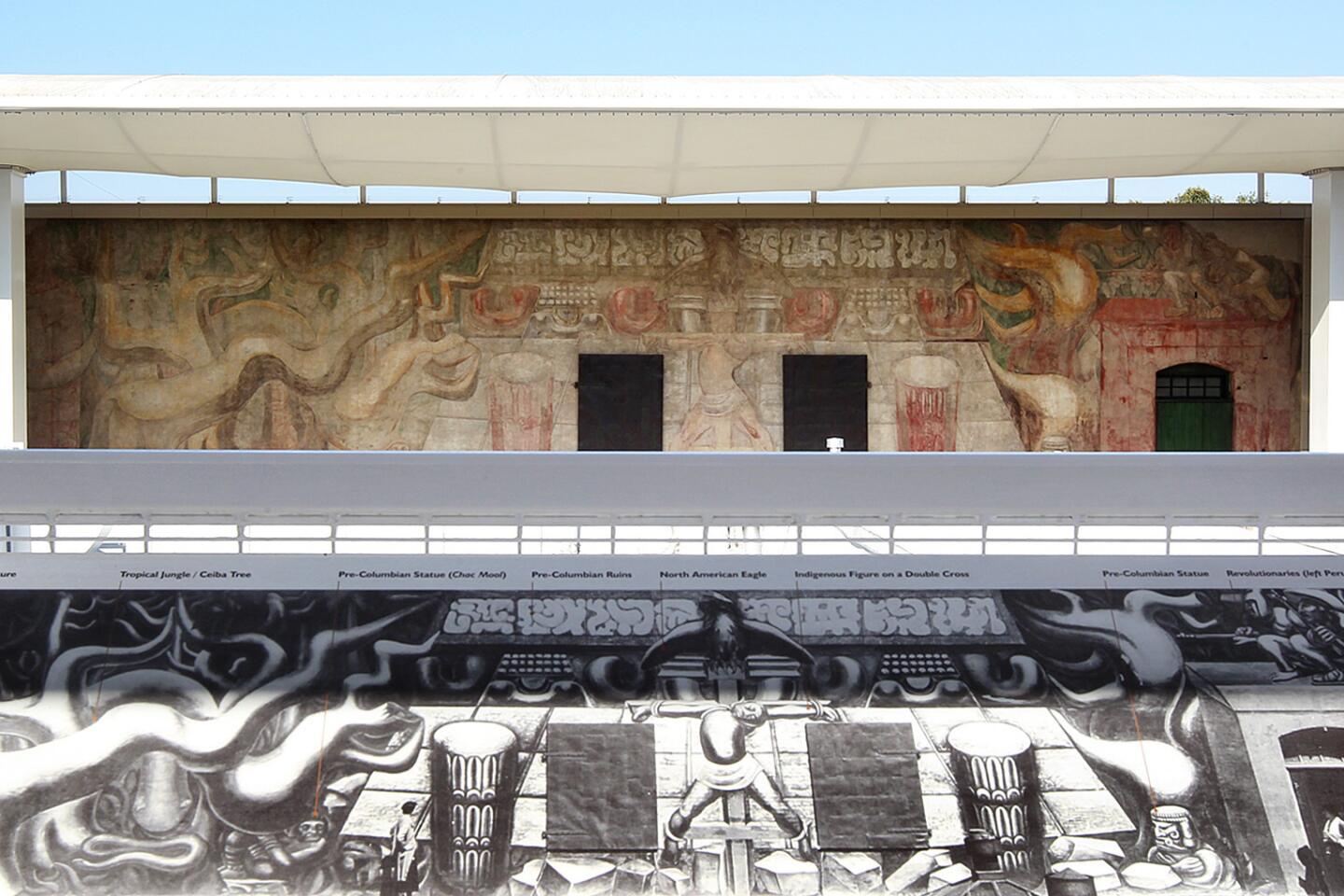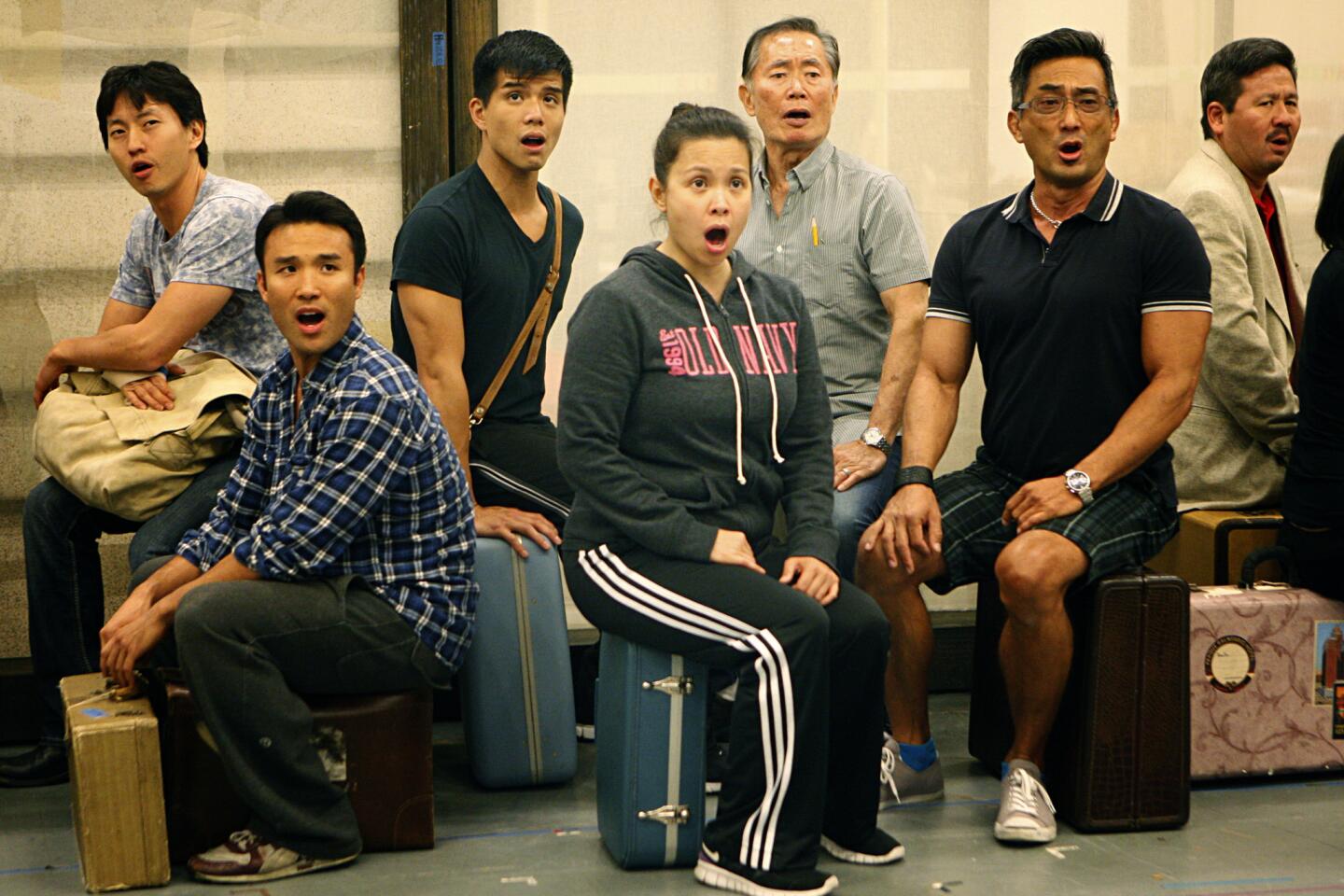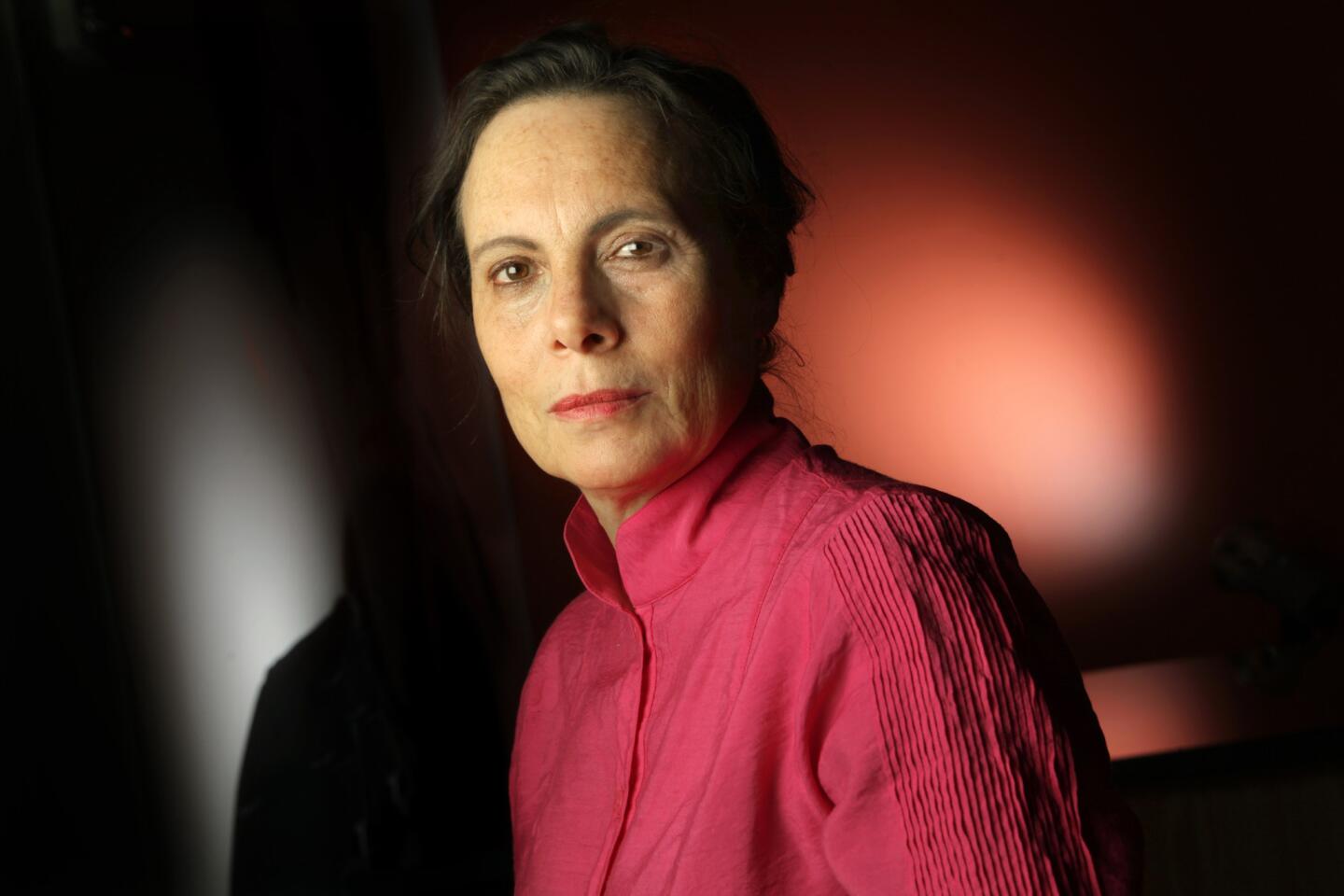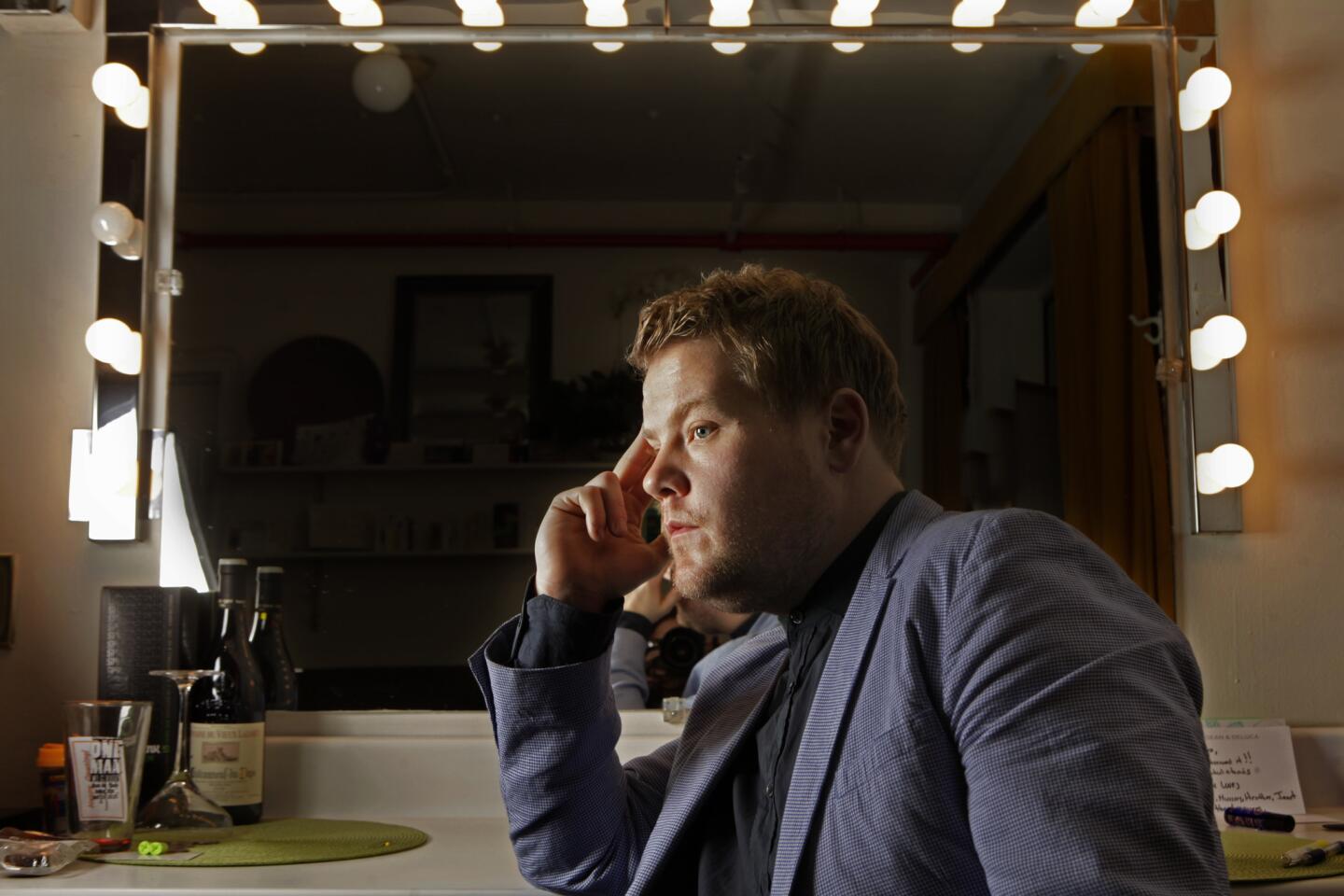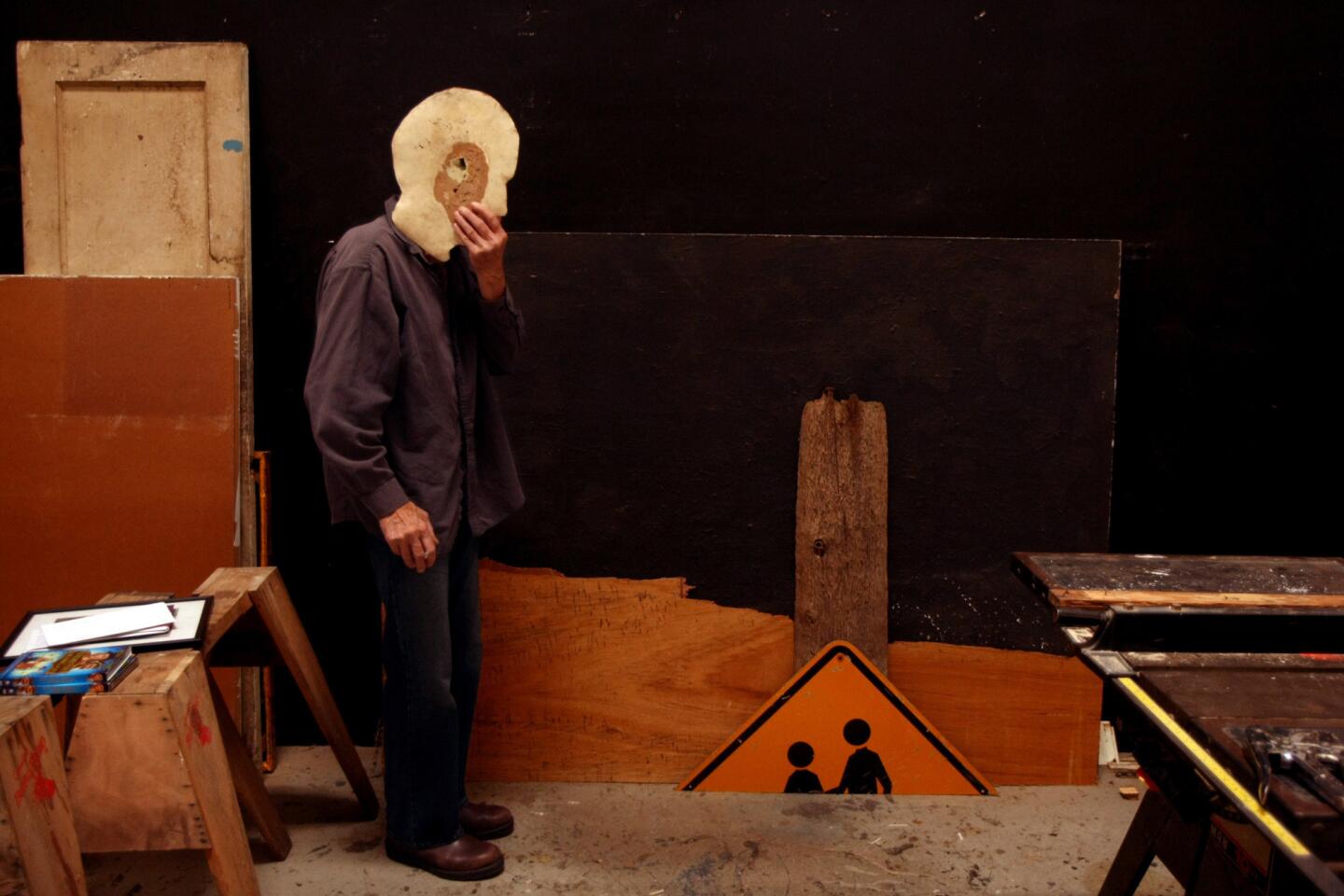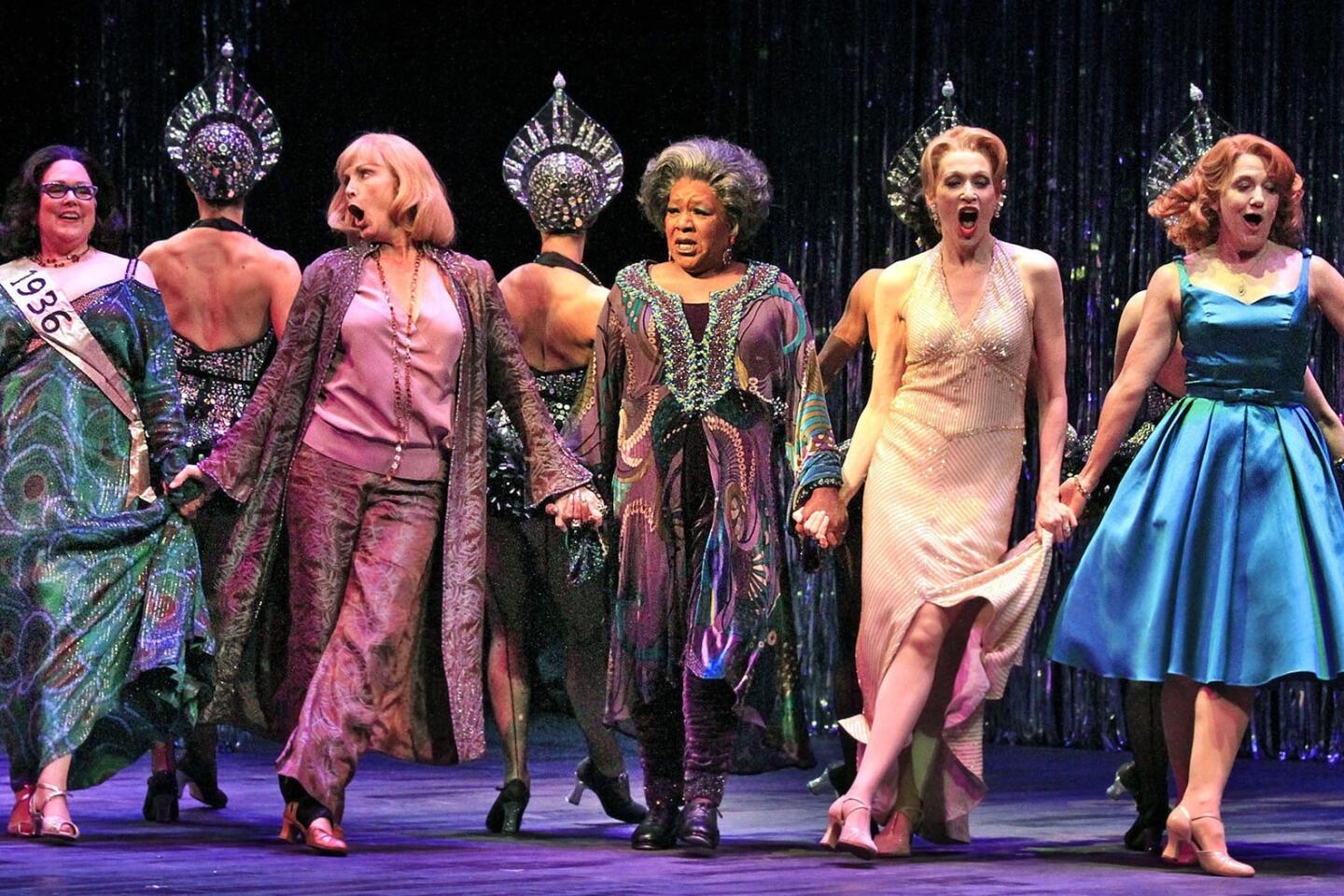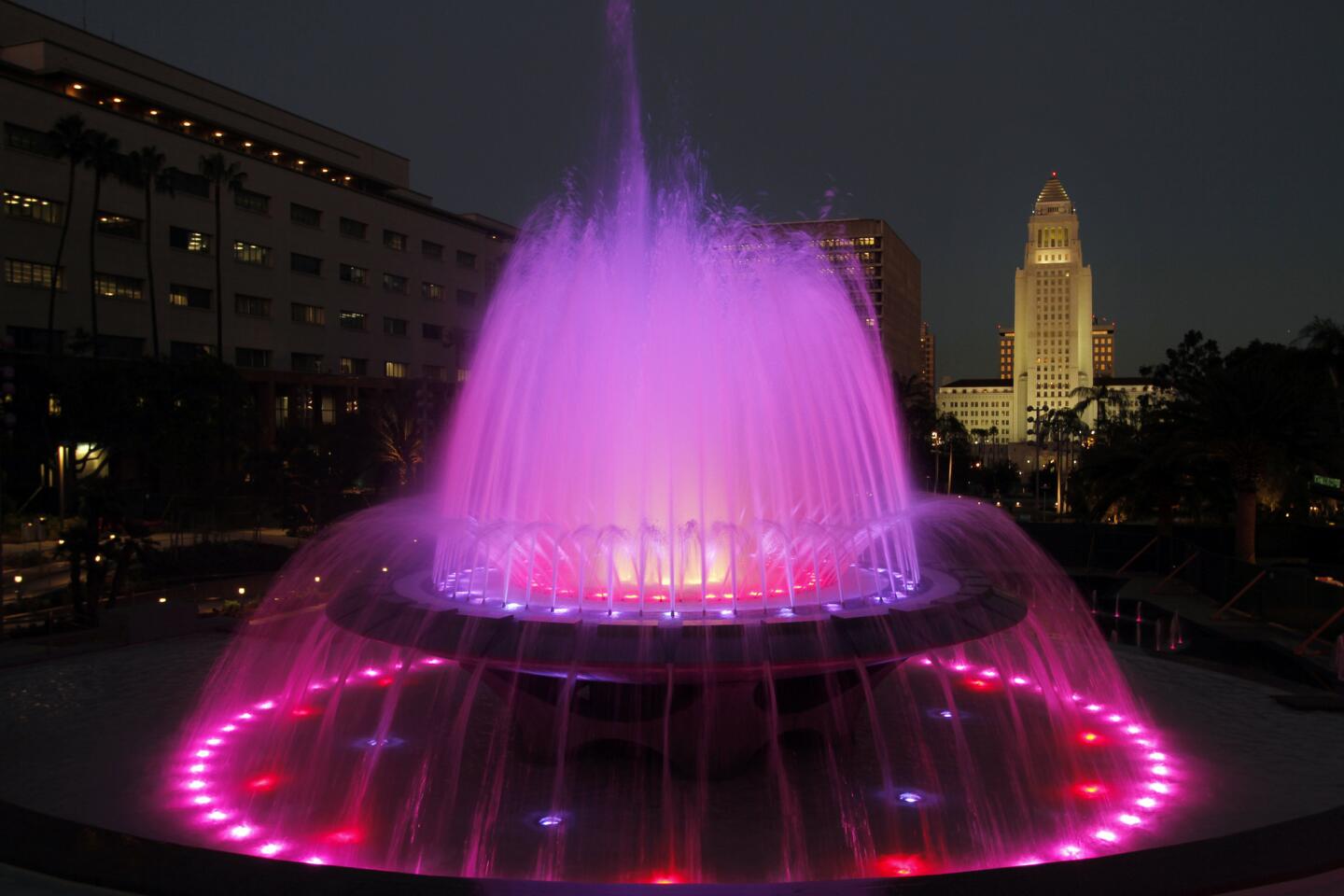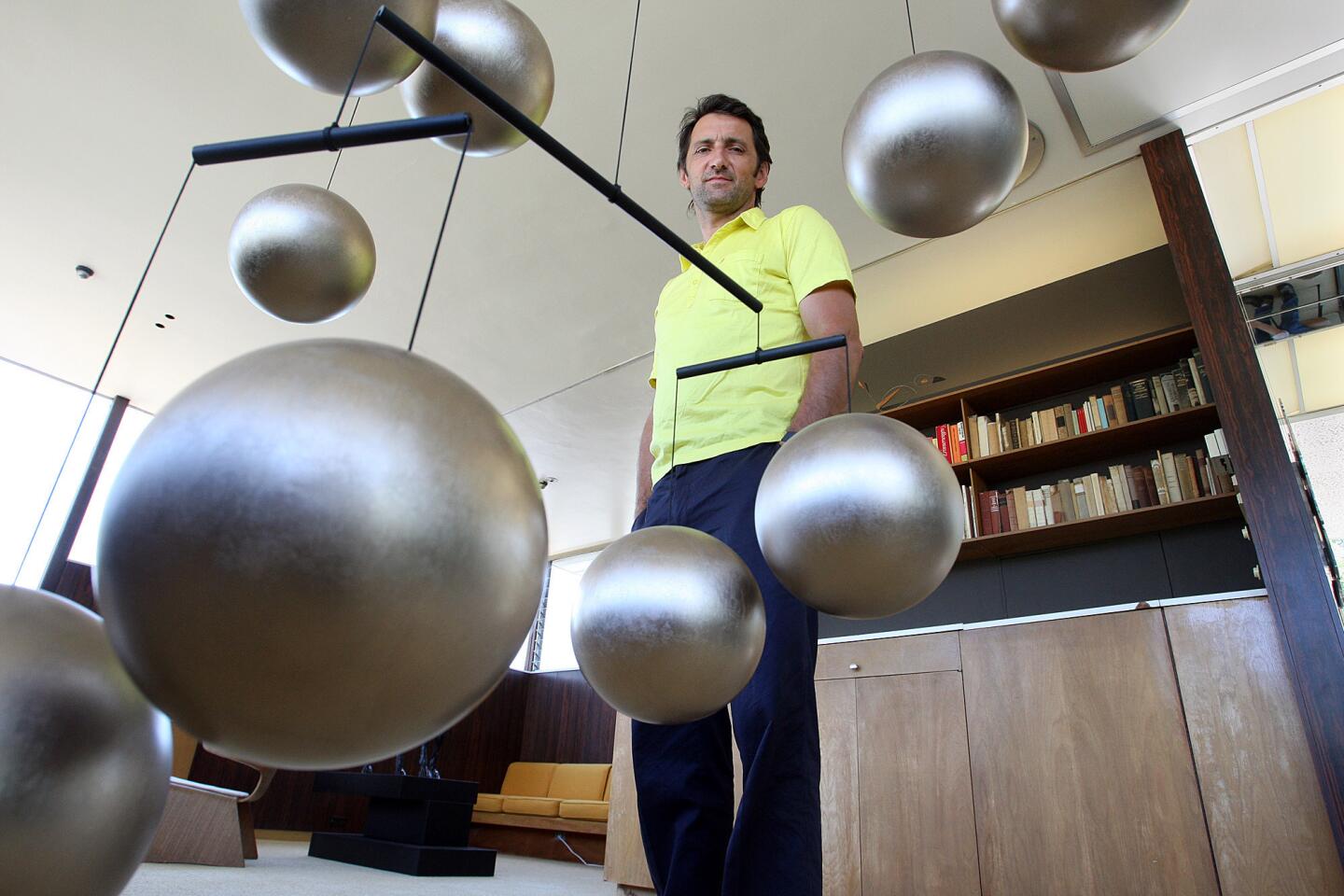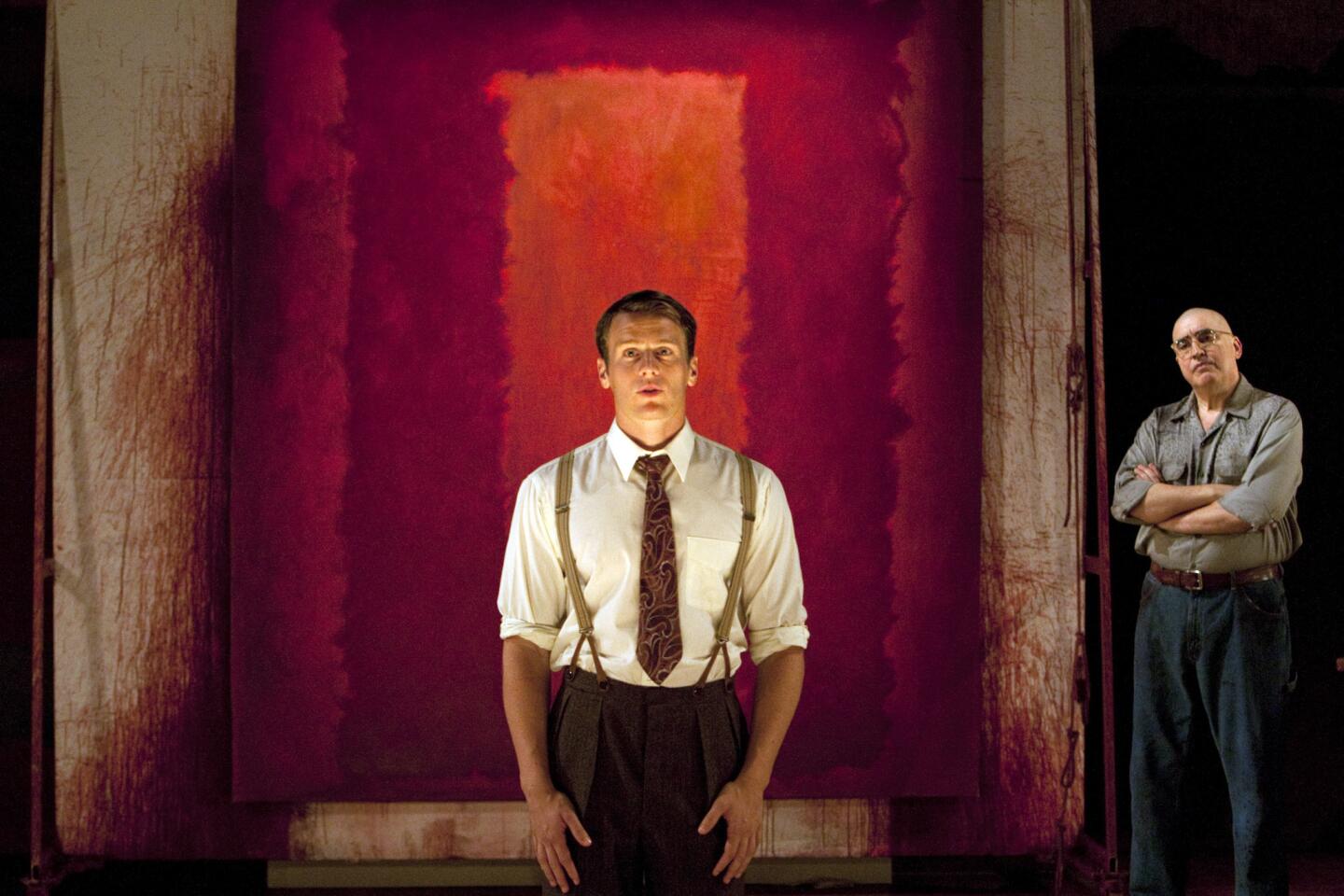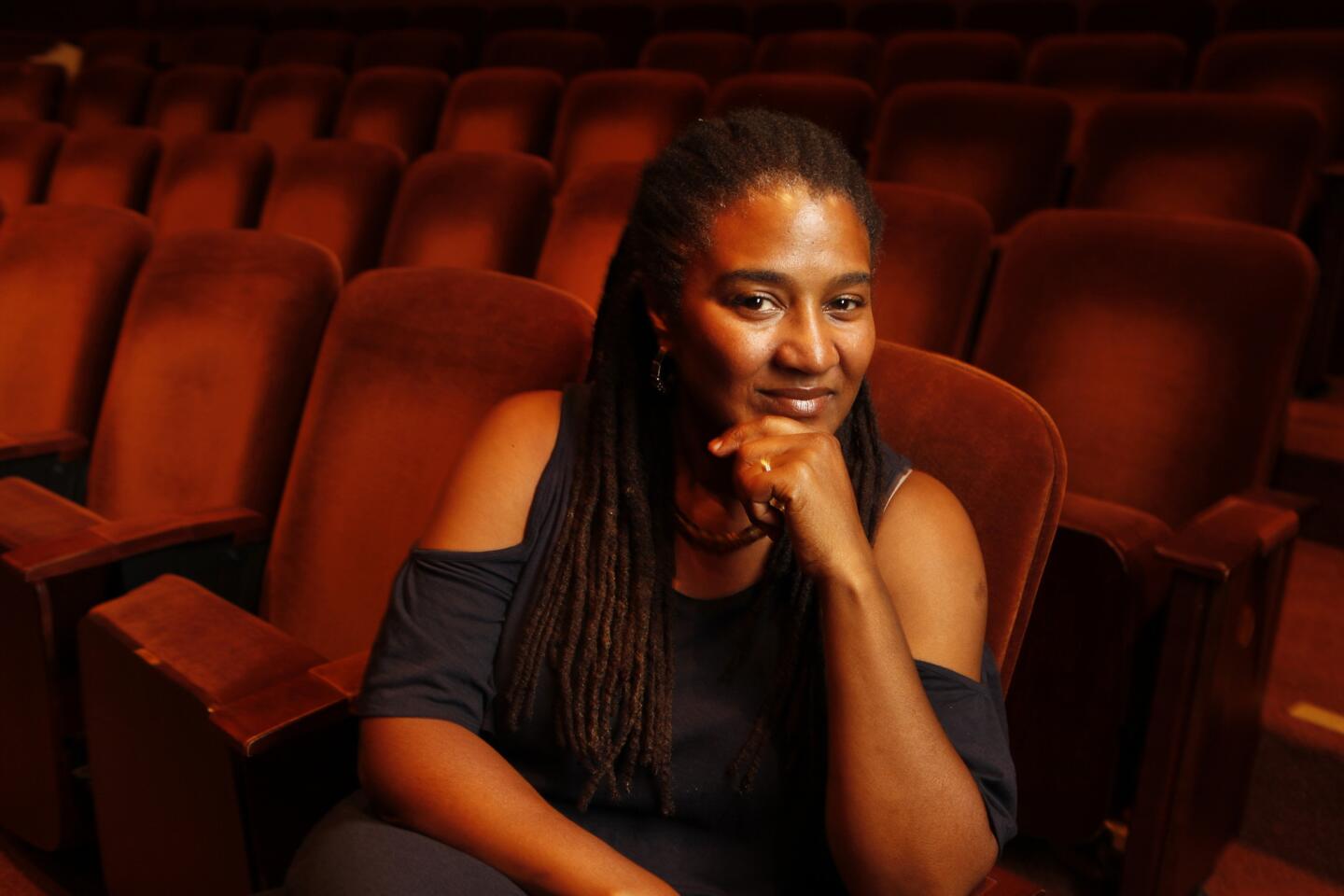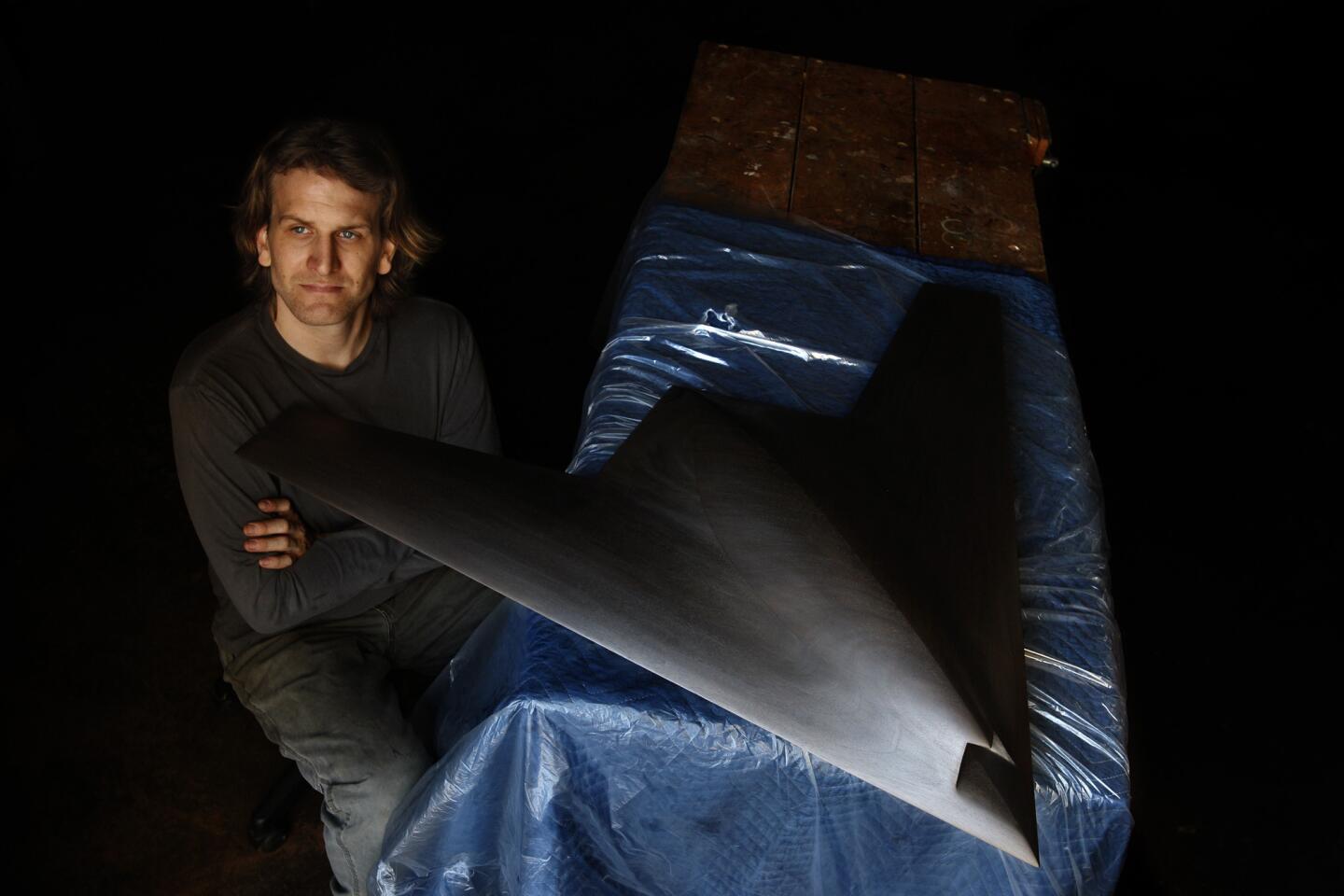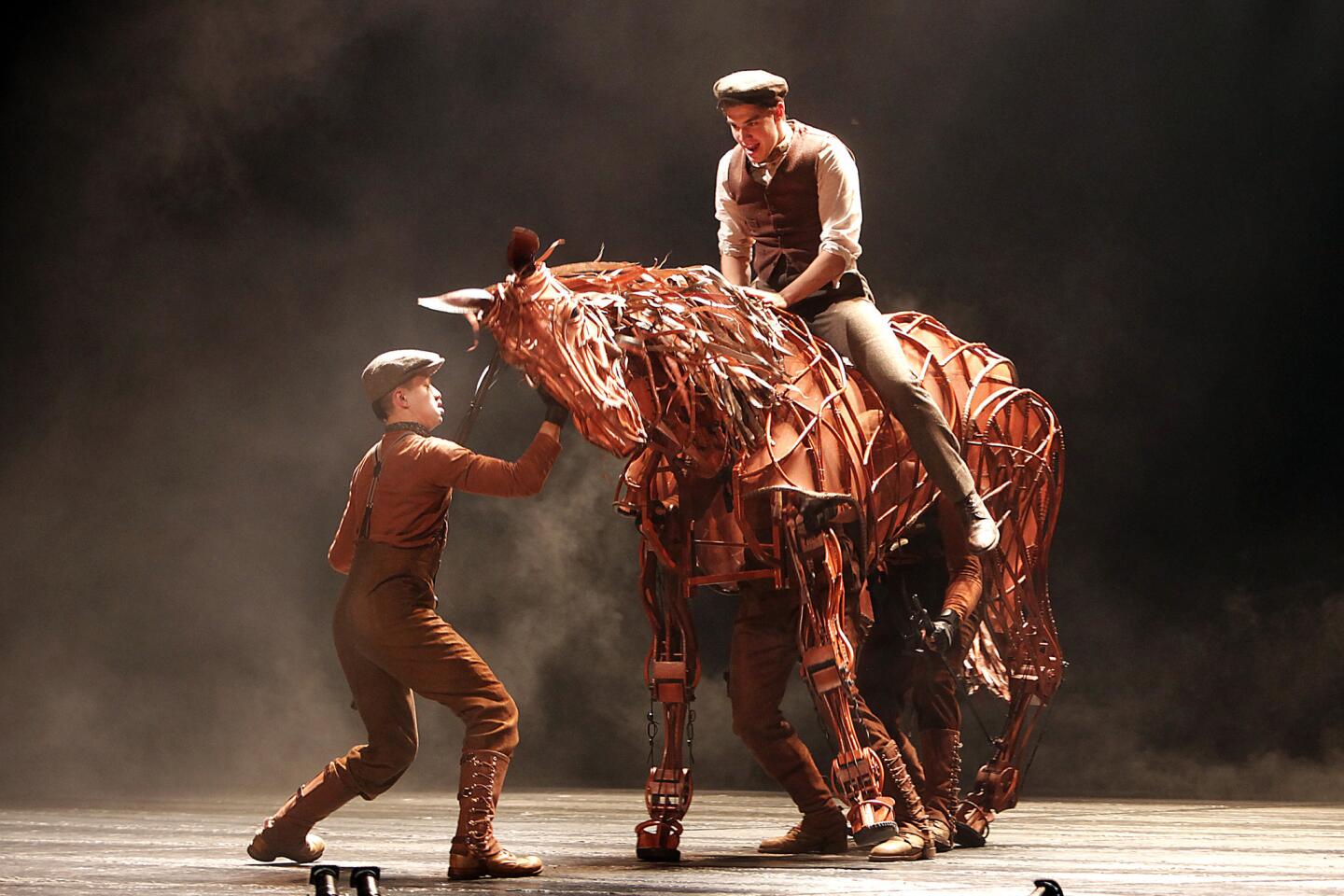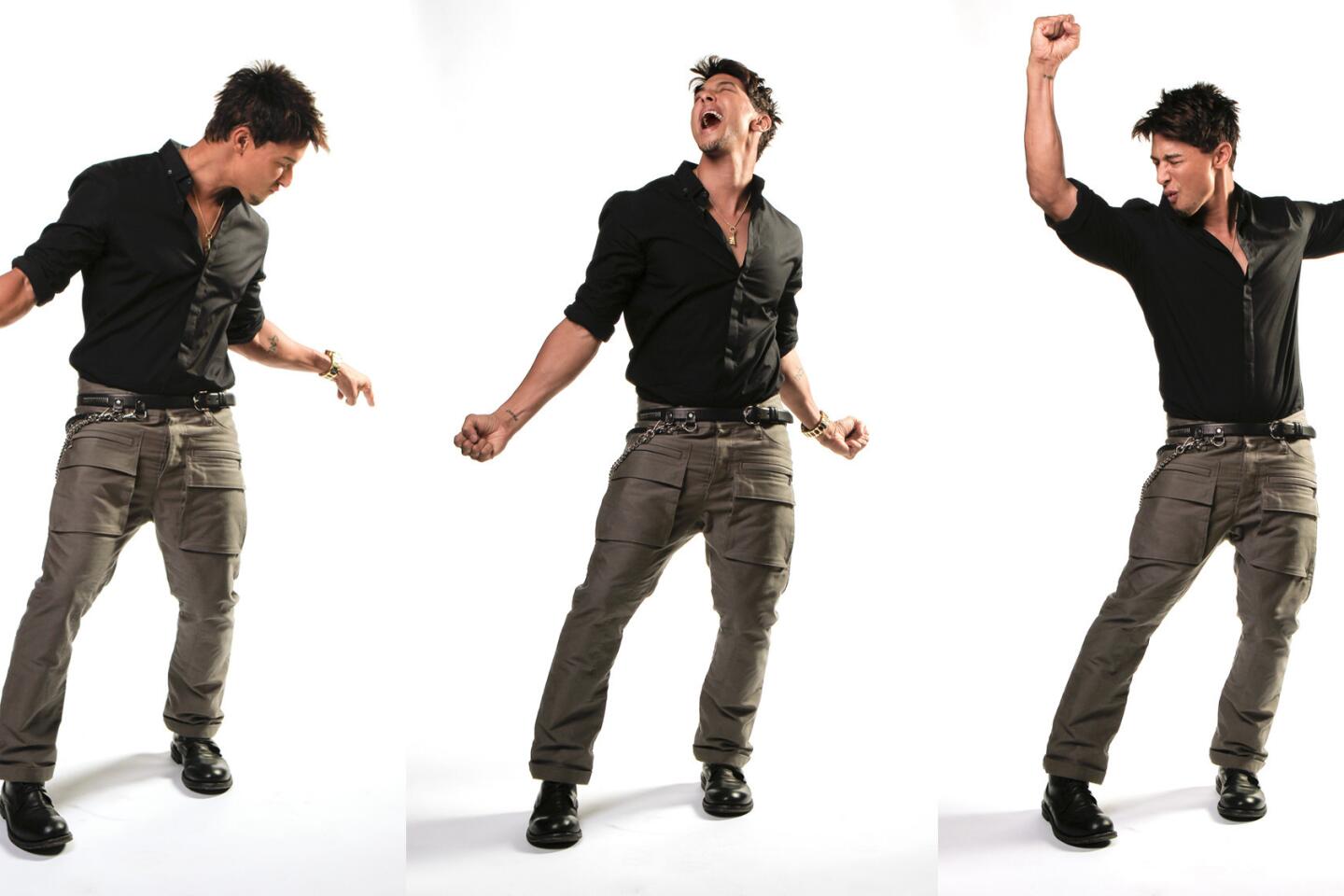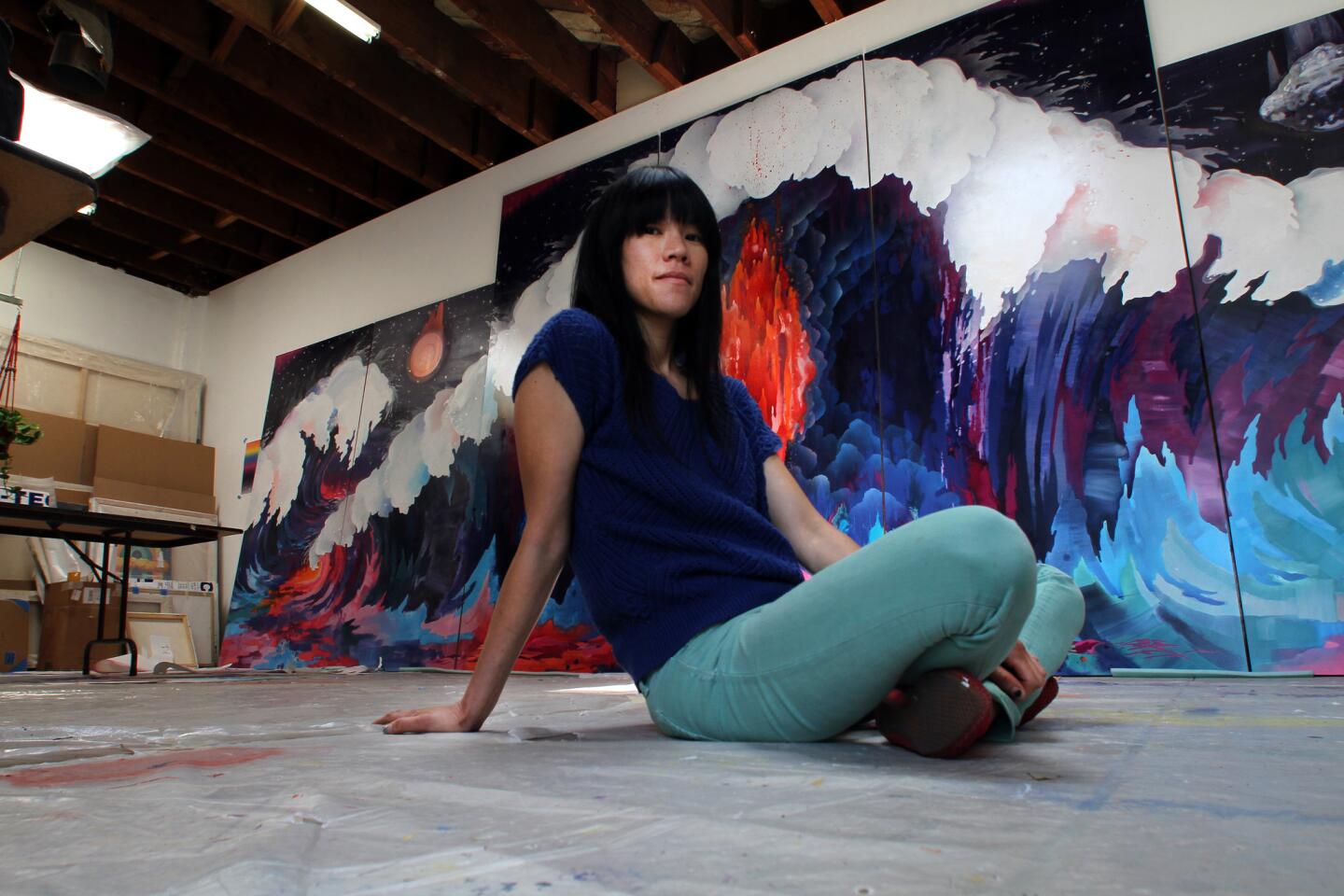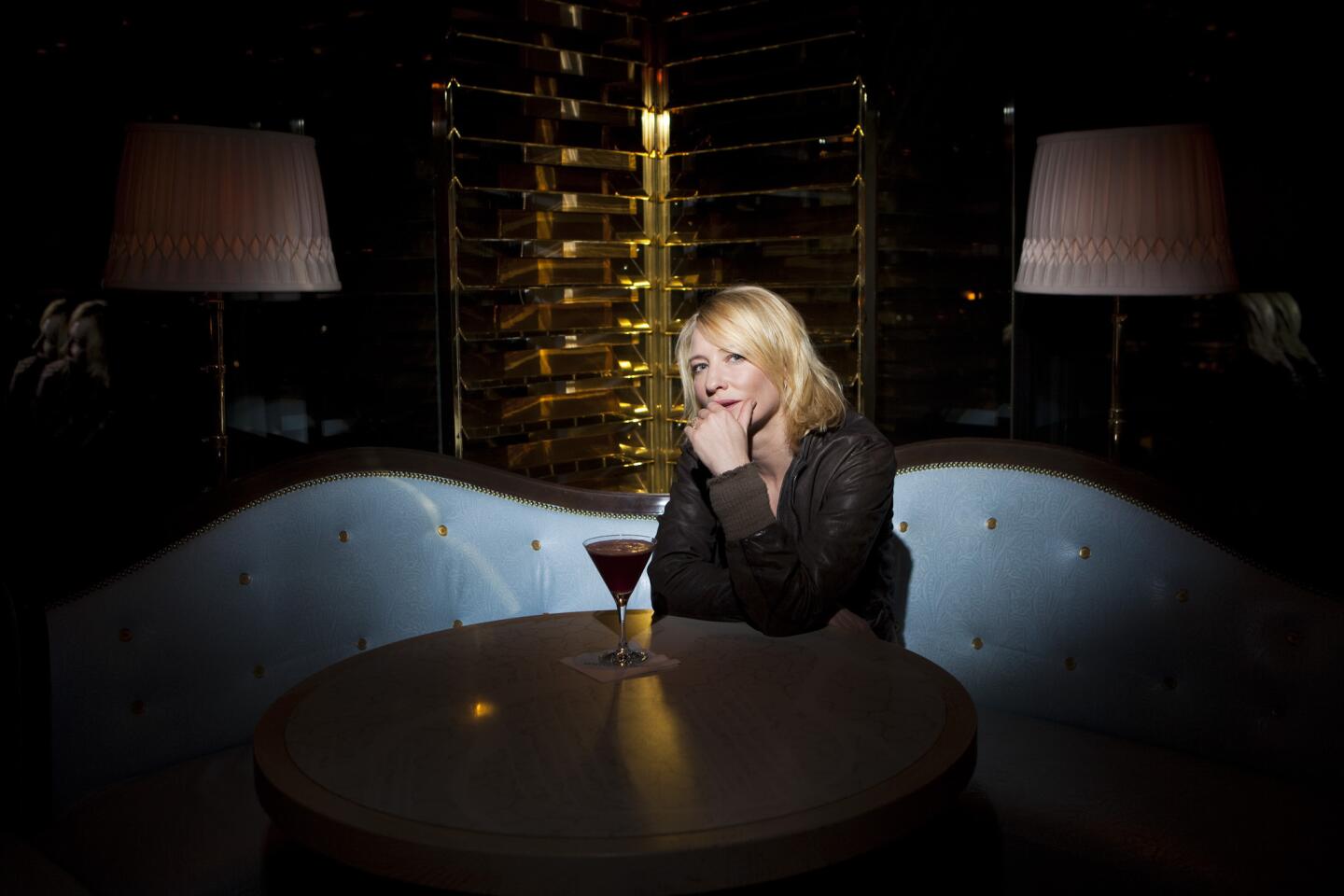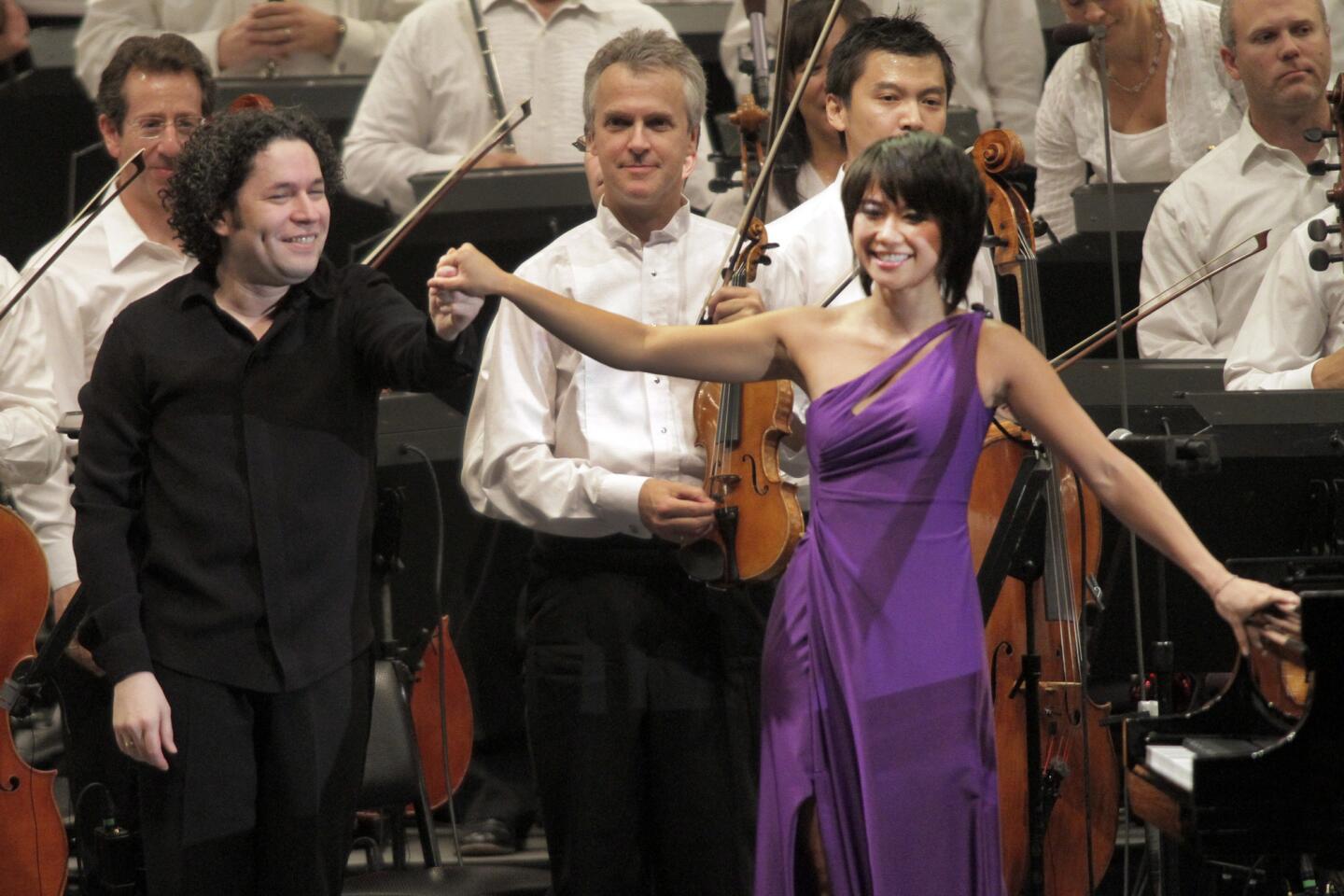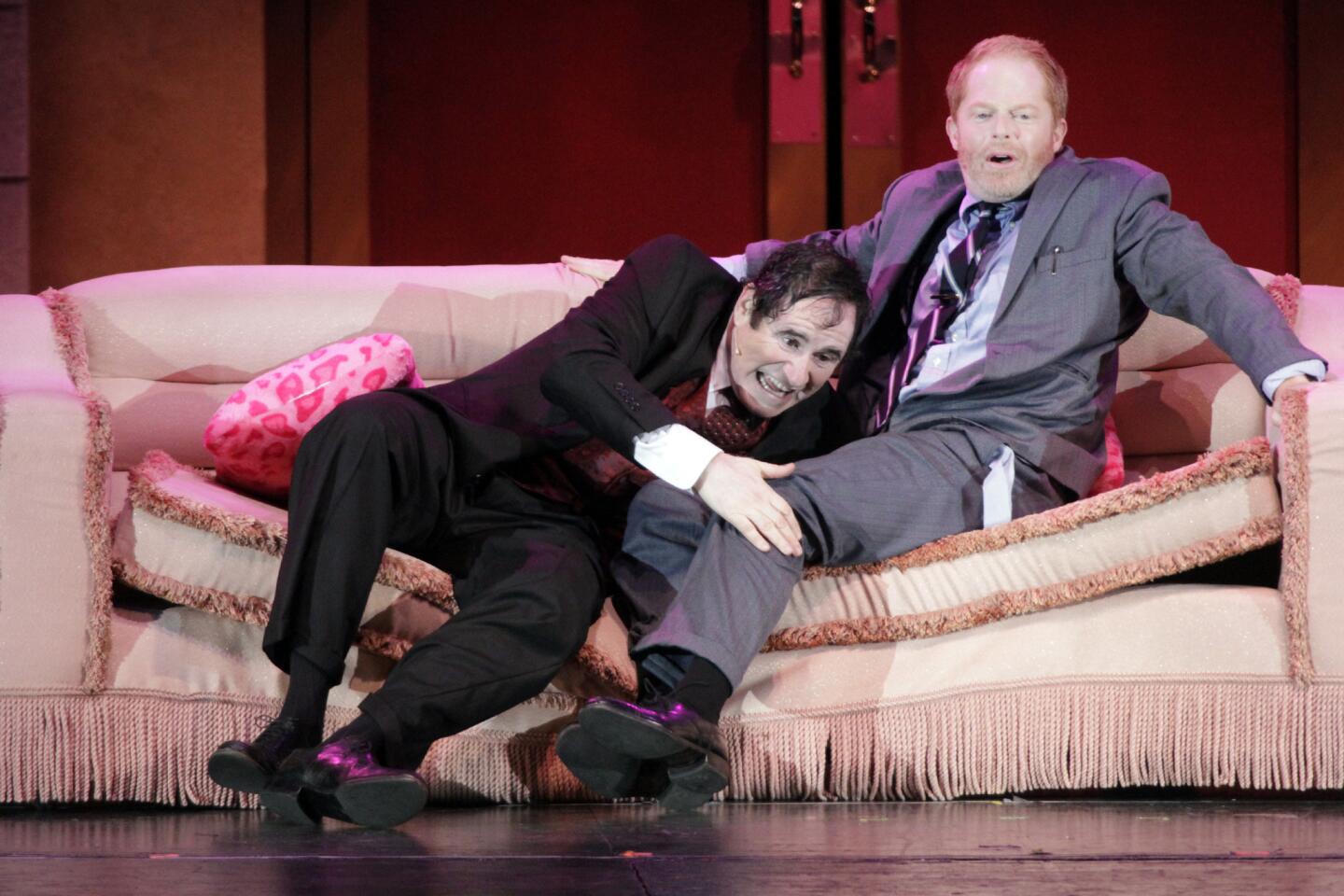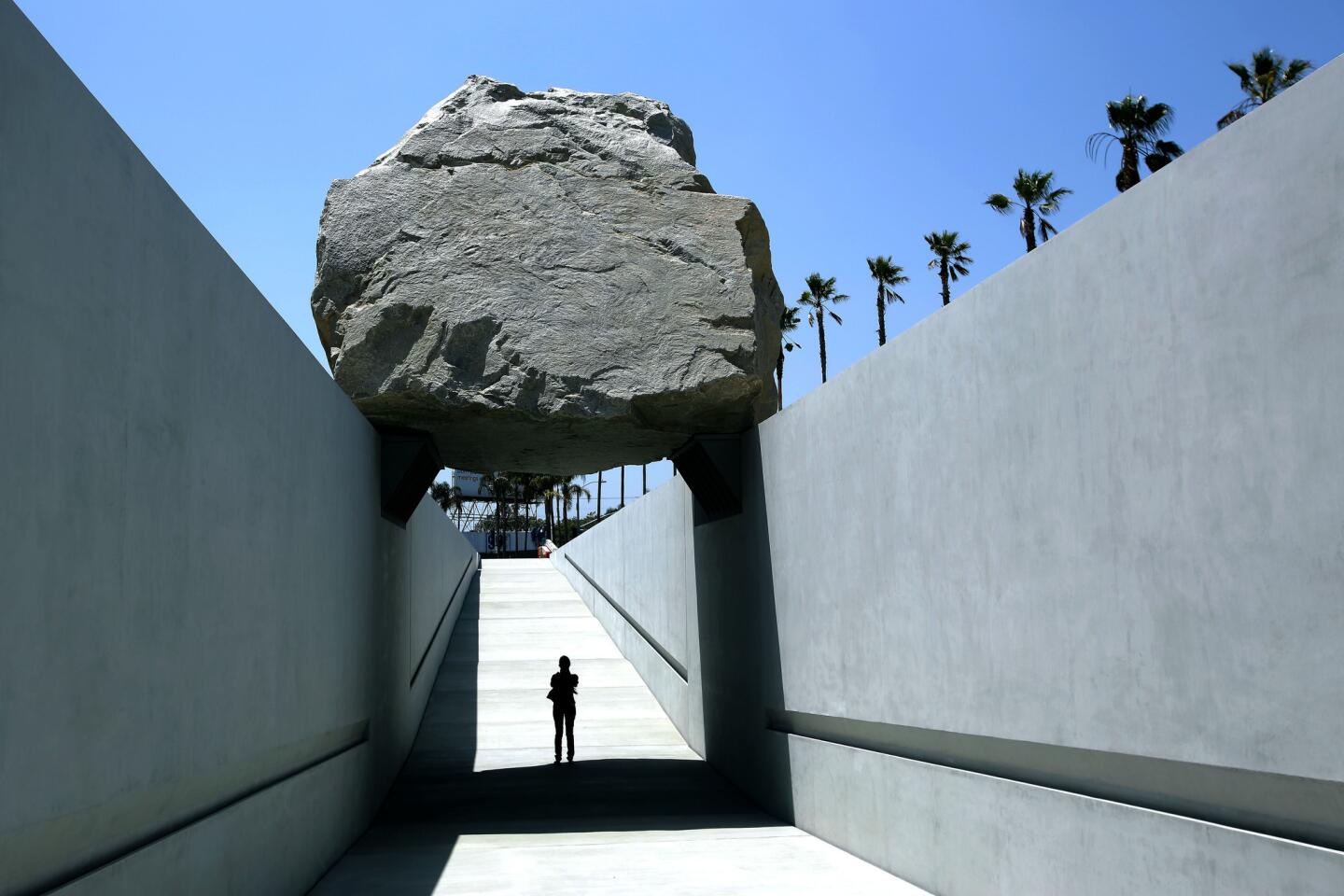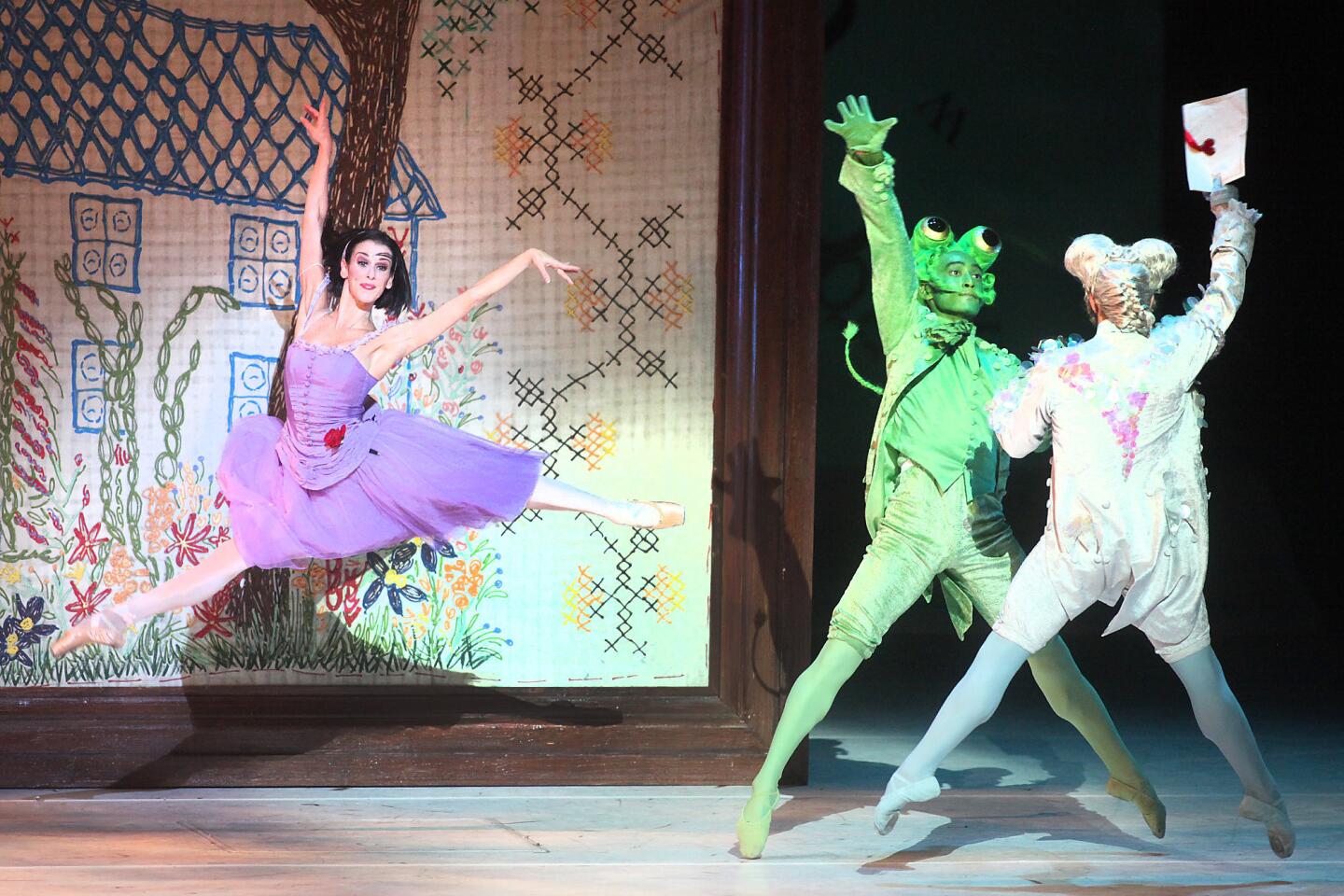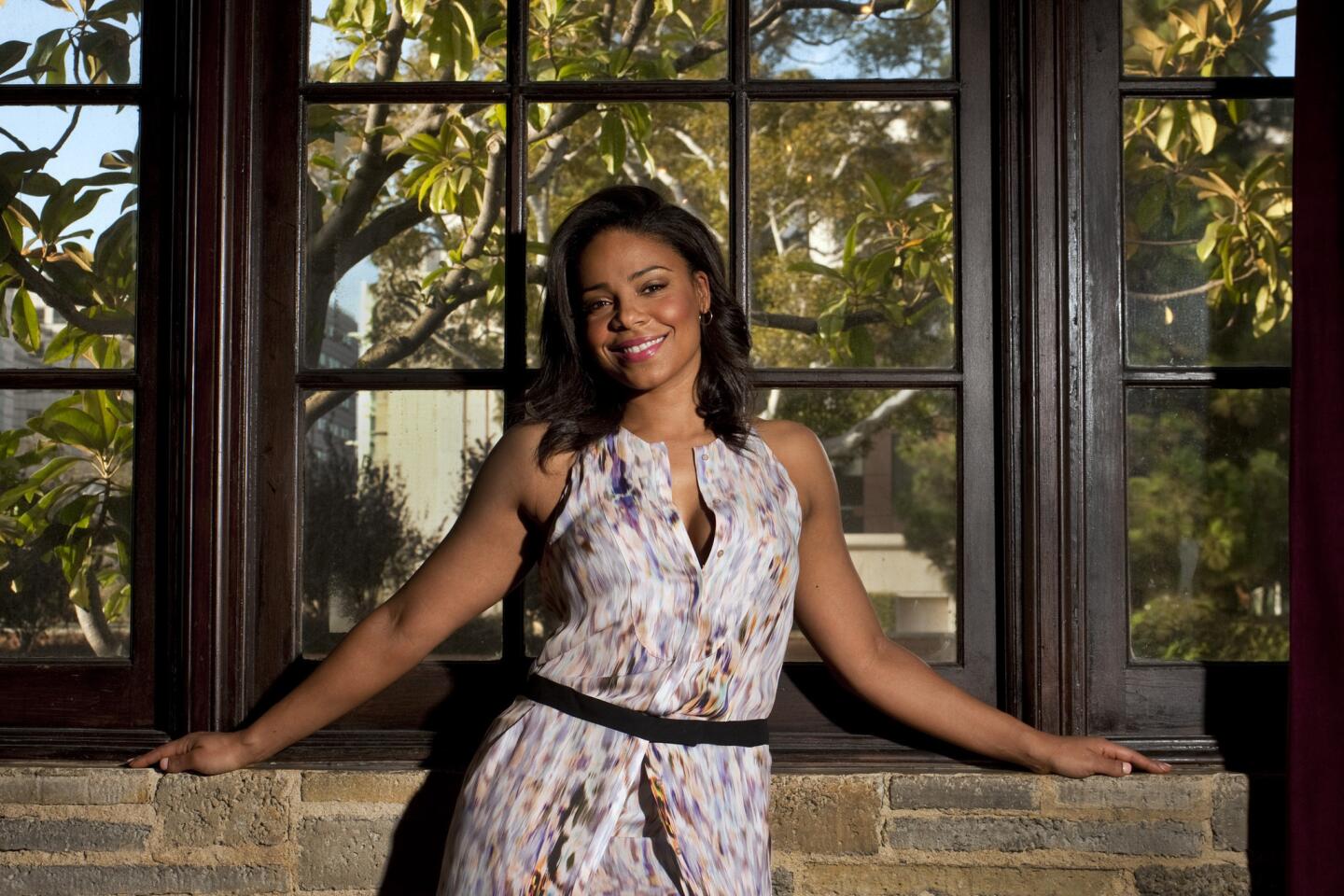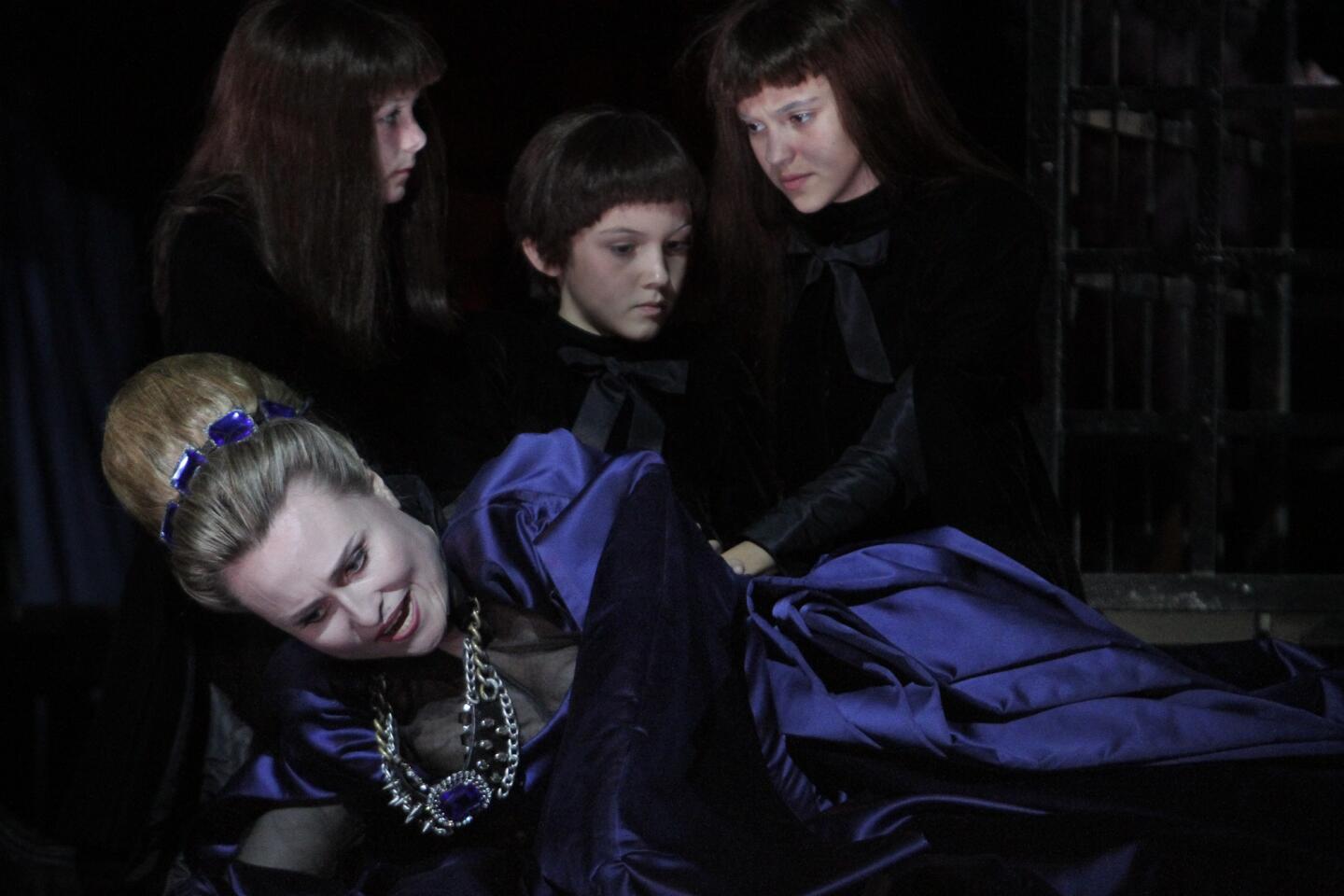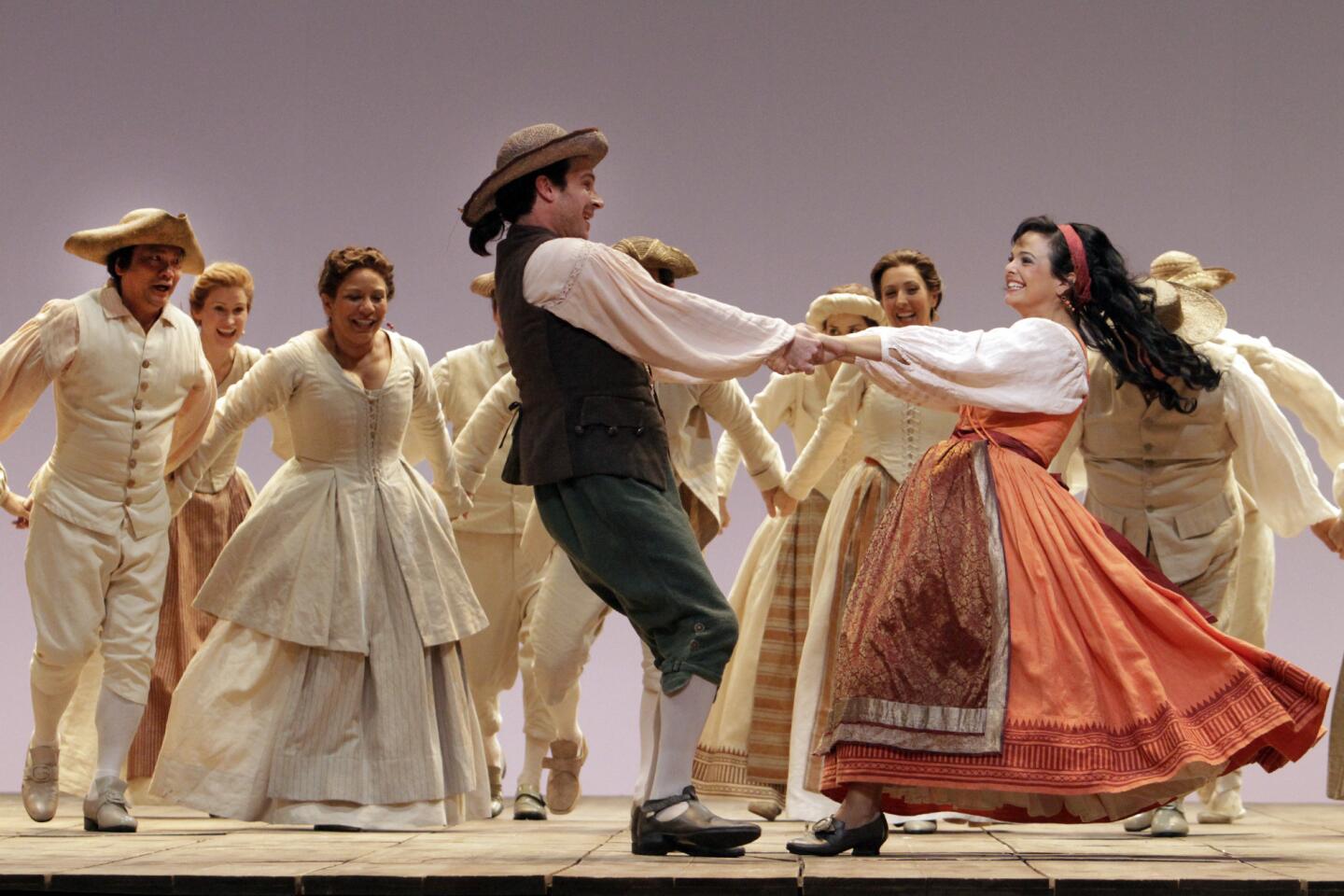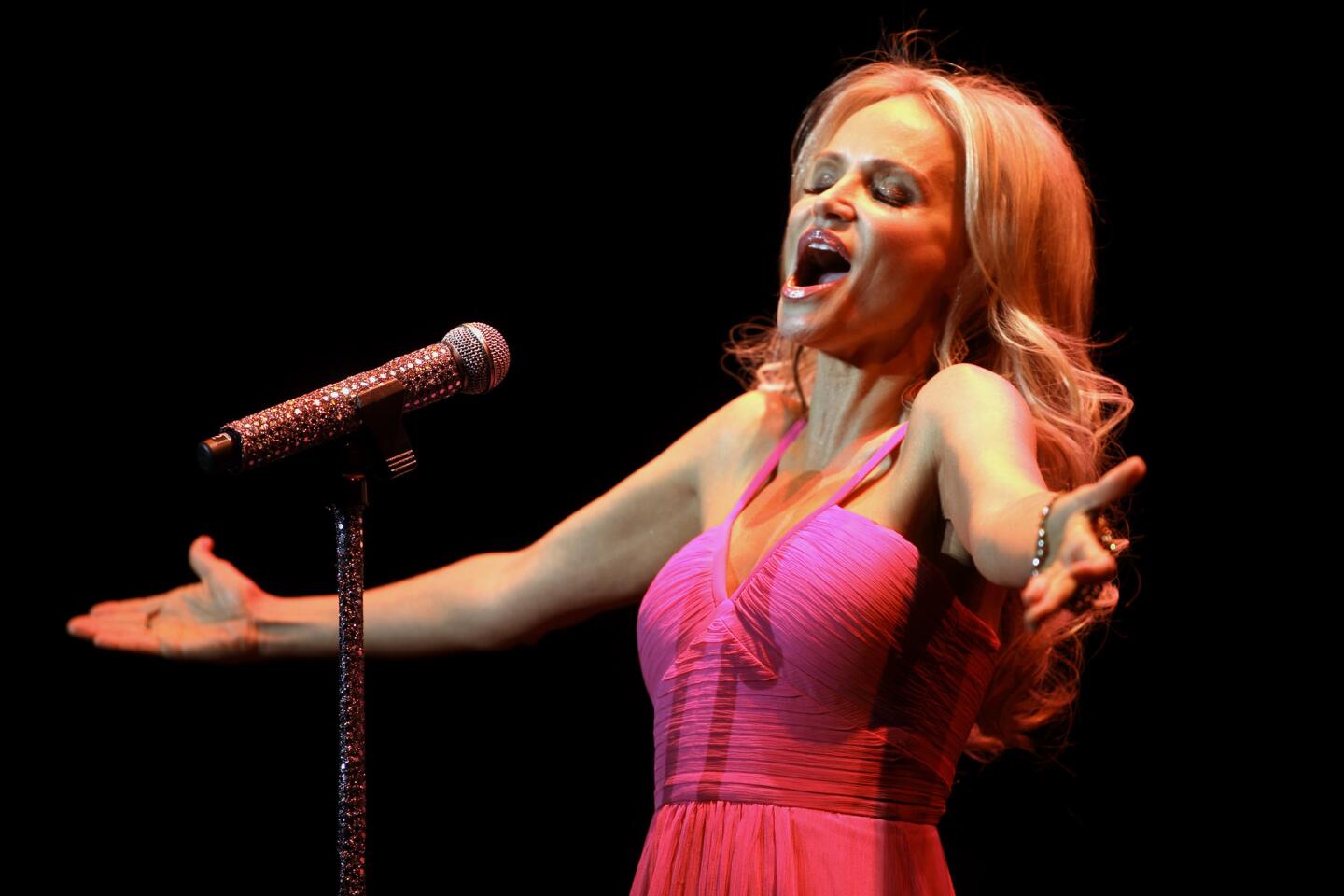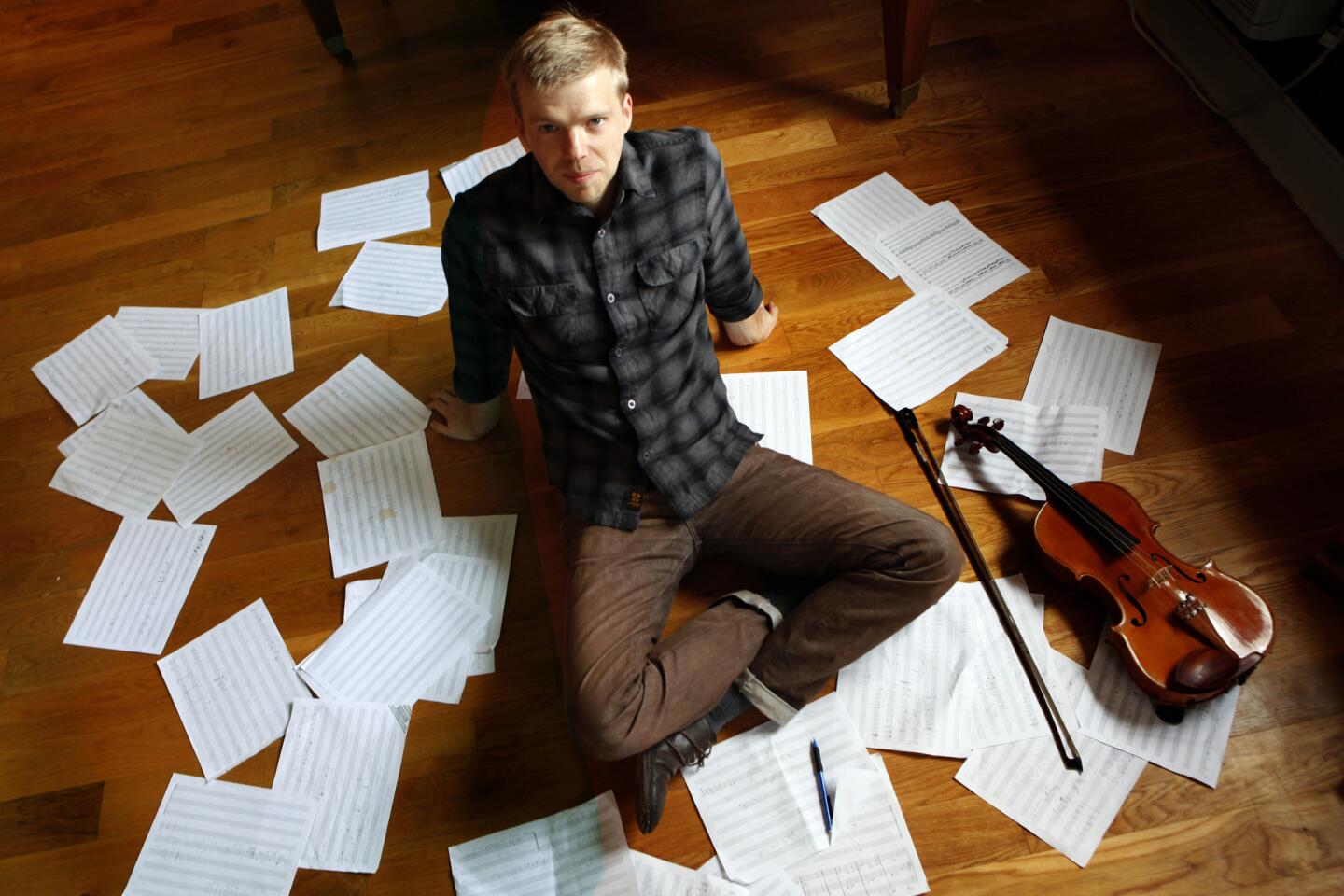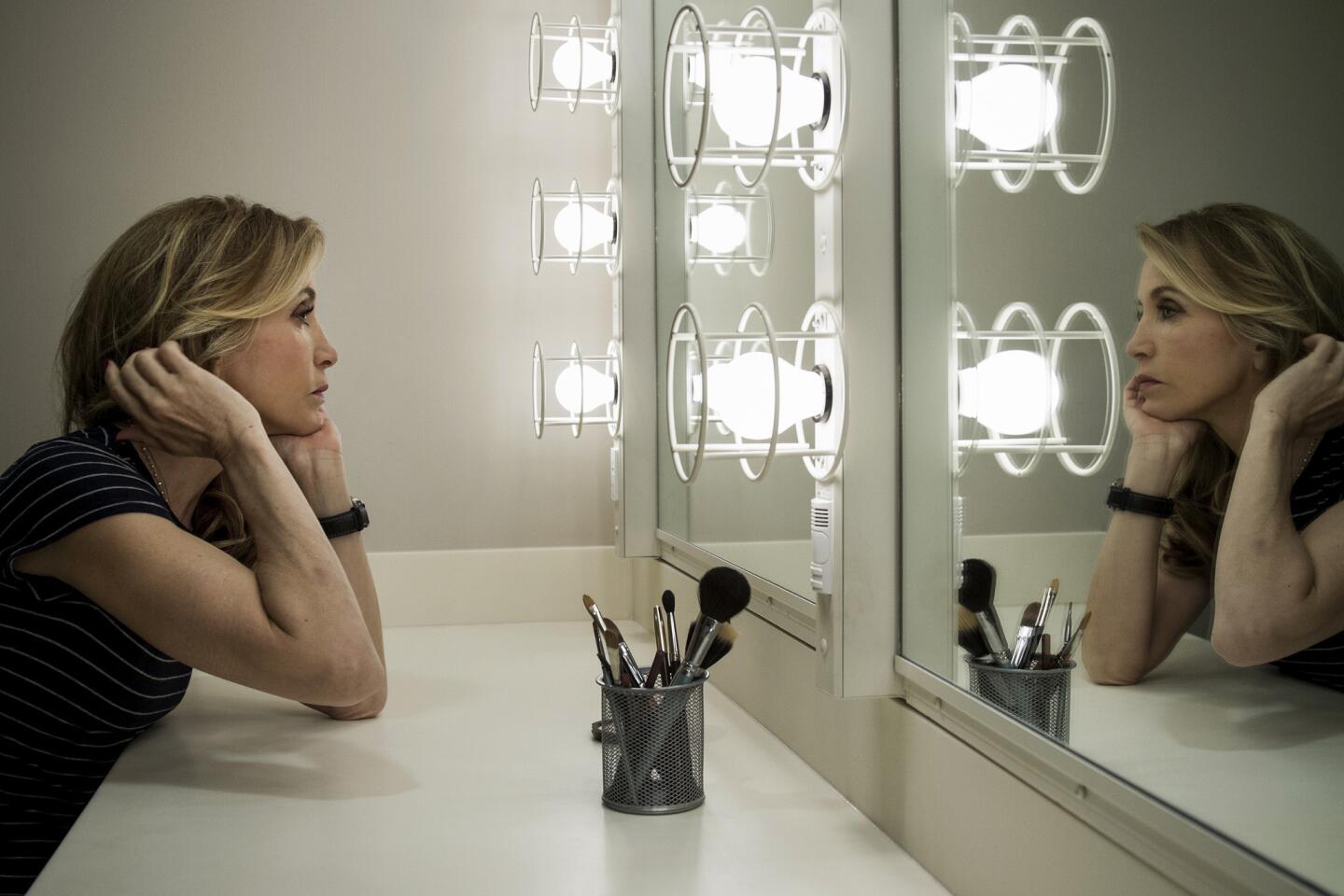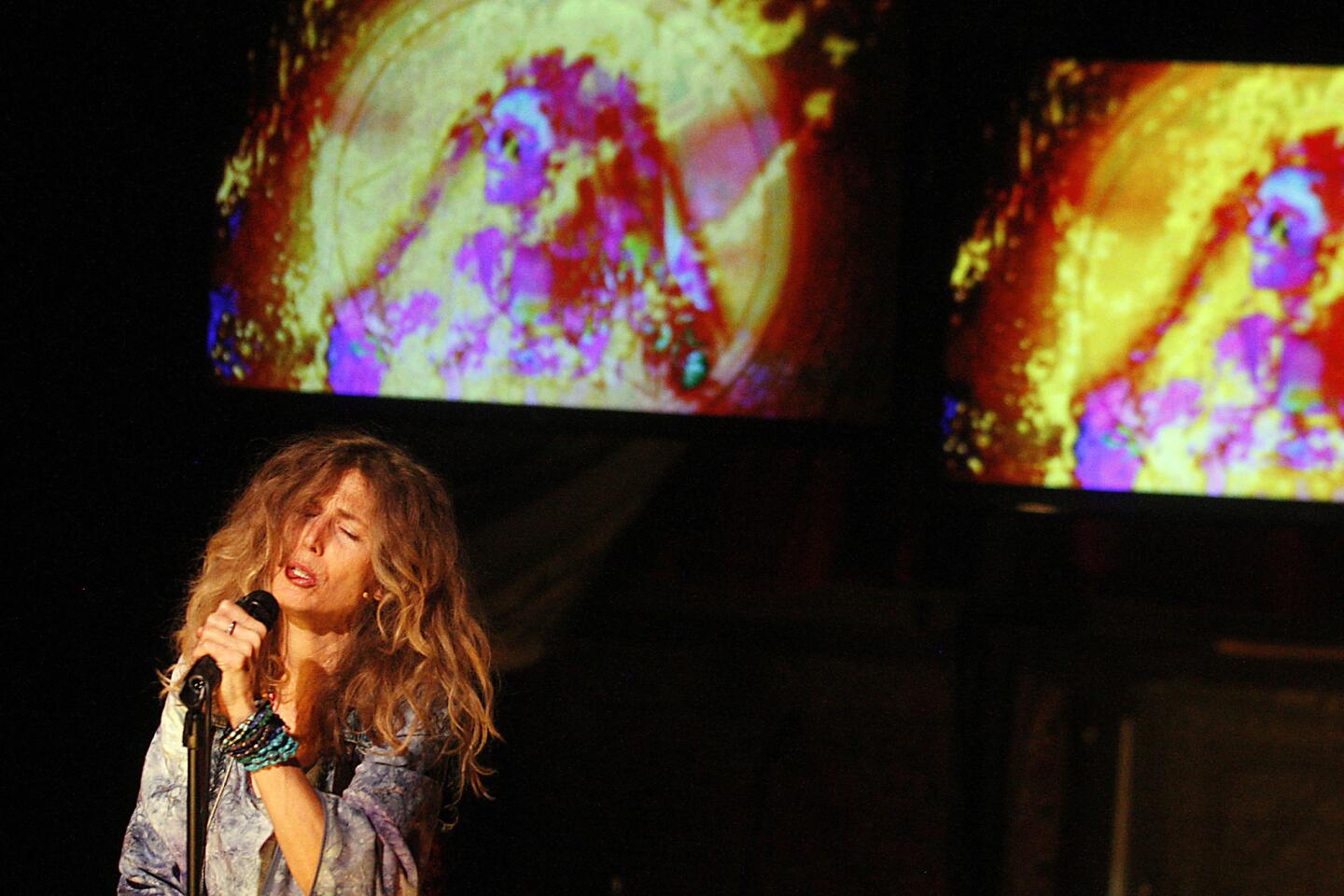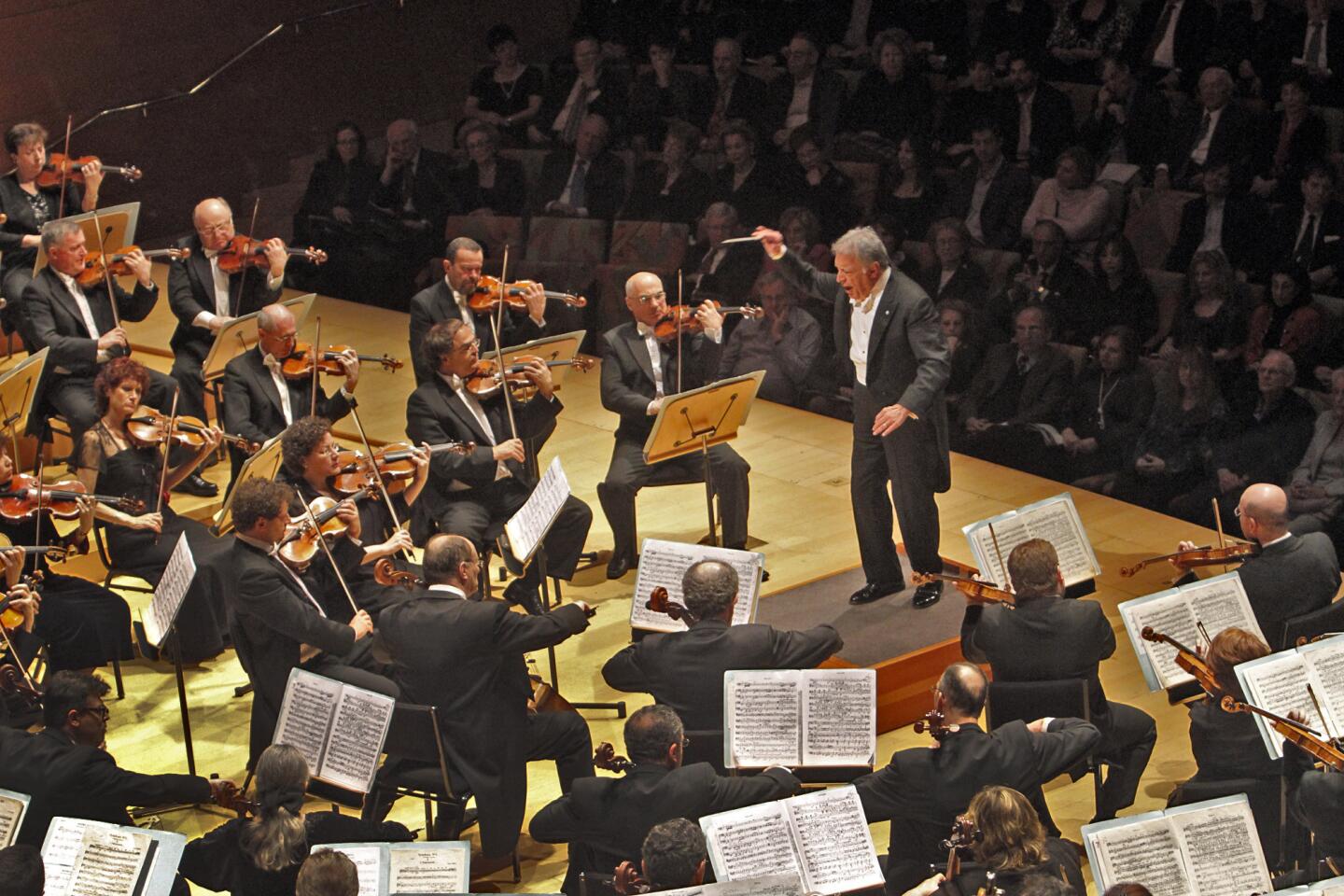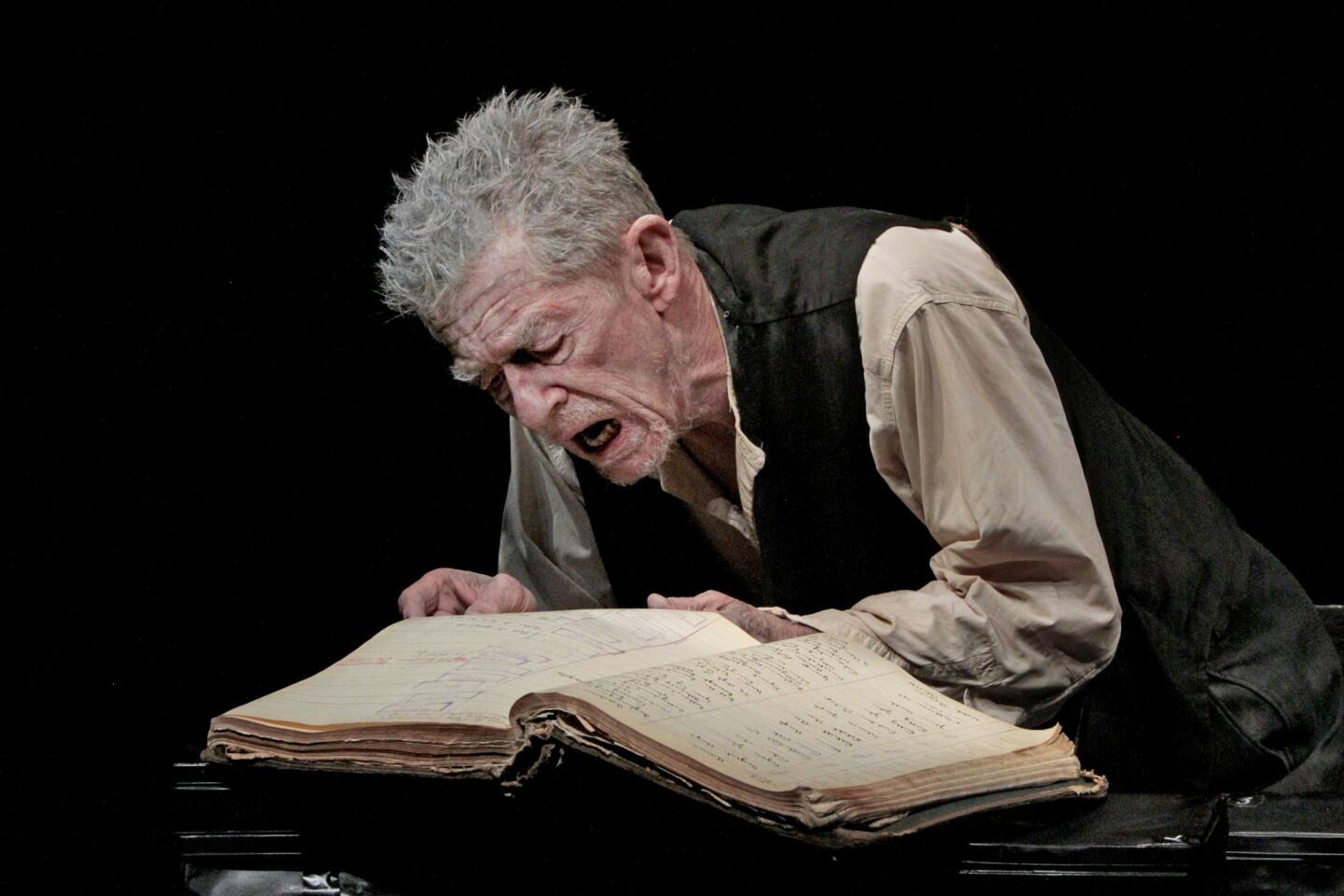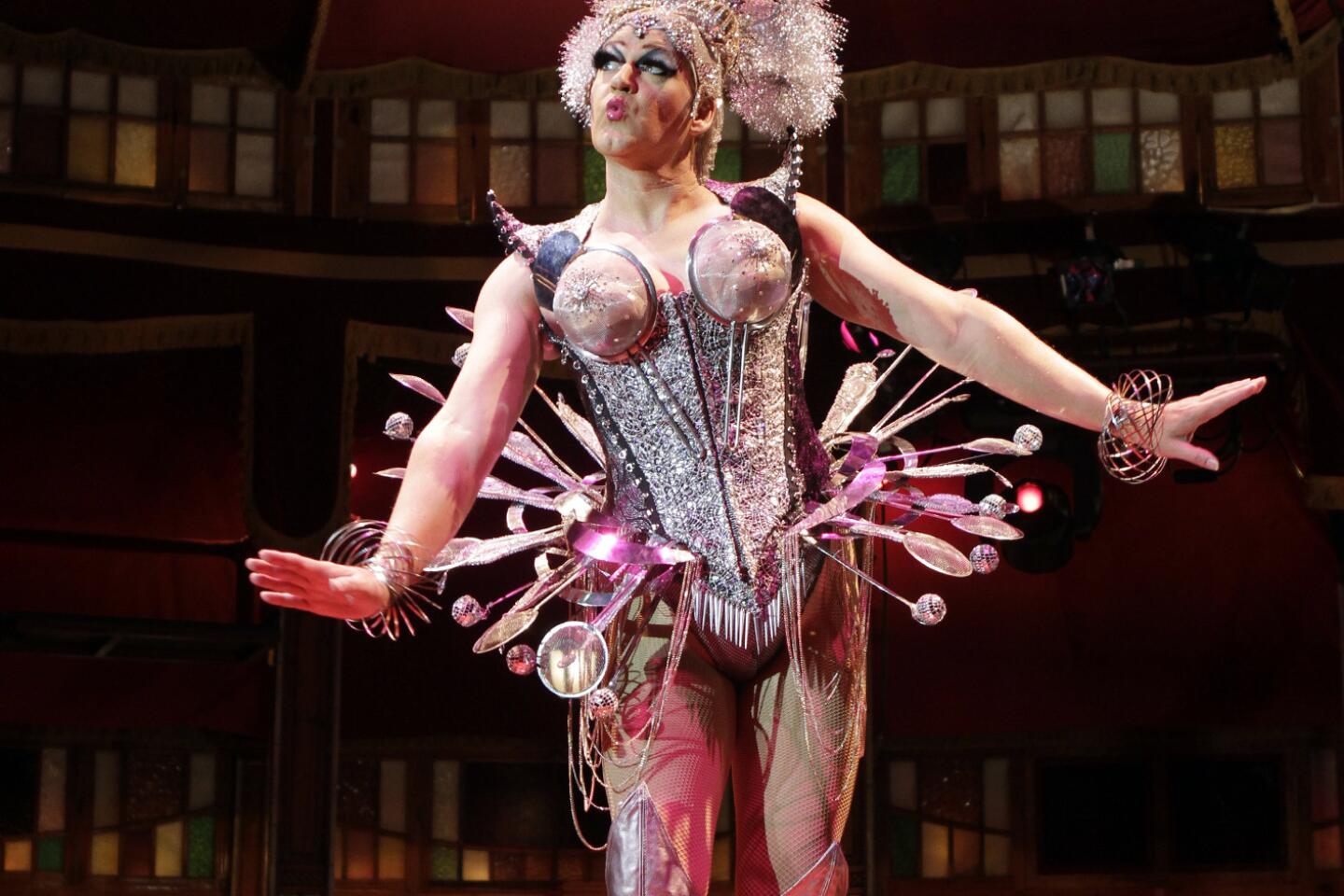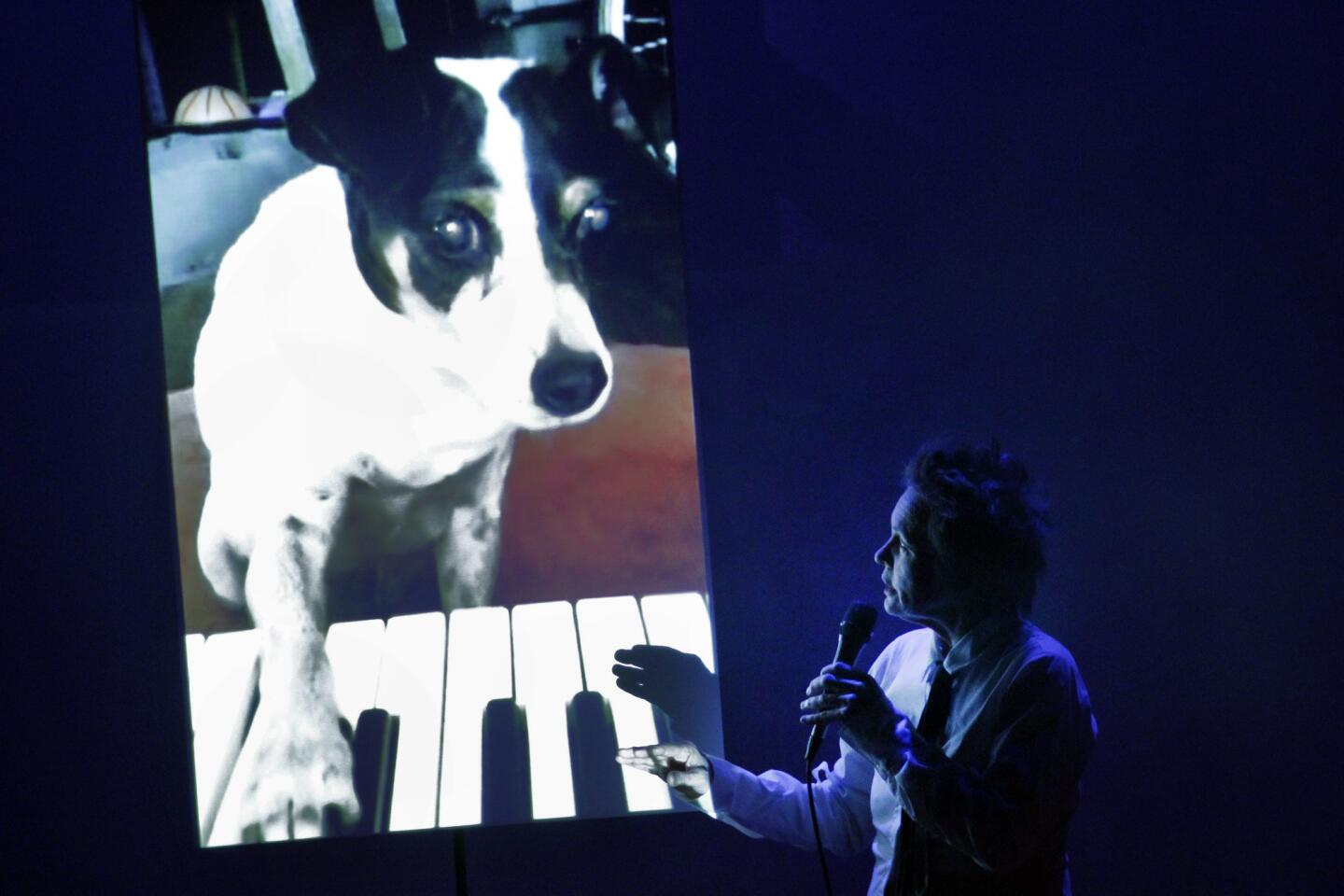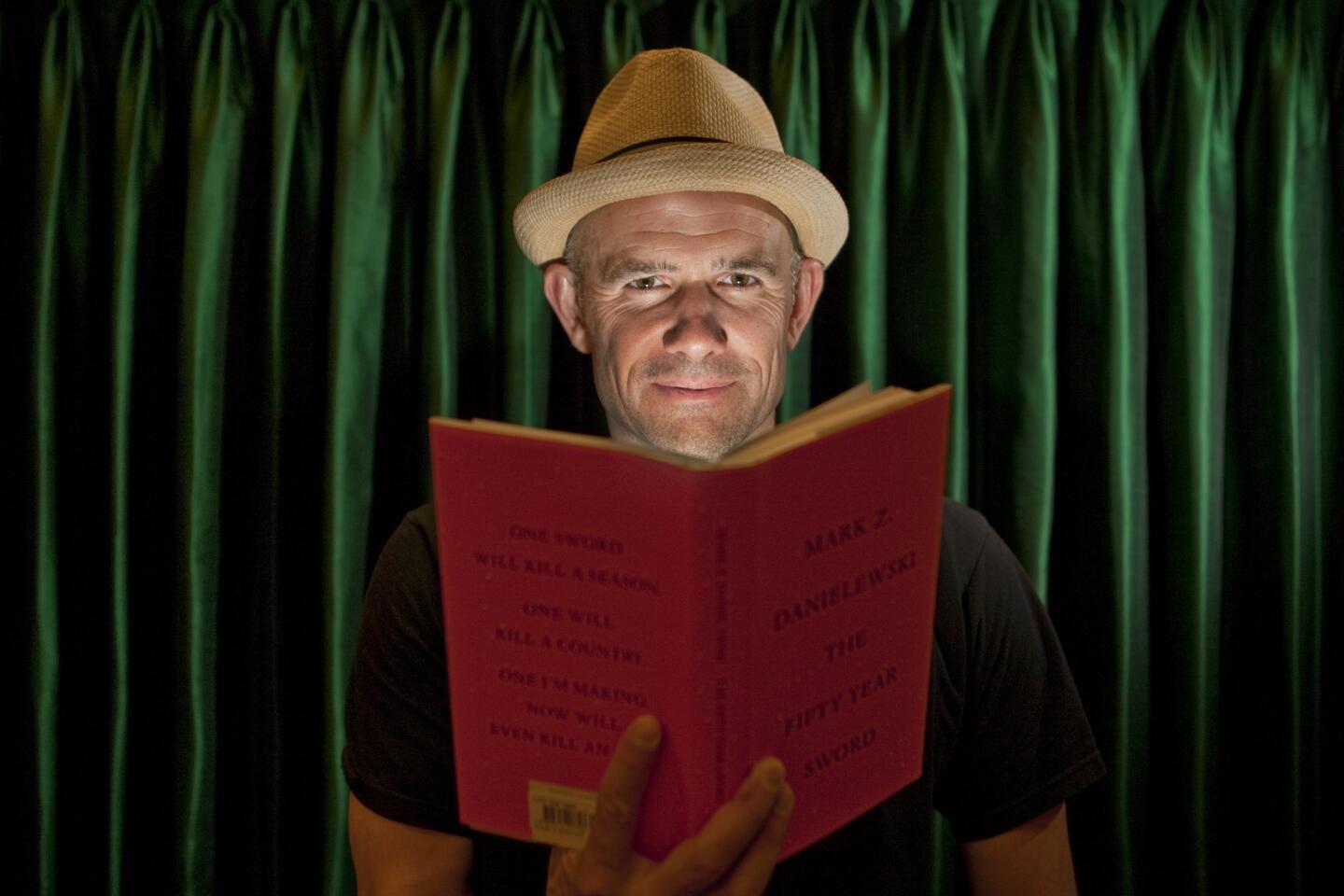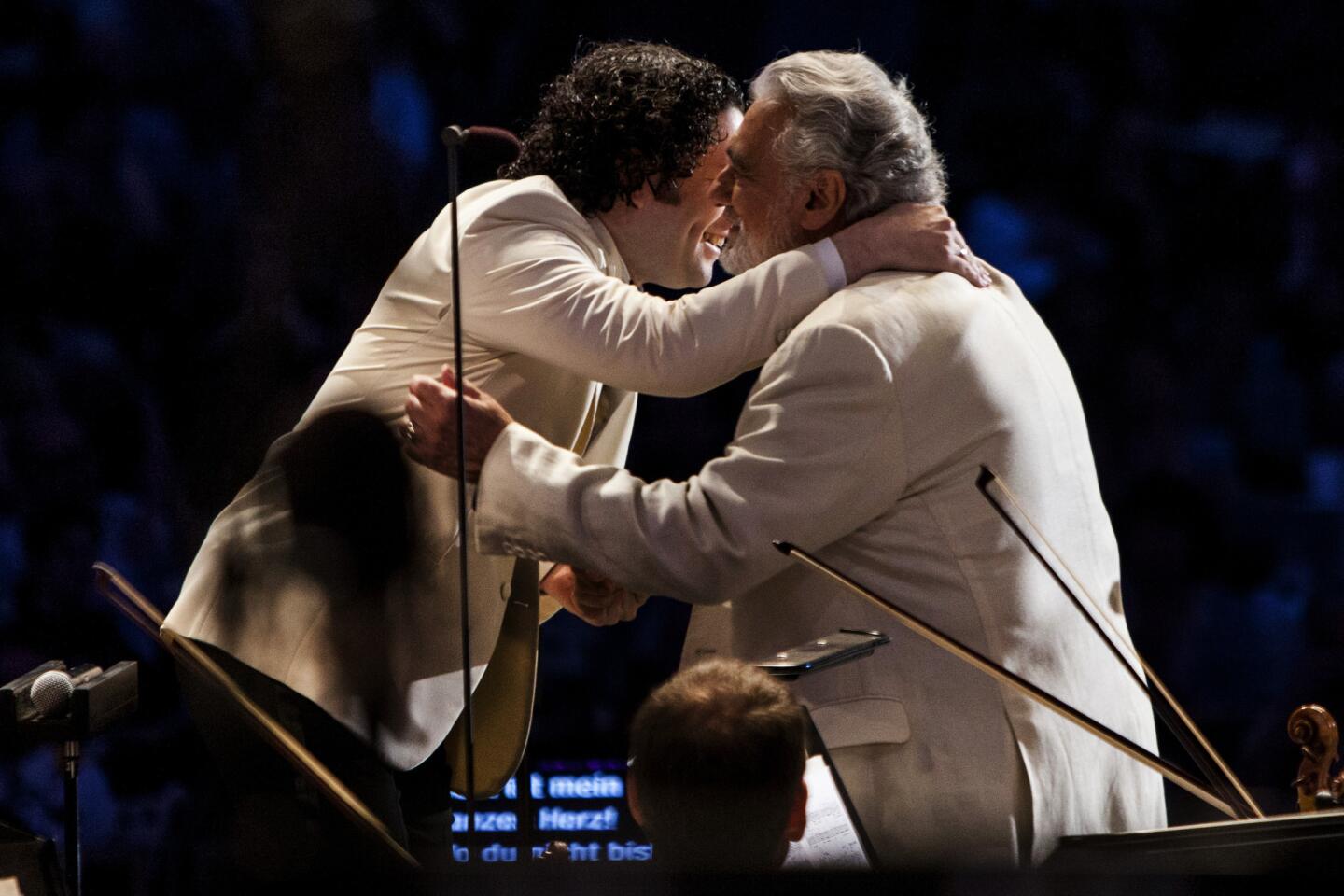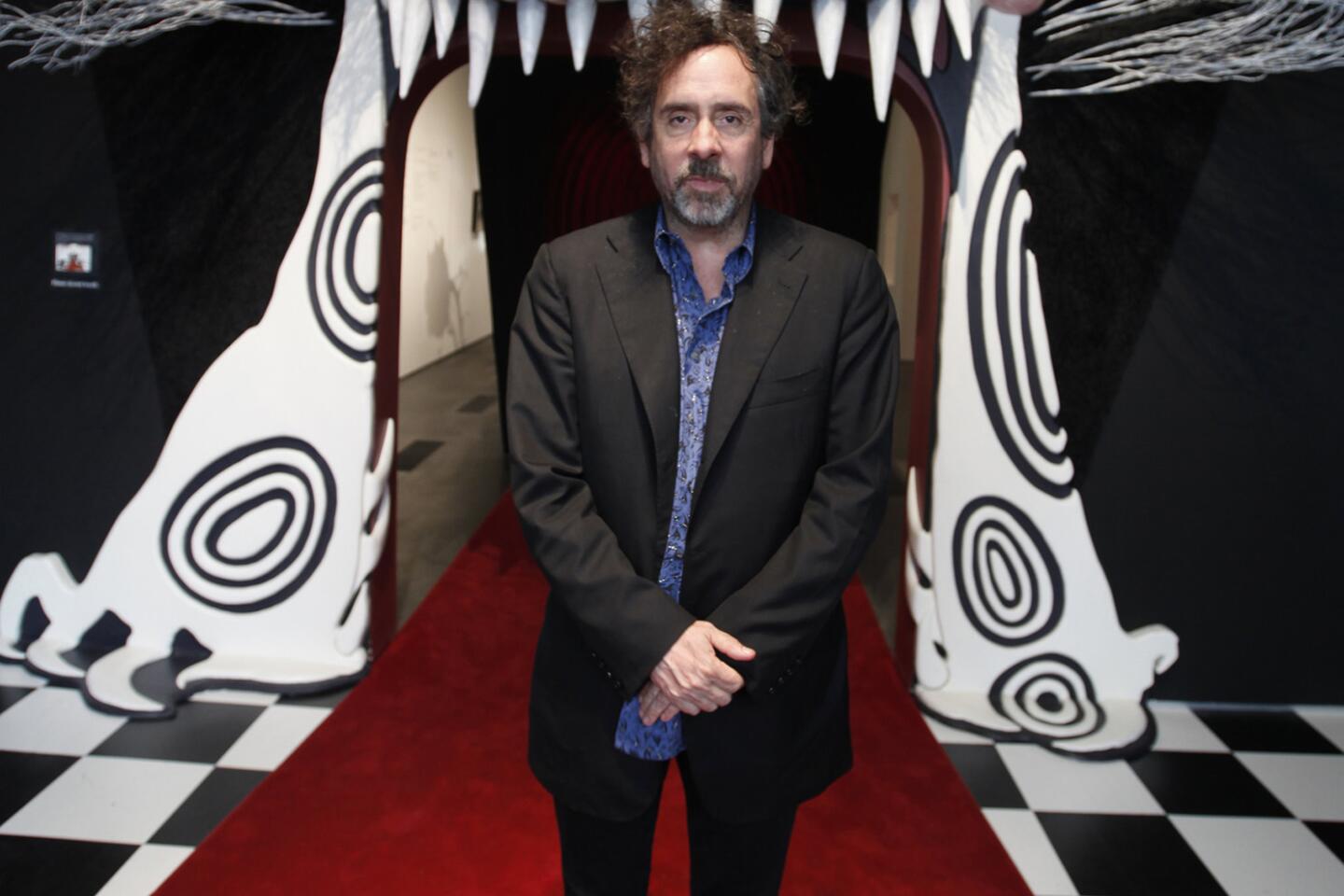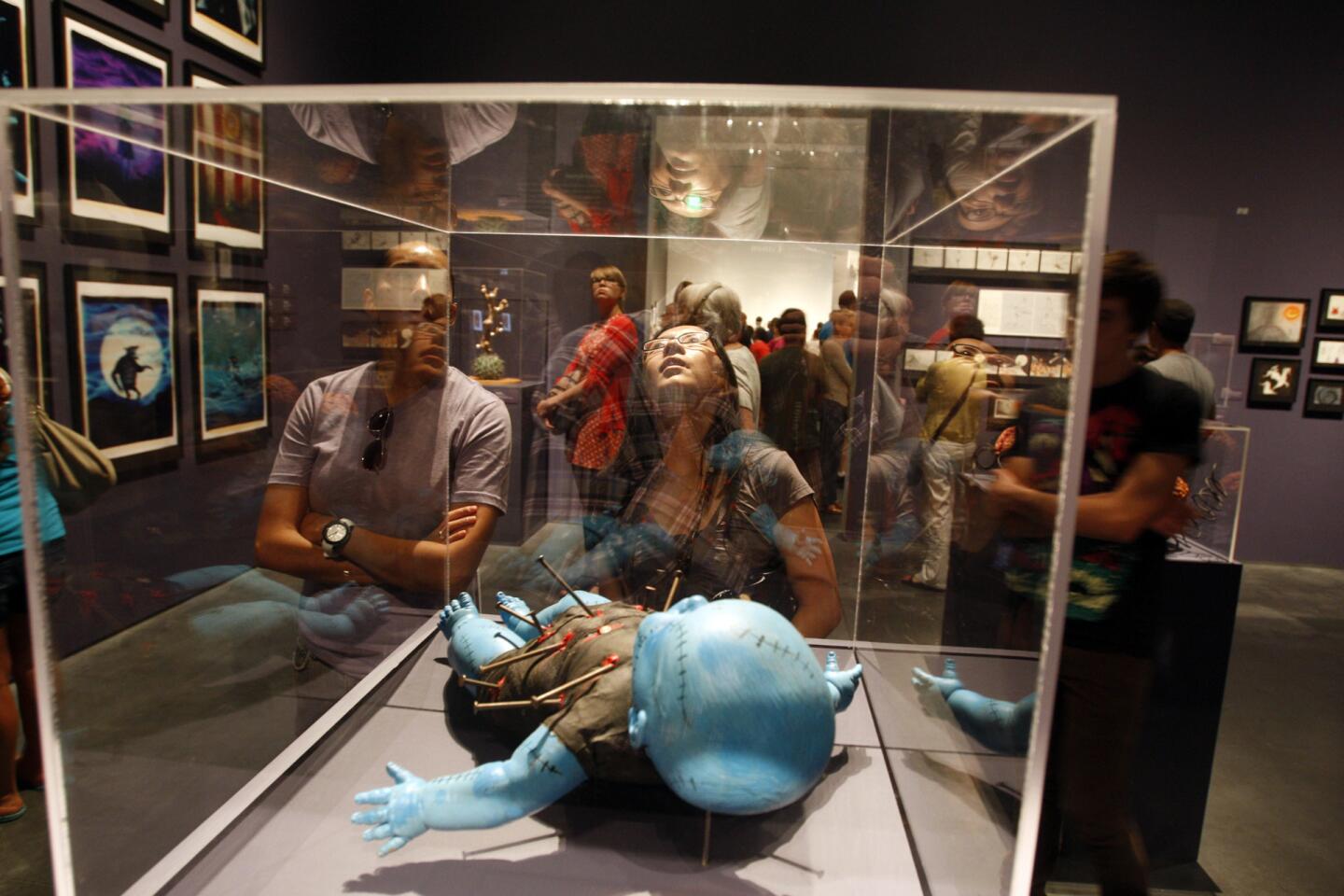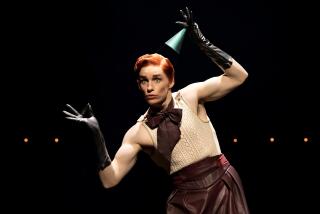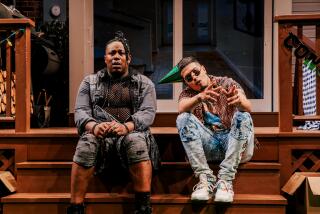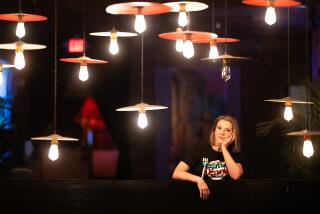Michael Urie conjures a ‘taste’ of Streisand in ‘Buyer and Cellar’
NEW YORK — Michael Urie sits in a West Village restaurant making a few subtle gestures. A flutter of the hands and you imagine the fingernails. A squint of the eyes and the famously furrowed expression pops into view. A tilt of the head just so and there, like a line drawing from an artist’s sketchpad, is Barbra Streisand.
“I don’t have to do an impression of her, thank God,” says the 33-year-old actor. “I give you a taste, and you fill in the rest. It’s like a magic act.”
The conjuring is in the service of Jonathan Tolins’ play “Buyer and Cellar,” the off-Broadway comedy that has become the summer’s sleeper hit, a fever dream in which Urie stars as Alex More, an unemployed Los Angeles actor who is thrust into a close relationship with the superstar when he is hired to watch over a mall of shops she has built in a cellar on her Malibu compound.
As preposterous as the story might sound, the setting is real. The comedy was inspired by Streisand’s 2010 book, “My Passion for Design,” in which she describes a basement of shops she created to display her sizable collection of art, costumes, furniture, antiques and assorted tchotchkes.
PHOTOS: Arts and culture in pictures by The Times
In the one-person play, Urie portrays not only Alex but also evokes Barbra; James Brolin, her husband; Sharon, the compound’s manager; and Barry, Alex’s acerbic boyfriend. The performance has earned acclaim for both the play and the actor, best known as the flamboyant assistant to Vanessa Williams’ creative director on the TV series “Ugly Betty” and the star of the more recent short-lived series “Partners.”
The chapters in Streisand’s book set off a trove of “what ifs,” which lead Alex through the looking glass and into a bizarre wonderland of, as he puts it, “relentless good taste combined with the total lack of financial restraint.”
Alex’s awe, however, is tempered as he becomes enmeshed in All Things Barbra. In a surreal scene, the superstar descends into her shops to haggle over her own stuff with the new hire. In another, the two become increasingly intimate when Barbra asks Alex to rehearse scenes from her upcoming film role in “Gypsy.”
“It touches on everyone’s fantasy of what it would be like to be friends with Barbra,” says Urie. “What’s universal and touching about the play is this idea of meeting your idol. Everyone is able to put themselves in Alex’s shoes, even if you don’t care about Barbra or are hard-pressed to care about materialism or fame.”
FULL COVERAGE: 2013 Spring arts preview
To pull off this musing on America’s celebrity-obsessed culture, Tolins says he knew Alex had to be played by an actor who could immediately establish a warm rapport with the audience.
“It had to seem as though Alex is just a friend who is telling you this story, and Michael has that in spades,” says the playwright. “He’s incredibly charming, smart and appealing. You understand why Barbra would fall in love with him because you fall in love with him.”
Despite the fame that “Ugly Betty” brought him at age 26, Urie doesn’t seem that far removed from the struggling actor from Plano, Texas, he was after graduating from Juilliard in 2003. Dressed in a polo shirt and jeans, he is boyish and engaging, easily breaking up as he recounts living with three other actors and two cats in a cramped Brooklyn apartment while working off-off-Broadway for $200 a week when he wasn’t off doing classics in regional theaters.
“Broke as a joke,” he prevailed on his agents to let him audition for the television pilot for “Ugly Betty.” Though the high-rated series made him suddenly famous, he never strayed far from his theatrical roots during and after four seasons on the show. He bonded intensely with the cast. “I cried in those last two weeks more than I did during my entire adolescence.”
PHOTOS: Best in theater for 2012
When Urie read the script of “Buyer and Cellar,” his first thought was “Wow, this is risky.” His second was how little he actually knew about Streisand. Like Alex, who early on in the play admits that he isn’t much of a Streisand fan — “though I appreciate this stuff as part of my gay birthright, my heritage” — Urie says that the legendary actress was only on “the periphery” of his consciousness.
“I always knew her as a super-successful renaissance woman,” he says, adding that though his Italian American mother was a huge Streisand fan, his personal idols ran more toward Sammy Davis Jr., Jack Nicholson and Bernadette Peters. “What I didn’t know is how relatable she is. When you become immersed in her, the interviews, the movies, the onstage banter, you can find the real her.”
The degree to which Streisand has inspired those reams of print provides a good deal of the humor in “Buyer and Cellar.” Standing before one of the dresses that Irene Sharaff designed for the stage version of “Funny Girl,” Alex feels “religious ecstasy … a little girl at Fatima, blinded by a vision of the eternal.”
If Urie identifies with Streisand it is in his desire to do it all: acting, writing and directing. (“Not the singing, I know my limitations.”) He has directed a couple of shorts and two features: the documentary “Thank You for Judging,” about high school speech and debate tournaments, one of which he won in his senior year; and “He’s Way More Famous Than You,” an indie satire about the lust for attention starring and co-written by Halley Feiffer and Ryan Spahn, Urie’s boyfriend of nearly five years.
With “Buyer and Cellar” assured of a run through the end of the year, Urie hopes to use the financial security to look for more projects to direct. “I understand why Barbra would want to have that kind of control over her career,” he says. “The director gets to do all the problem solving.”
While Tolins’ Barbra is Brooklyn Jewish, “a megastar who is just a few genes away from a lady shopping at Loehmann’s,” Urie says that his is more like Roz Focker, the free-spirited earth mother she played opposite Dustin Hoffman in the movie “Meet the Fockers.”
That may well account for the humanizing and sympathetic portrait of the star that emerges in the play despite the brickbats that come courtesy of Barry, Alex’s boyfriend, a proxy for all Barbra haters.
Barry hilariously deconstructs the 1996 movie “The Mirror Has Two Faces,” which she directed and stars in. As they watch the film, a revenge fantasy of an ugly duckling turned swan, Alex has to admit, “Barbra’s real agenda kept seeping through in disturbing ways, like an episode of ‘Top Chef’ hosted by Hannibal Lecter.”
Urie himself is having none of it. “I don’t think she’s a narcissist,” he says. “She never did it for the fans or the adulation. She’s an artist who cares deeply for the work.”
As Streisand enters her 70s, the statutes of limitations among the cynical Barrys of the world appear to be running out.
Of “Buyer and Cellar,” Urie says, “I think we want people to laugh, at times at her expense but also at the same time enjoy her. If you don’t leave the theater loving her more than you did when you went in, I failed.”
More to Read
The biggest entertainment stories
Get our big stories about Hollywood, film, television, music, arts, culture and more right in your inbox as soon as they publish.
You may occasionally receive promotional content from the Los Angeles Times.
